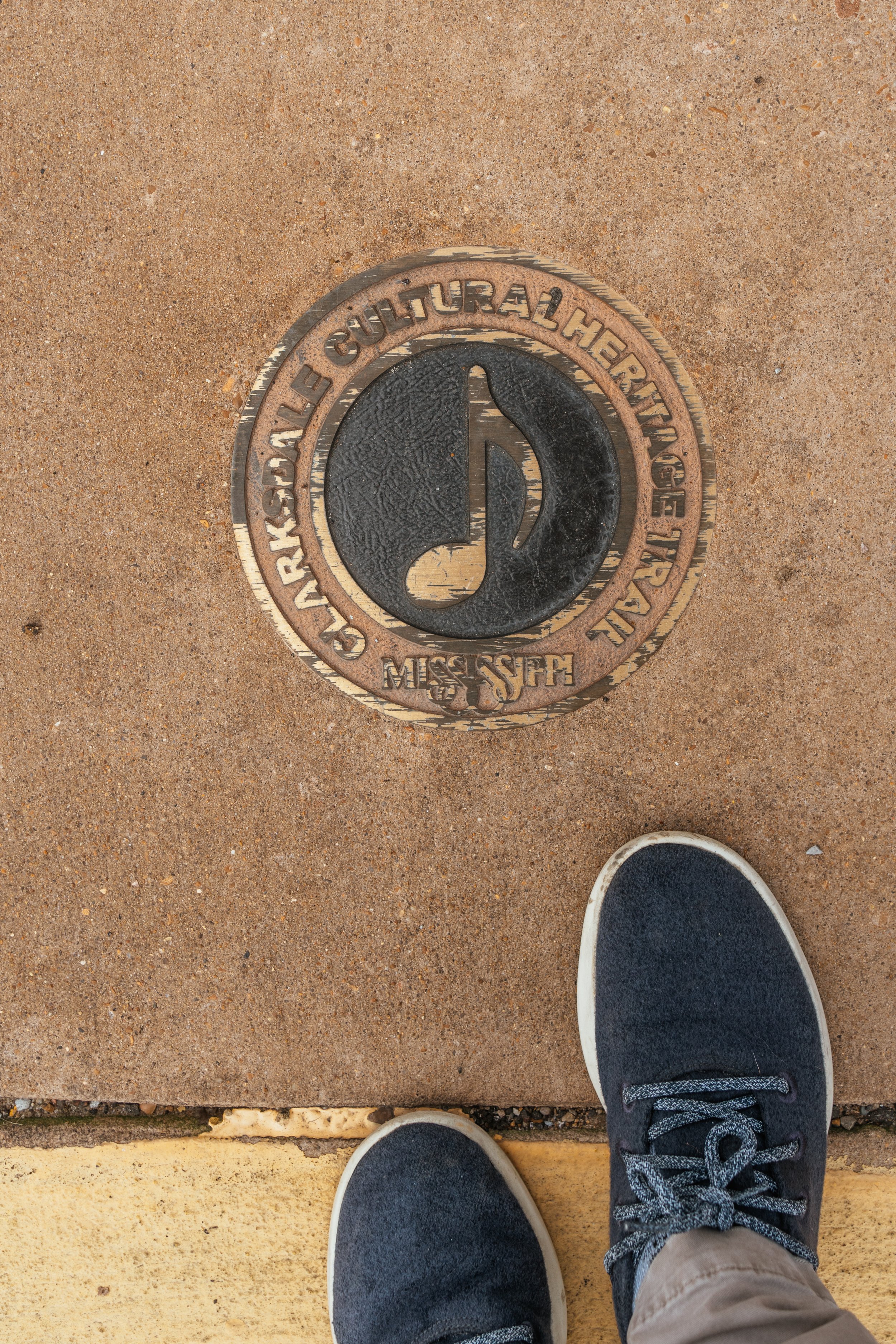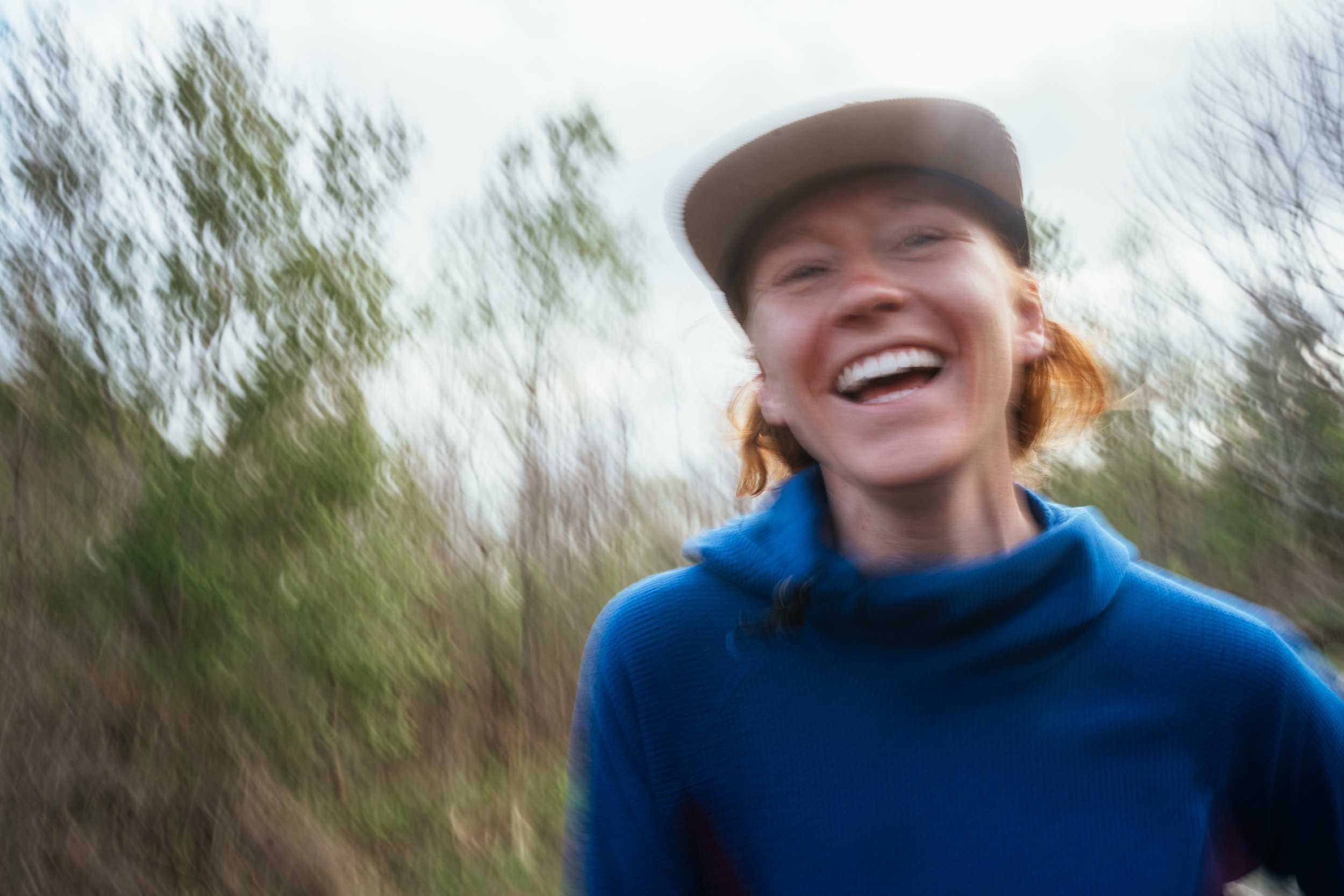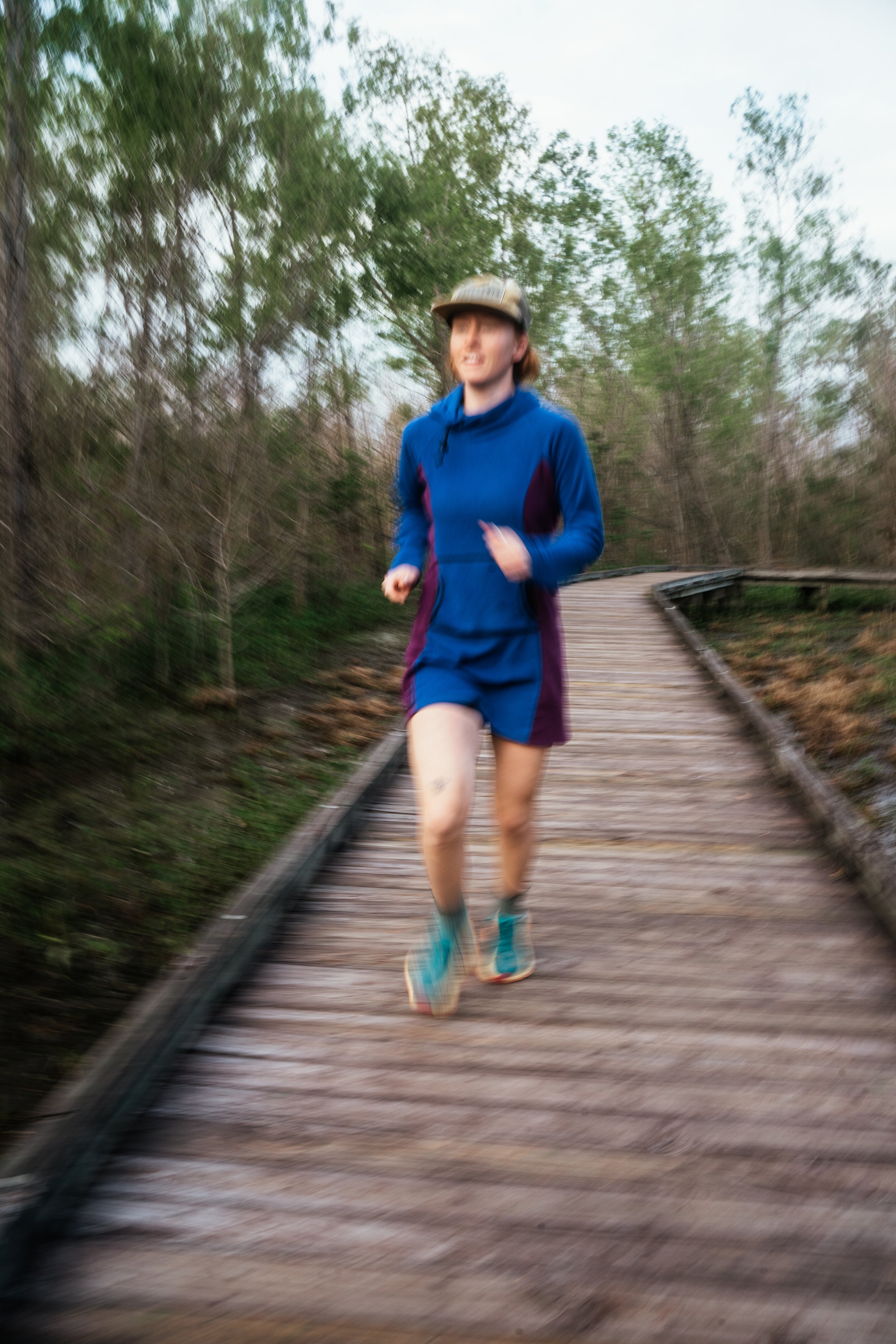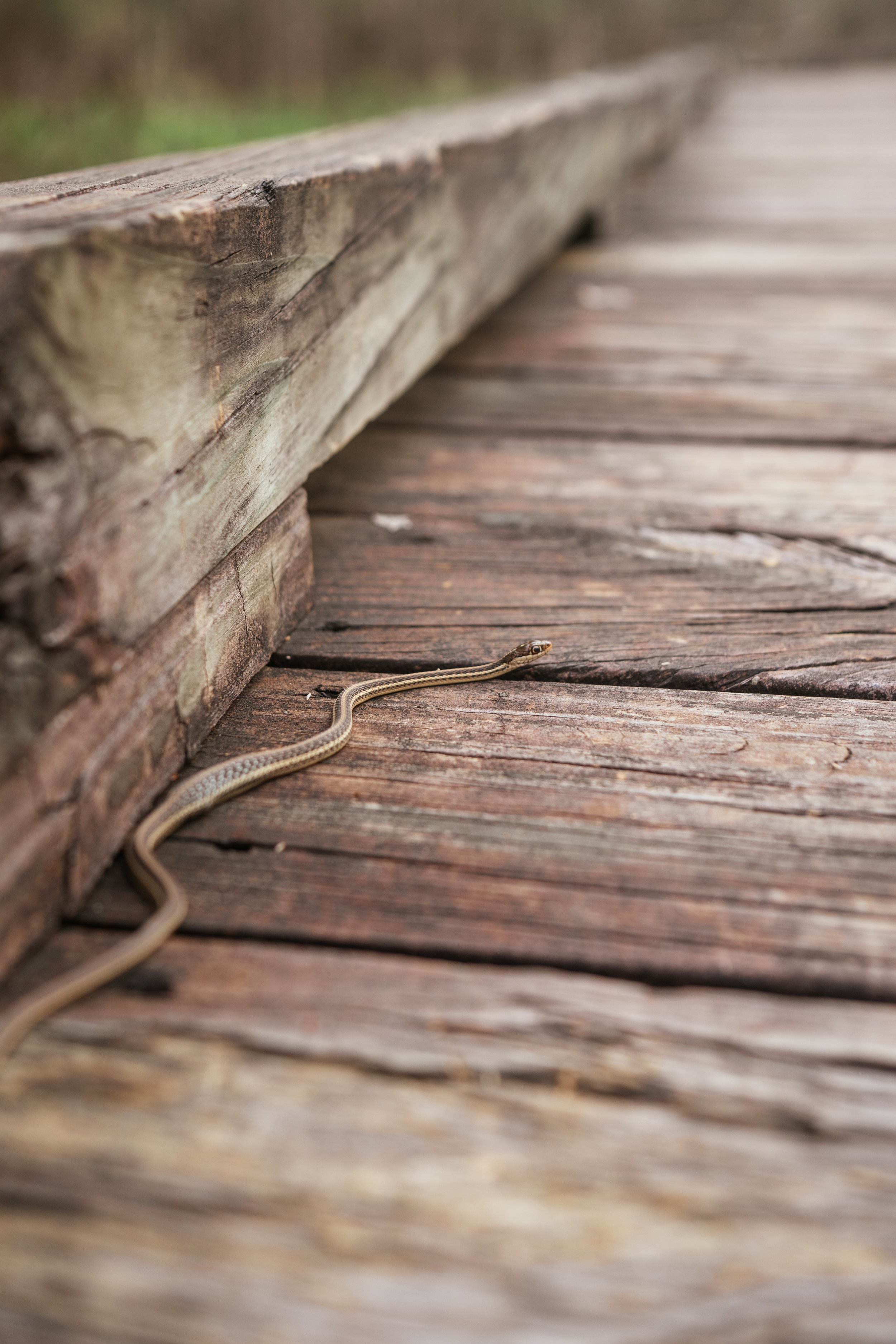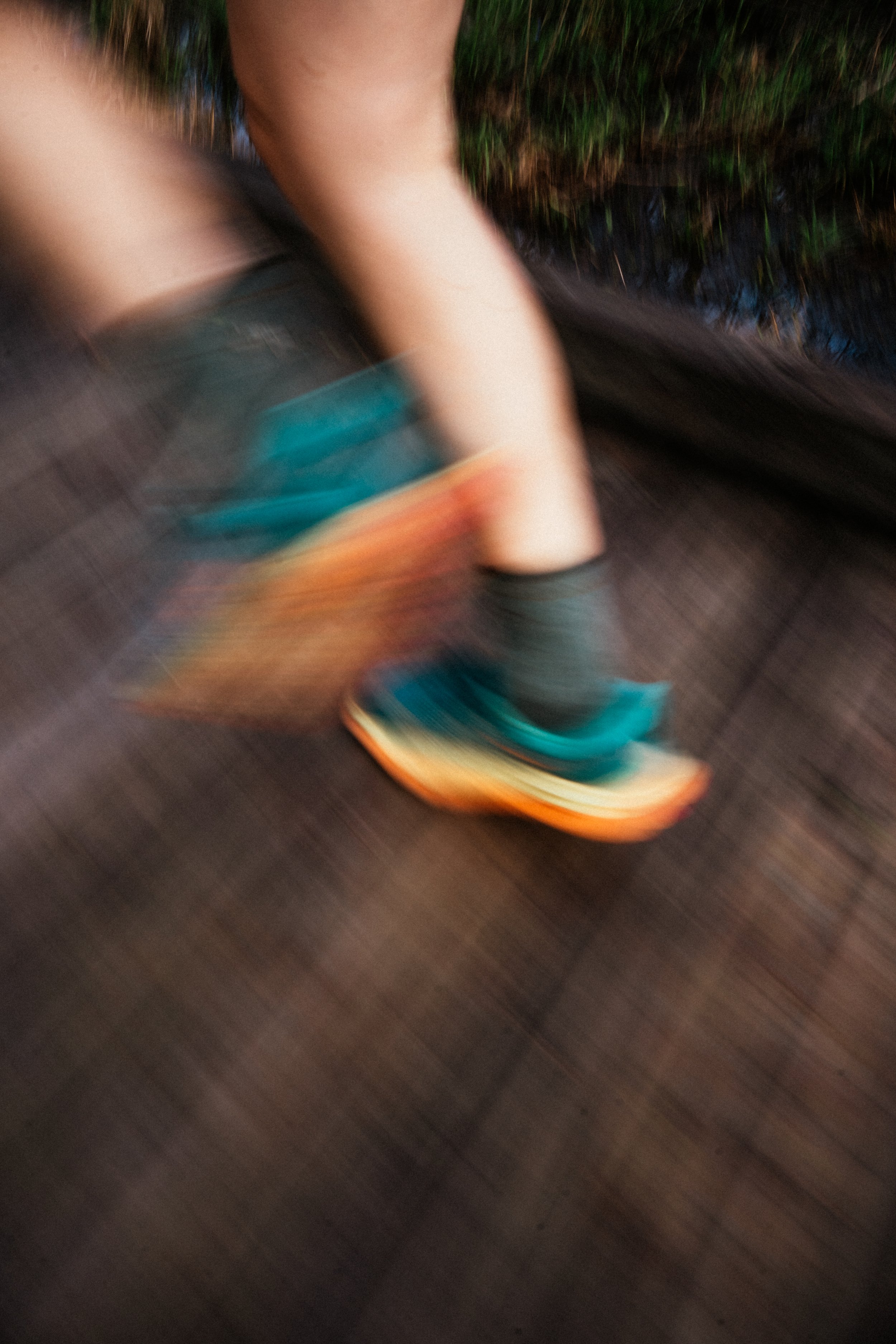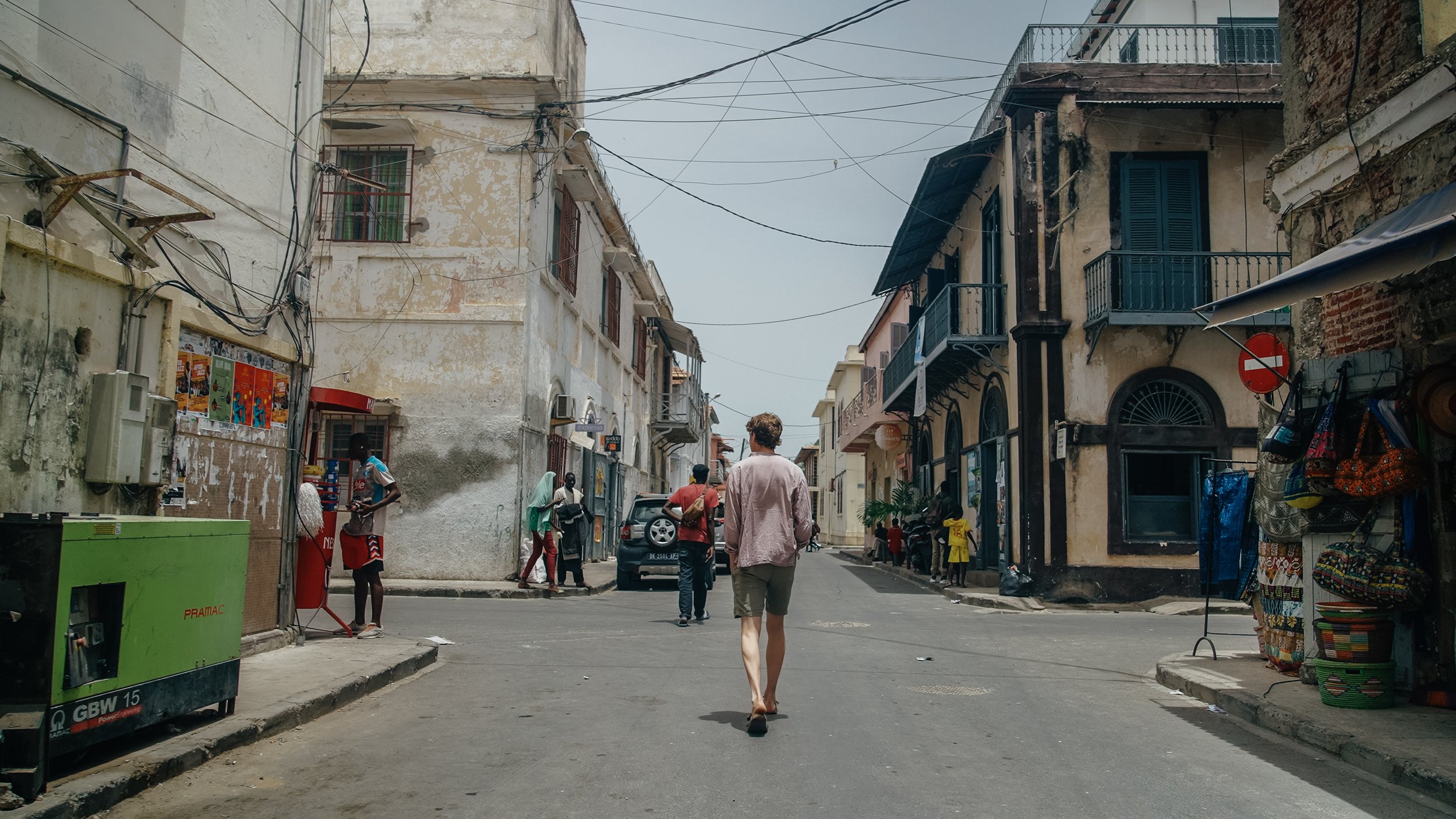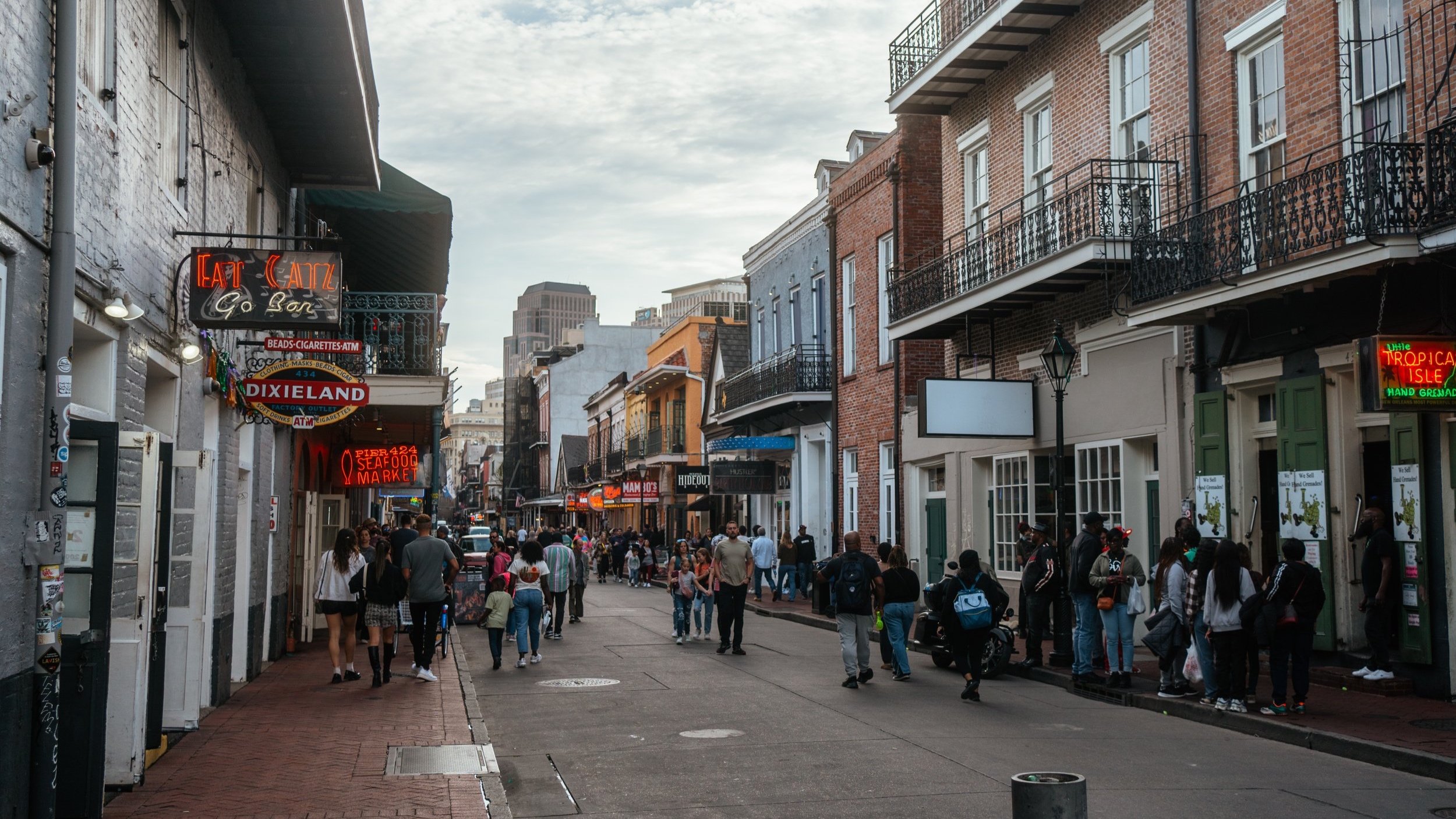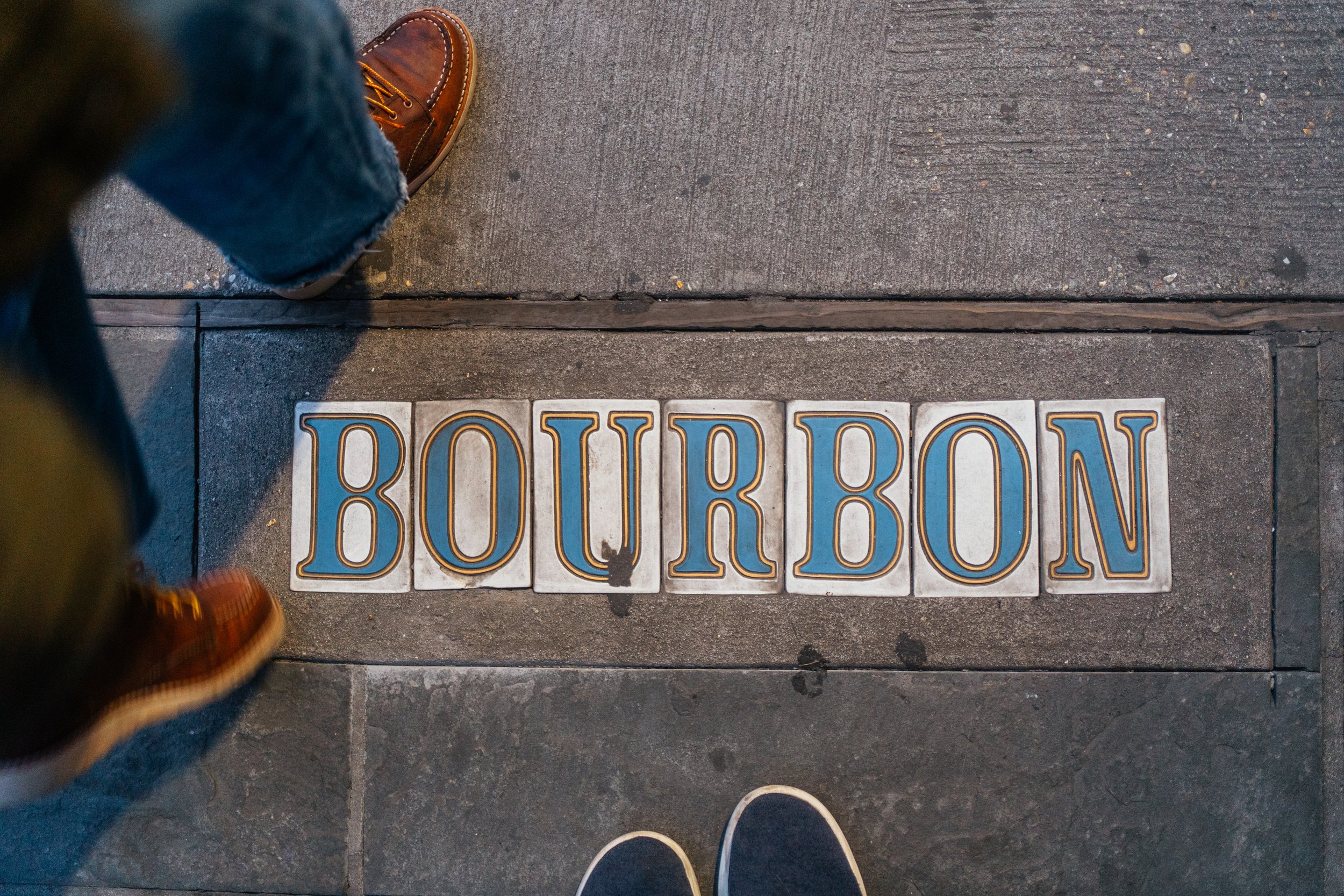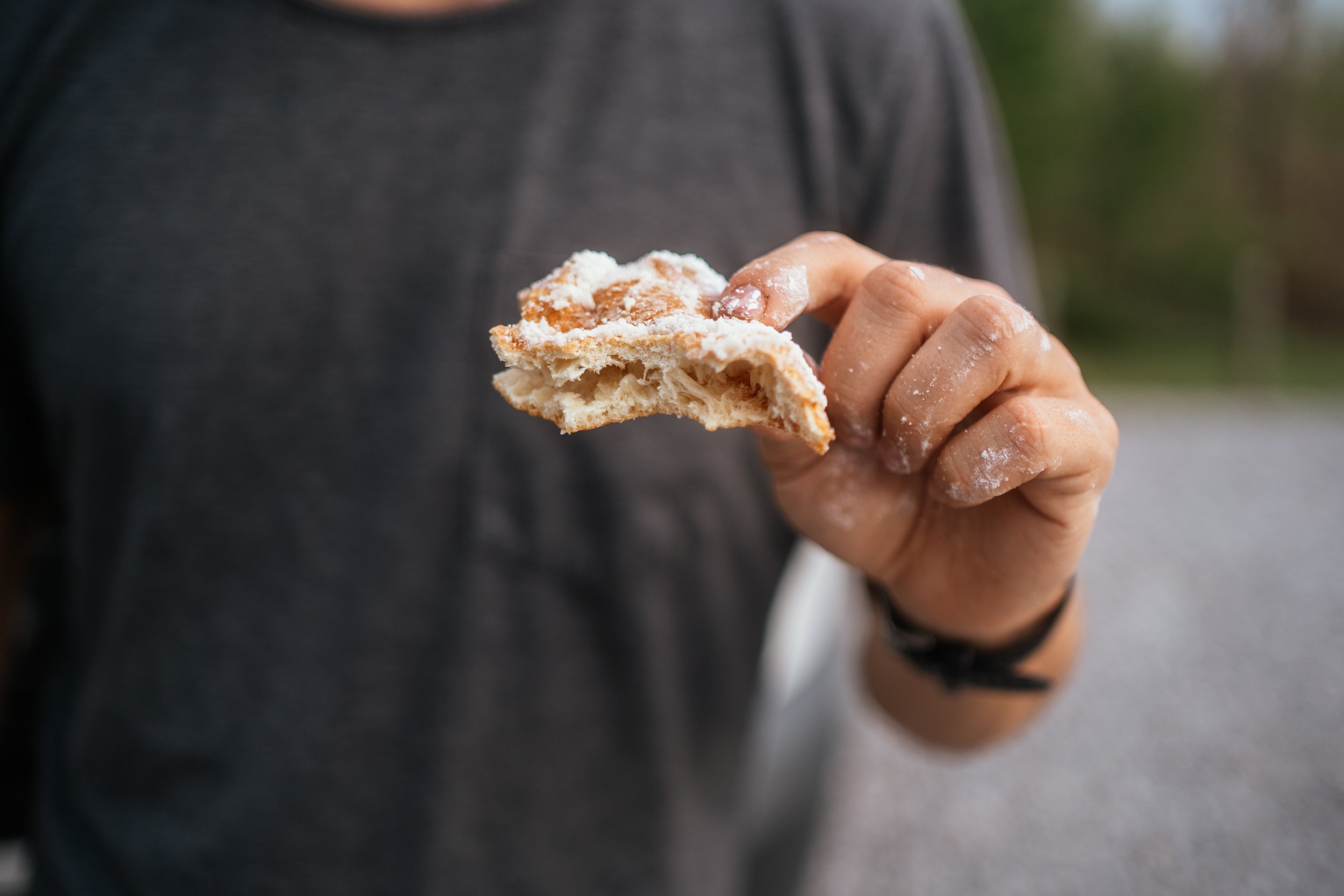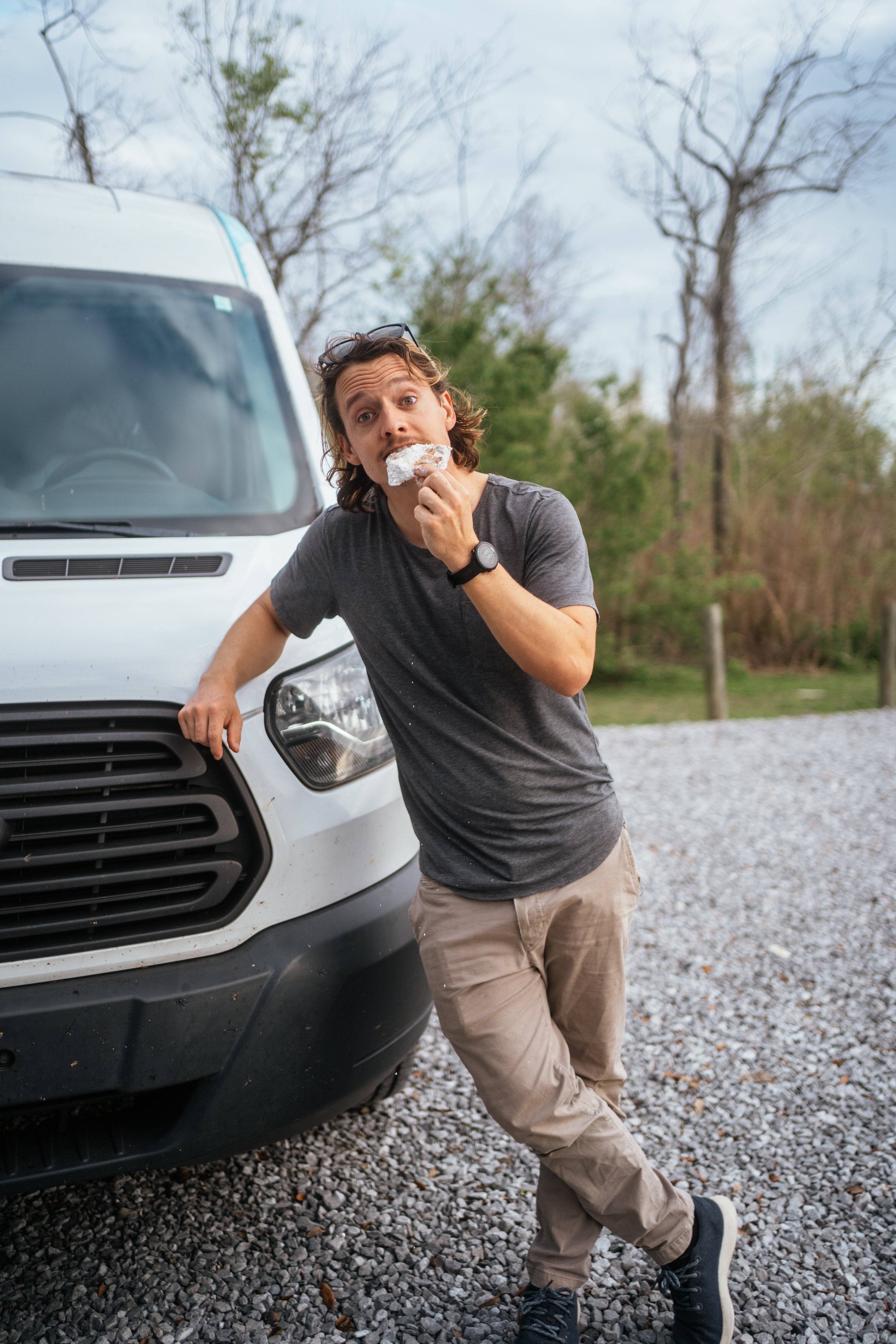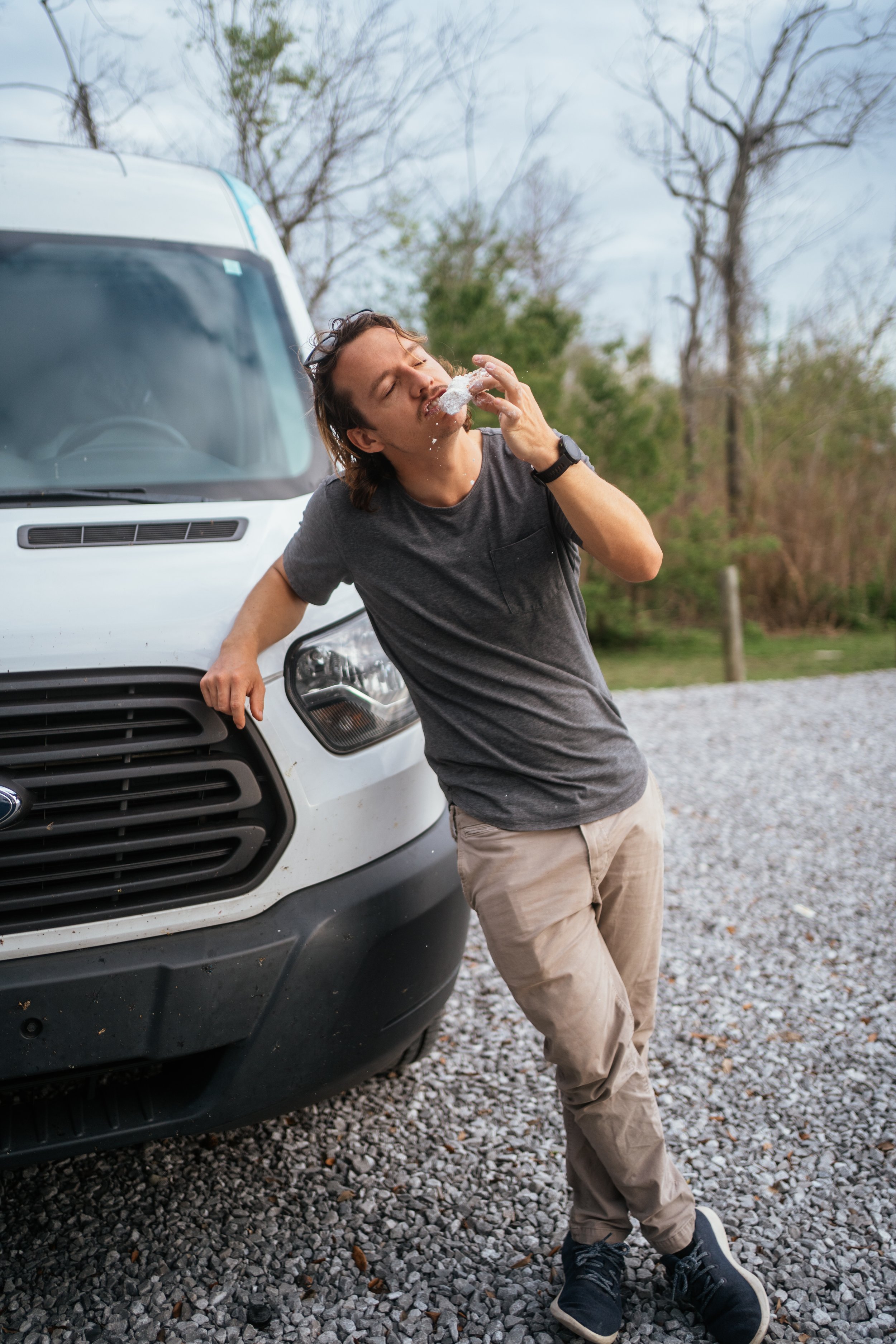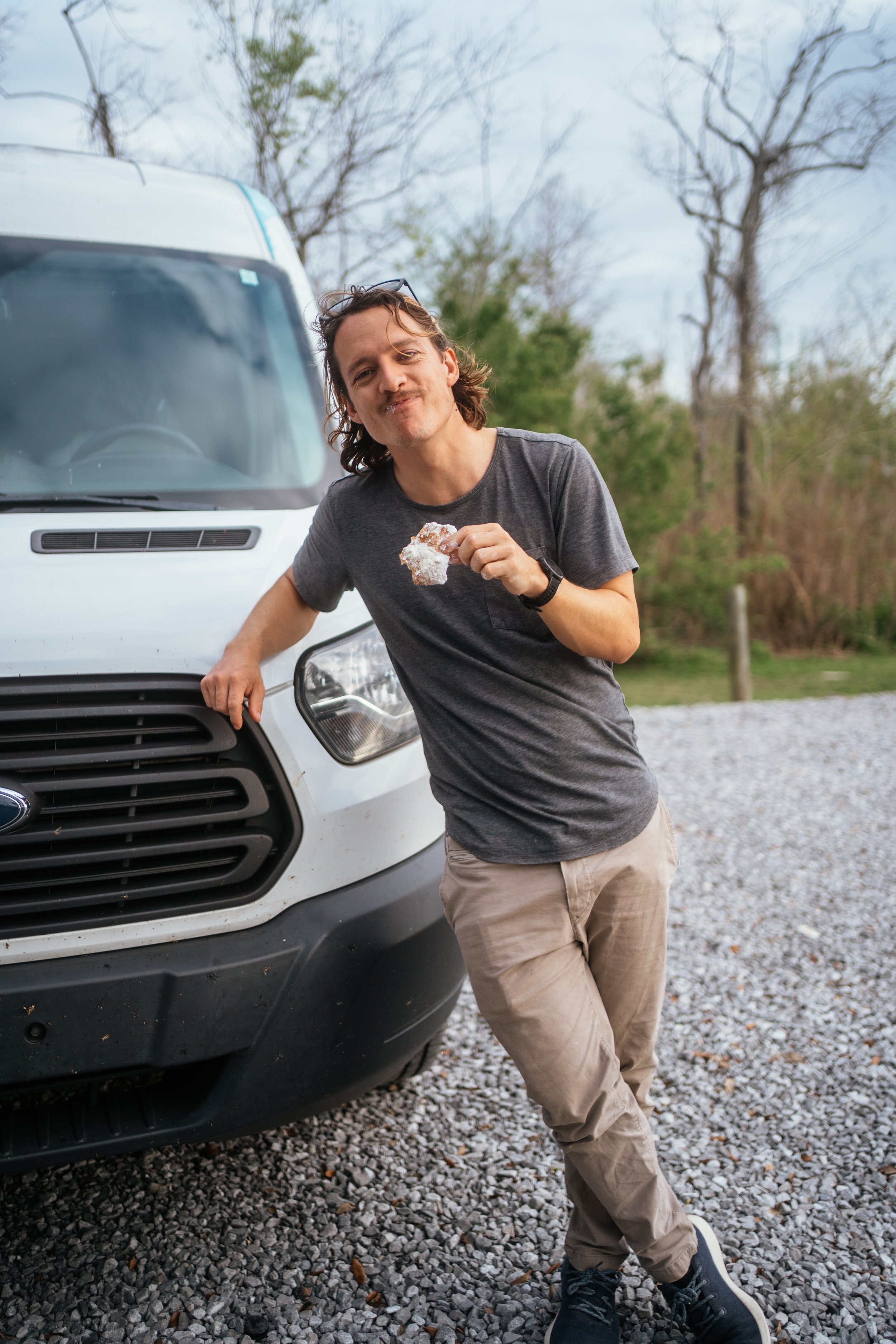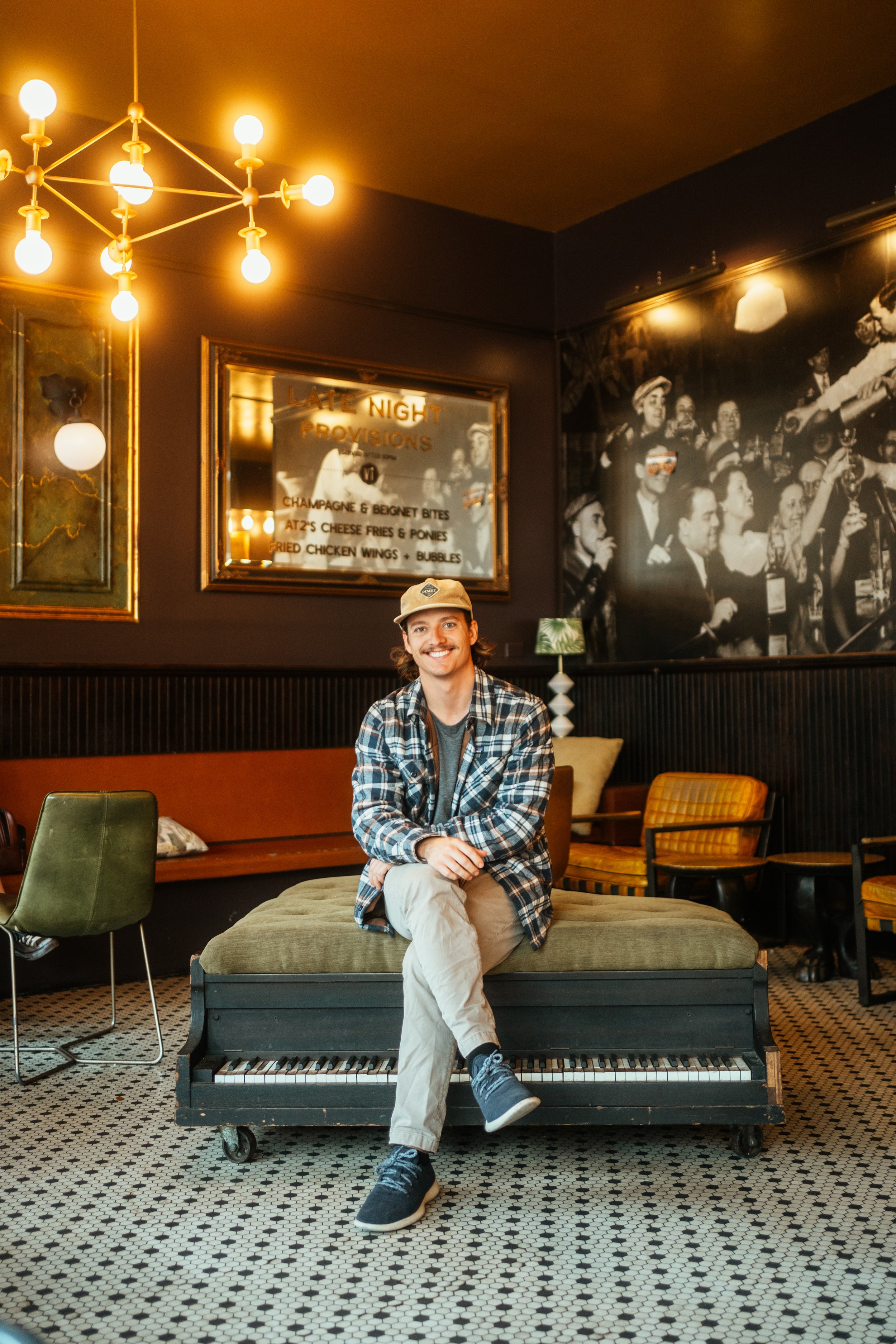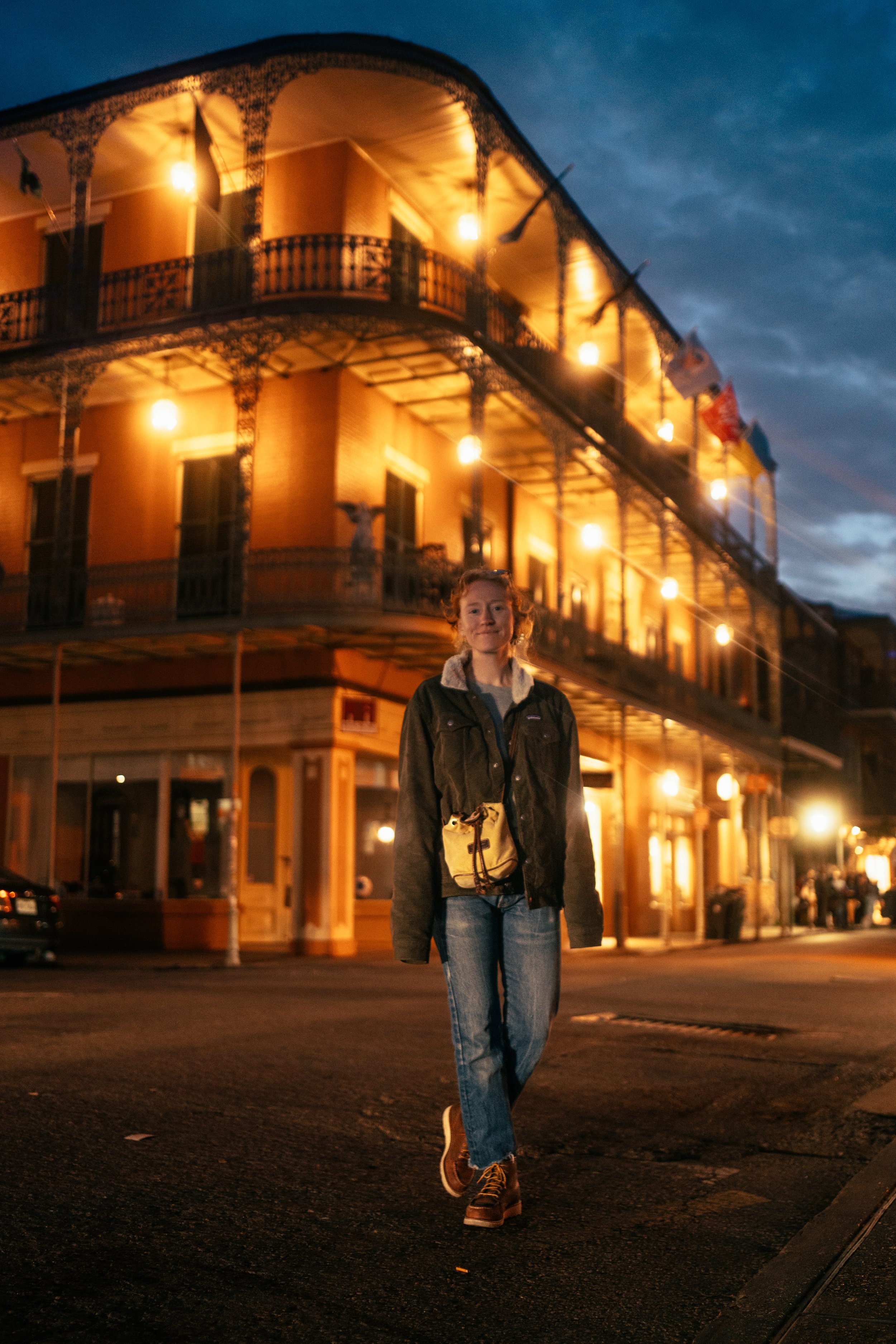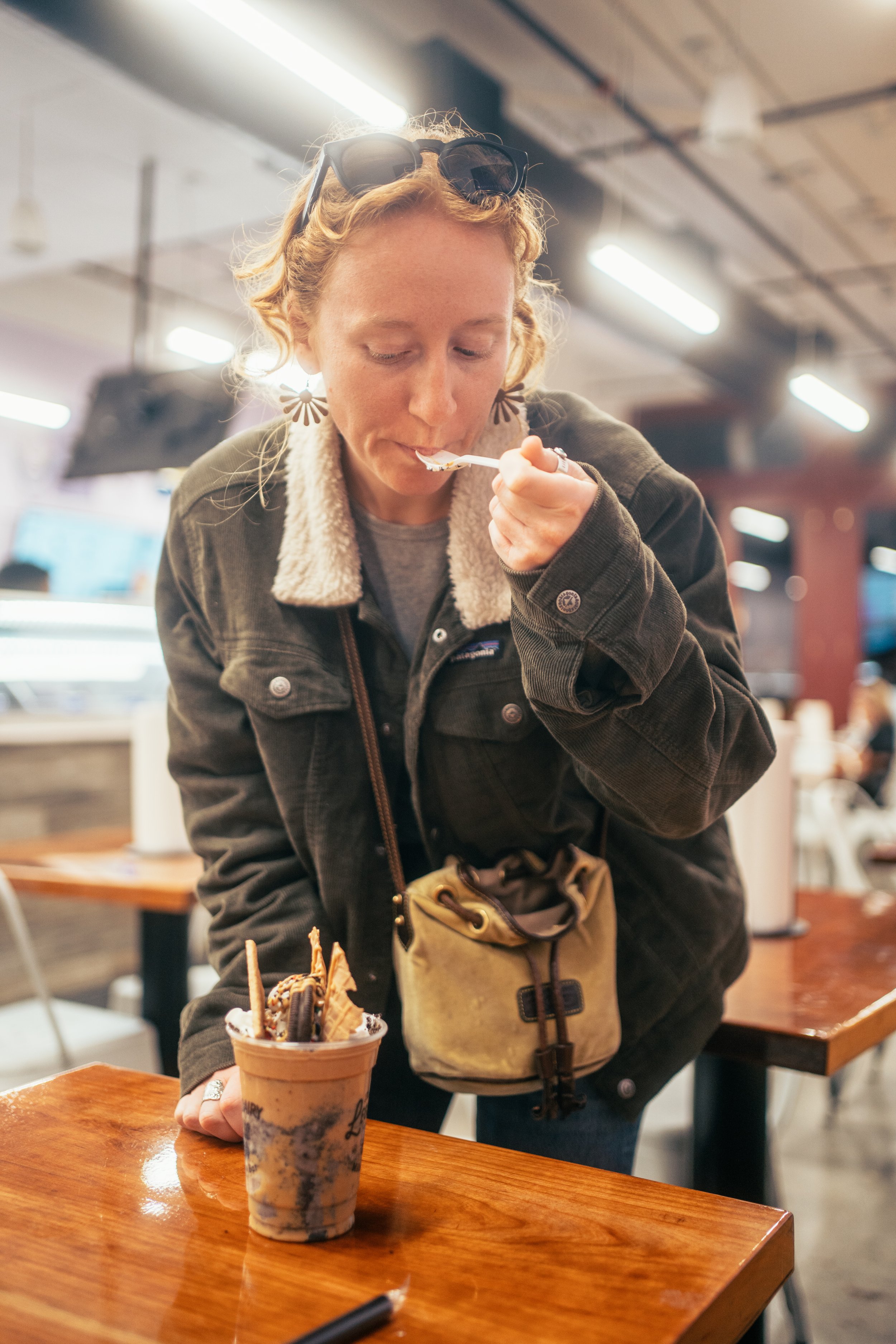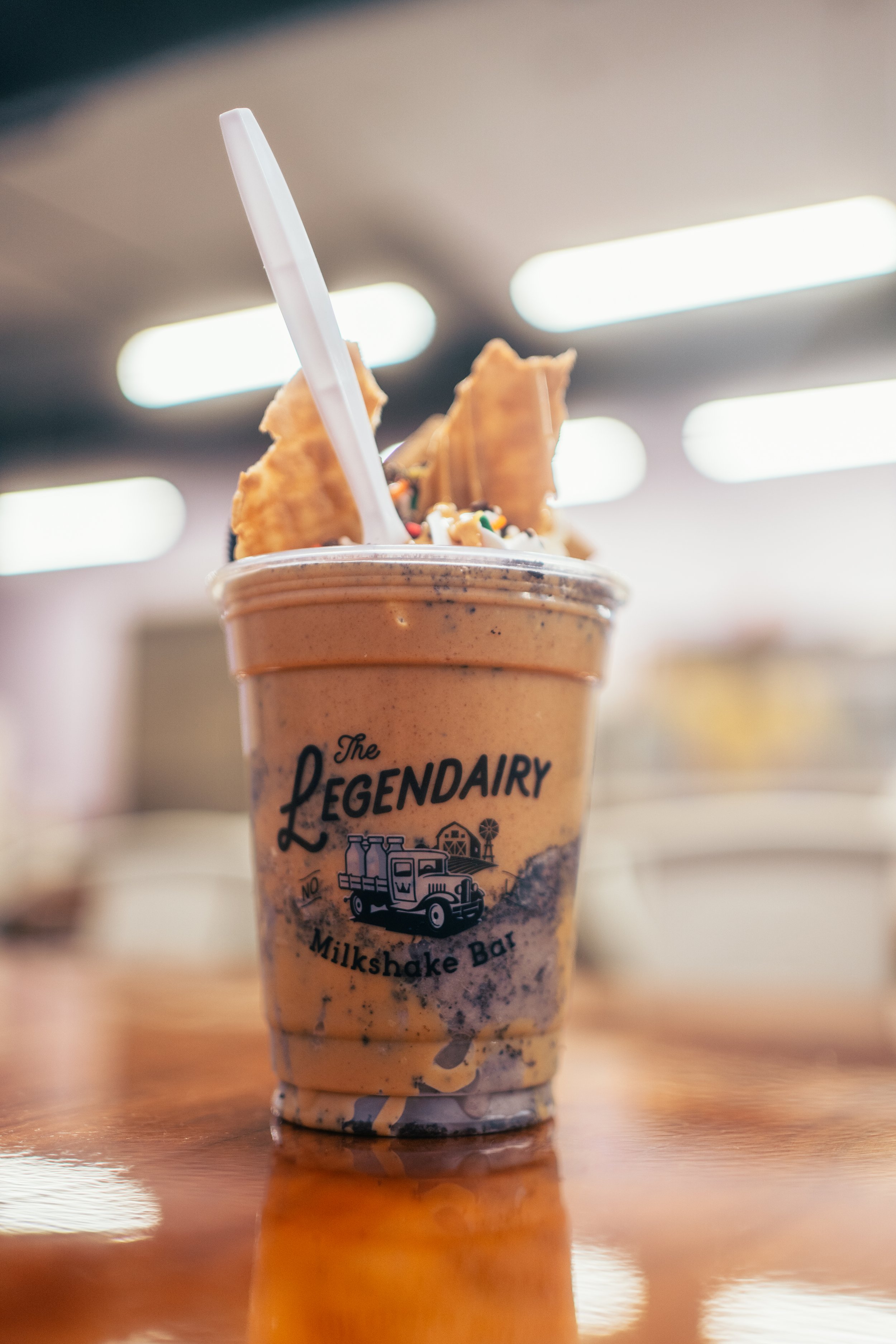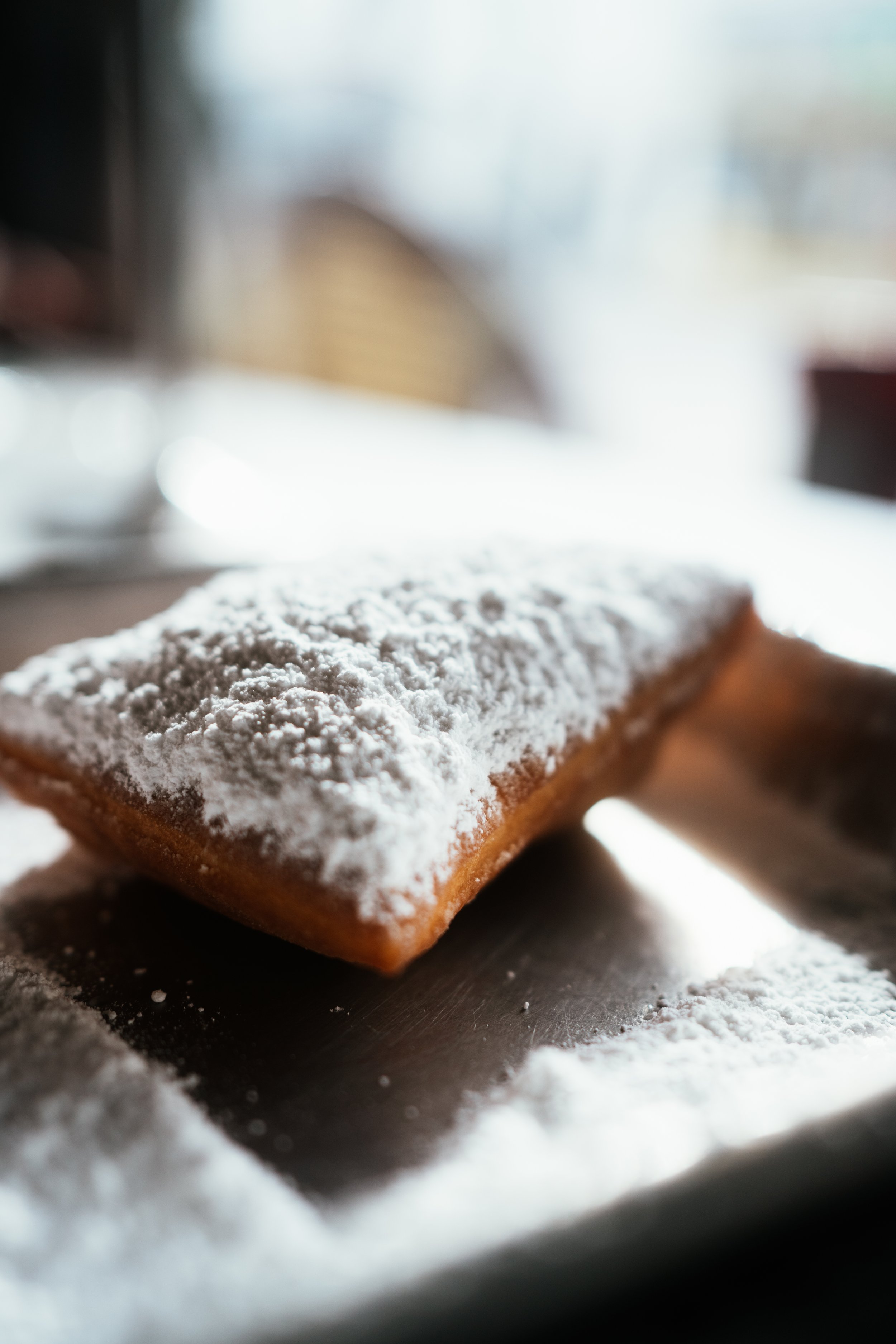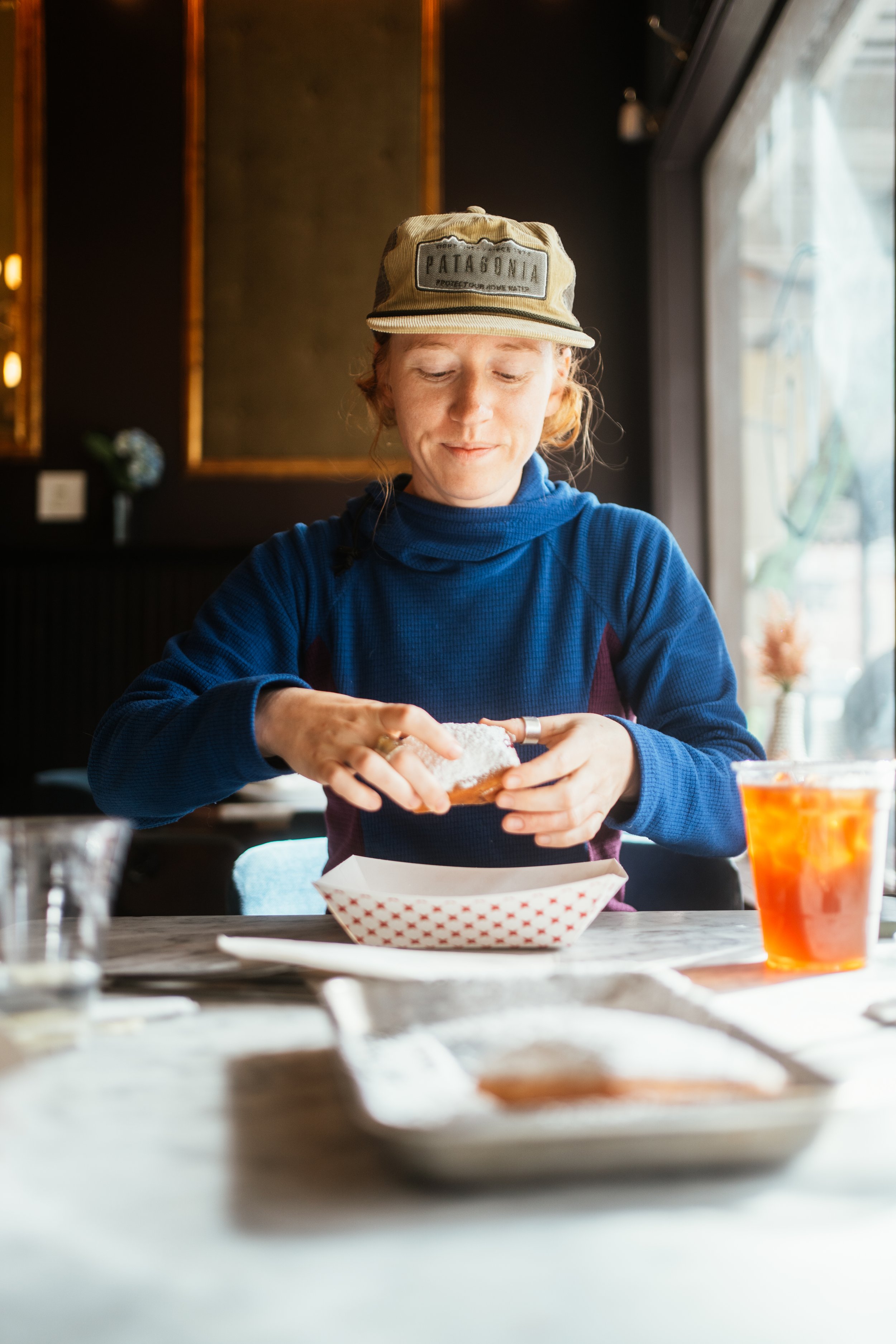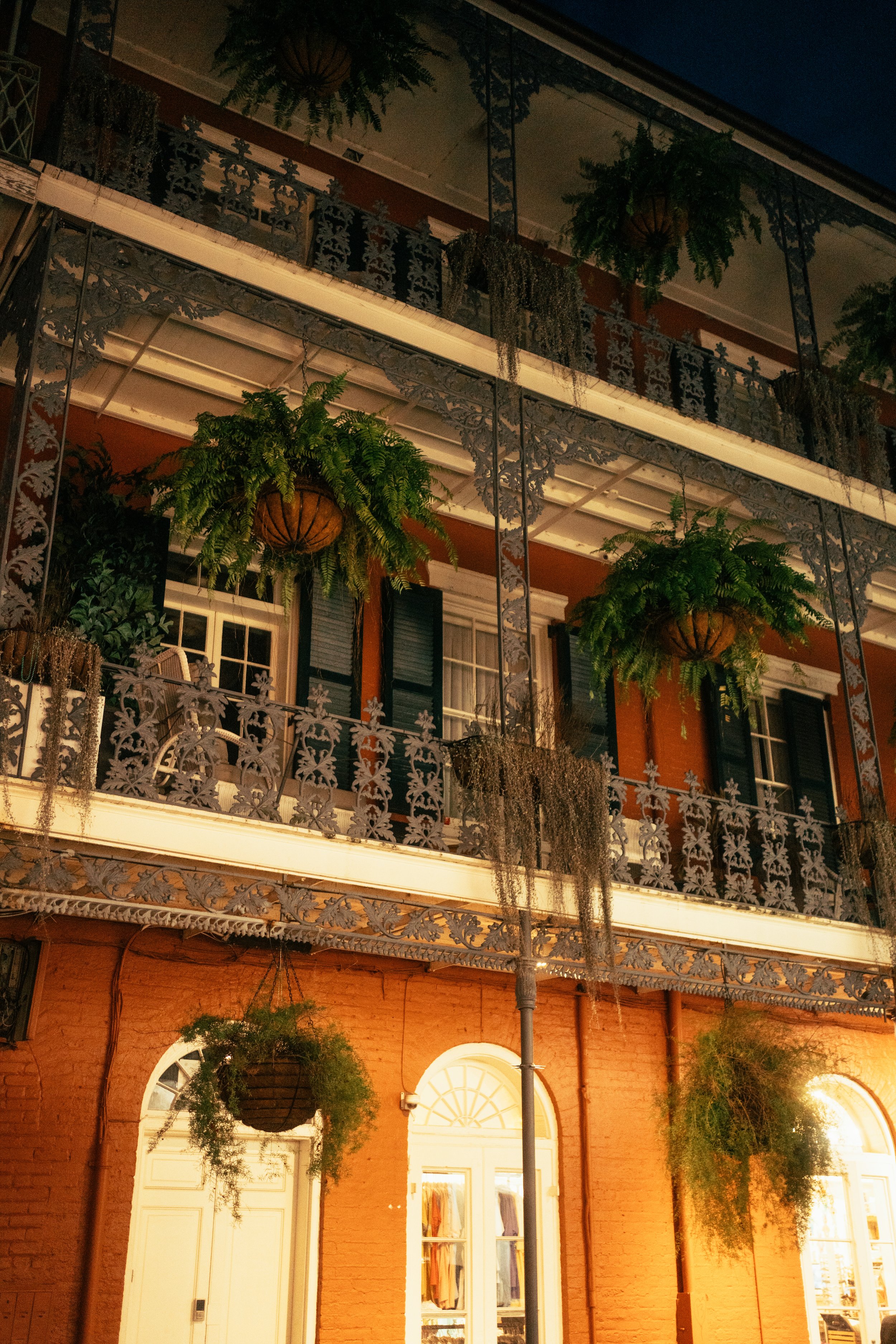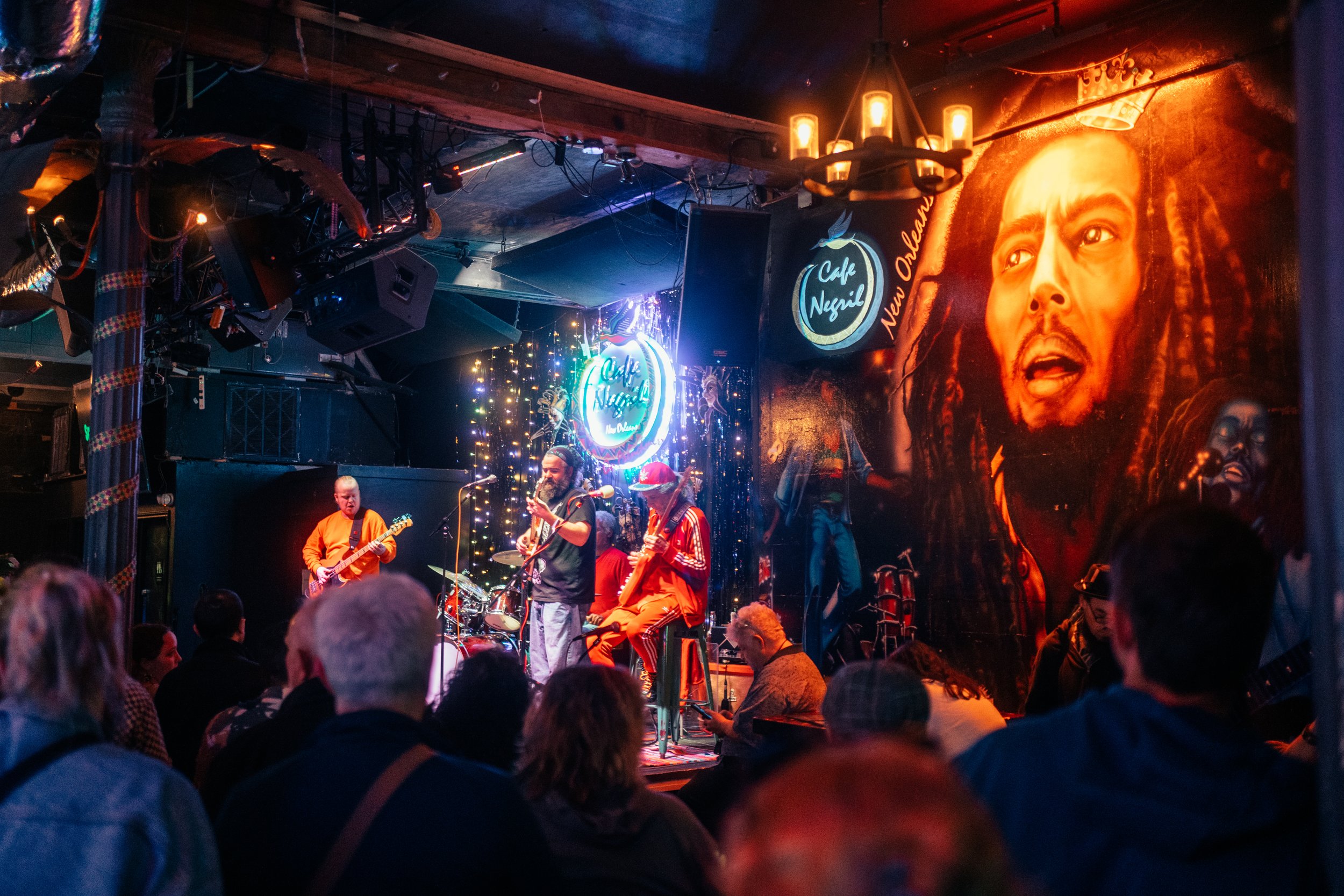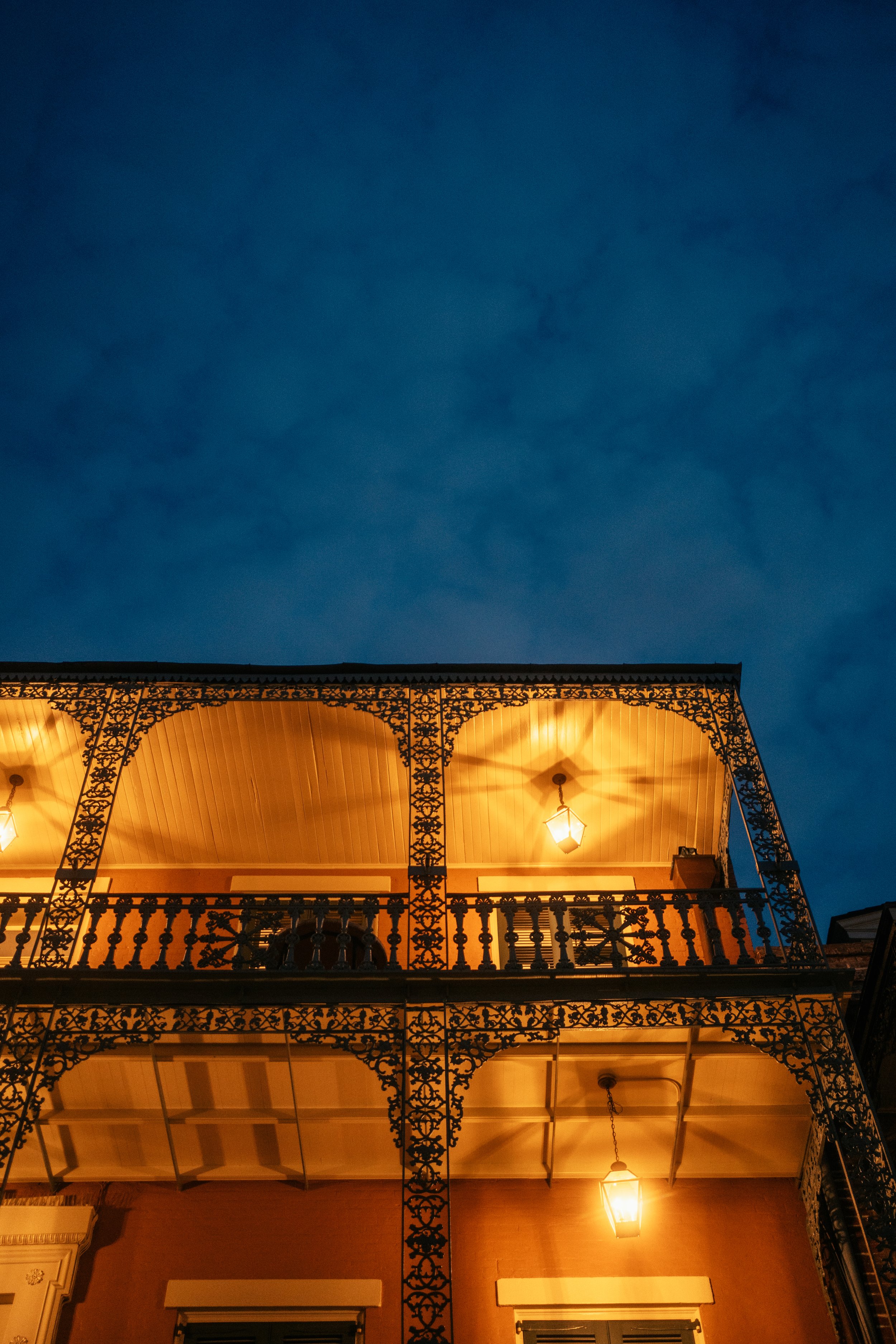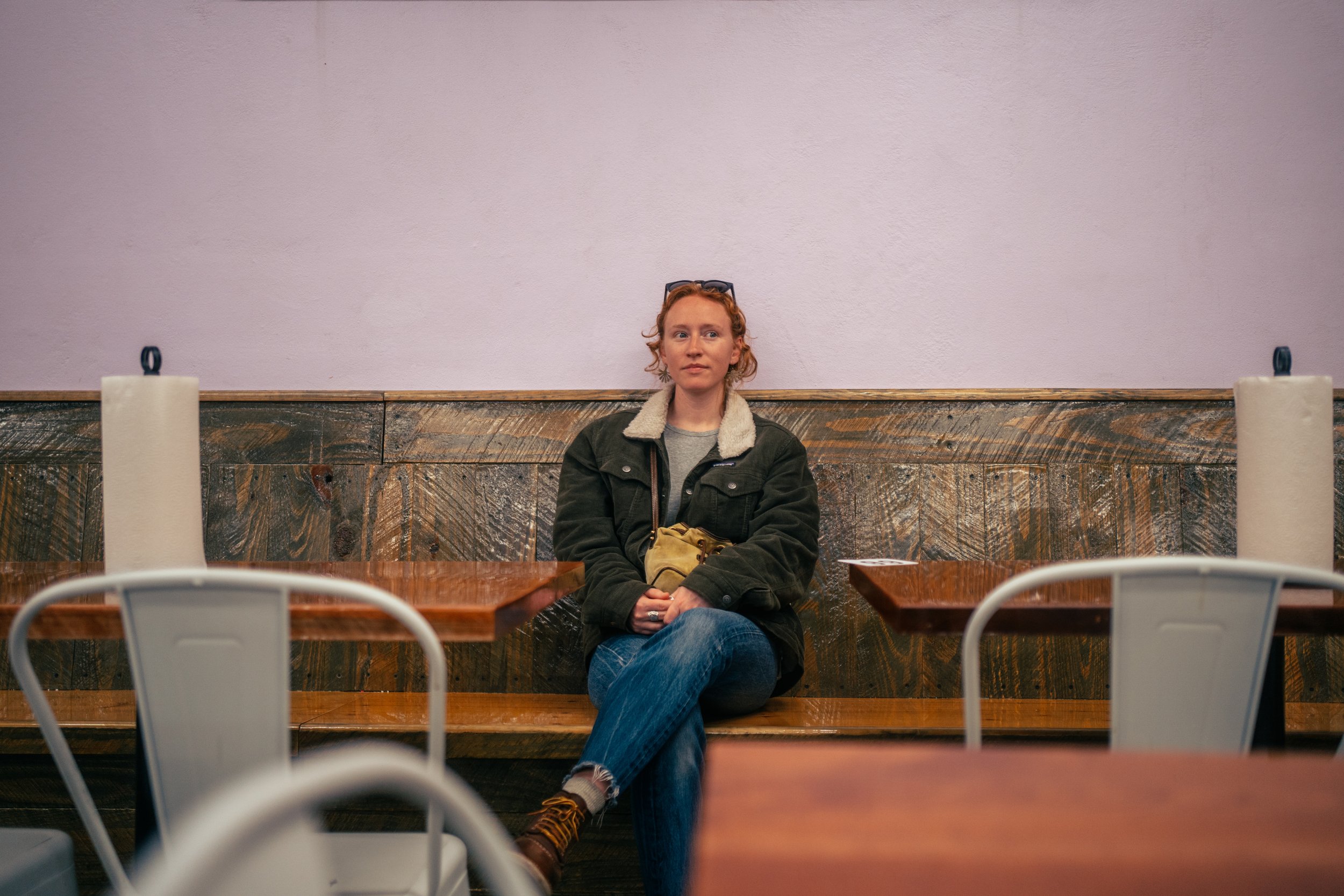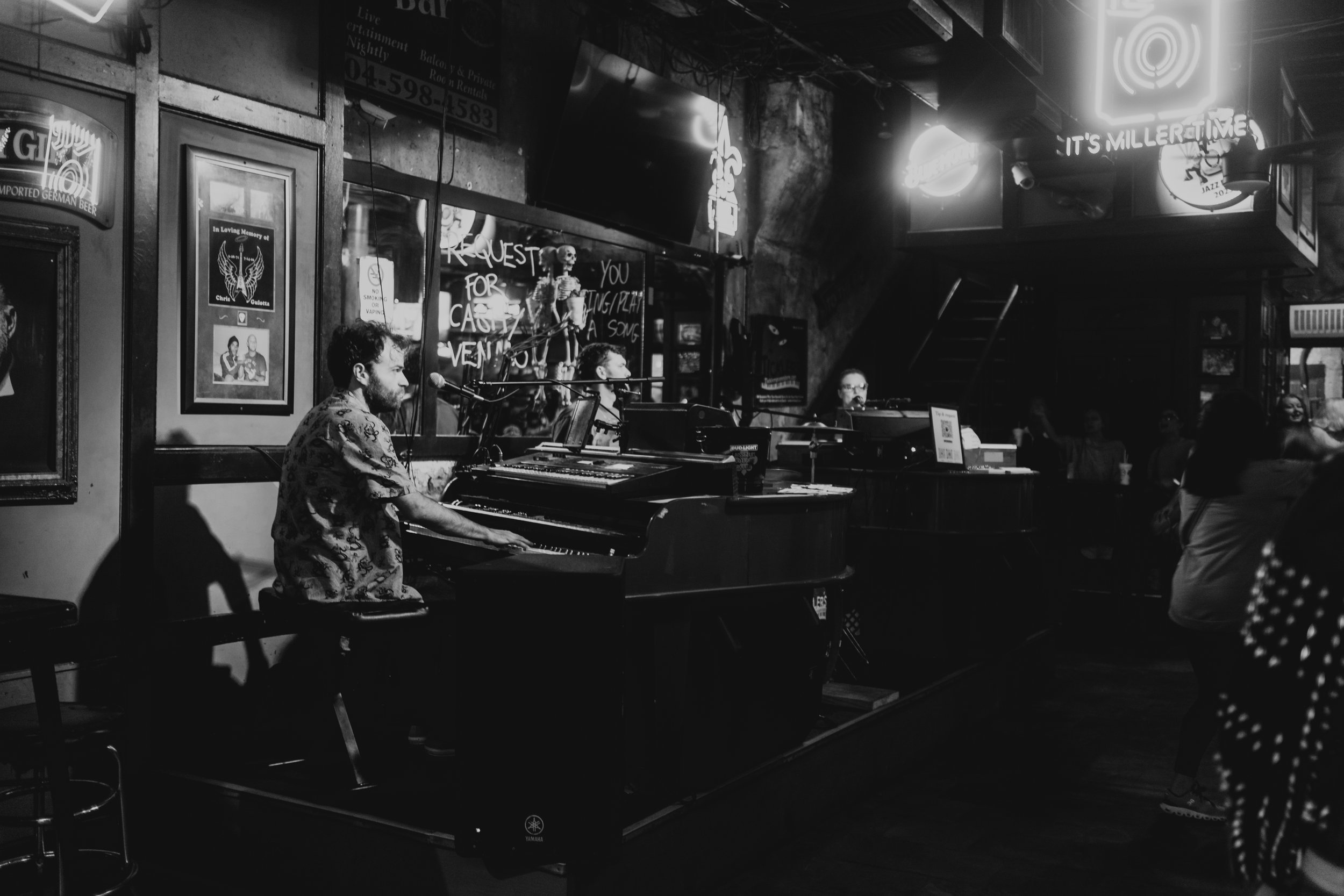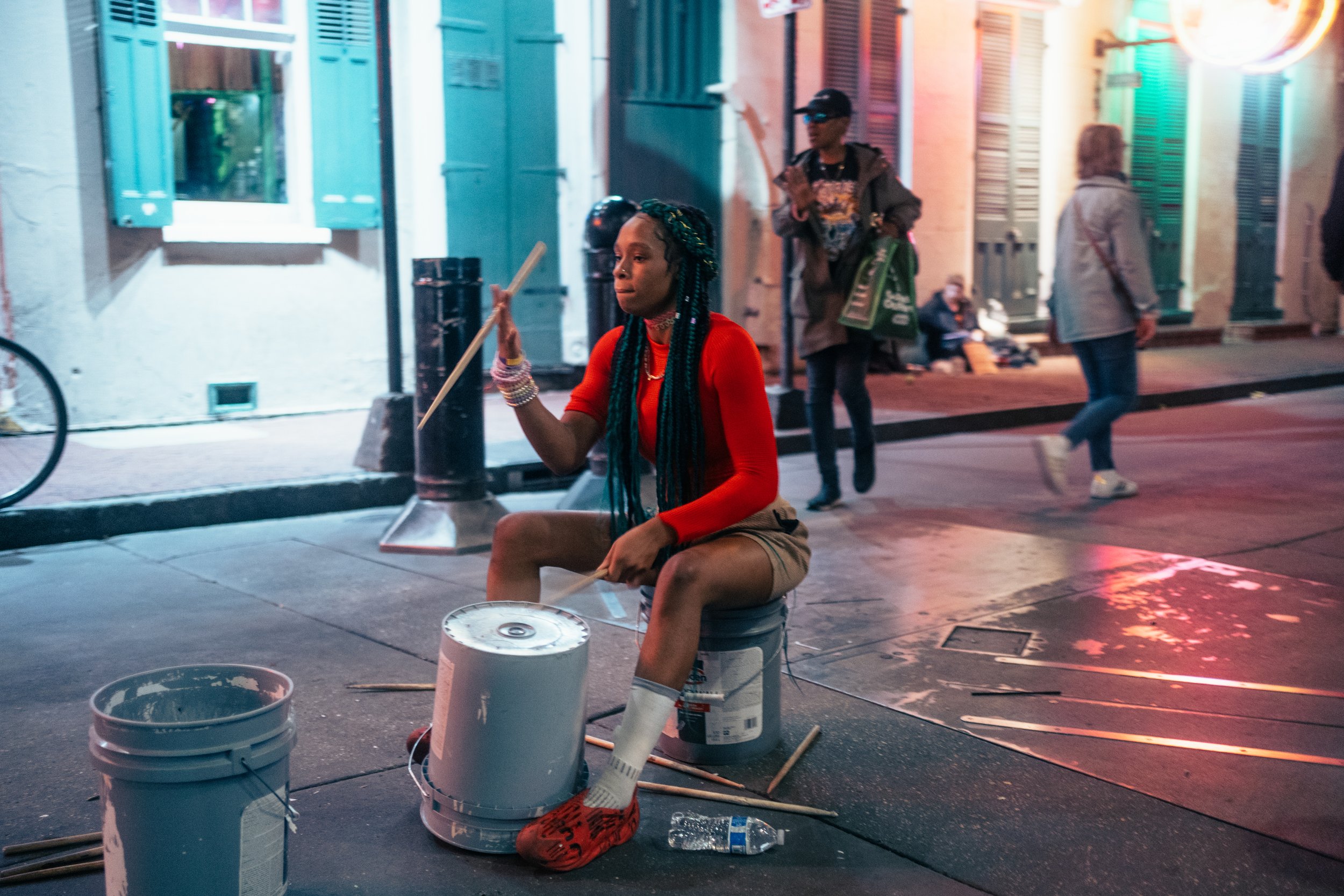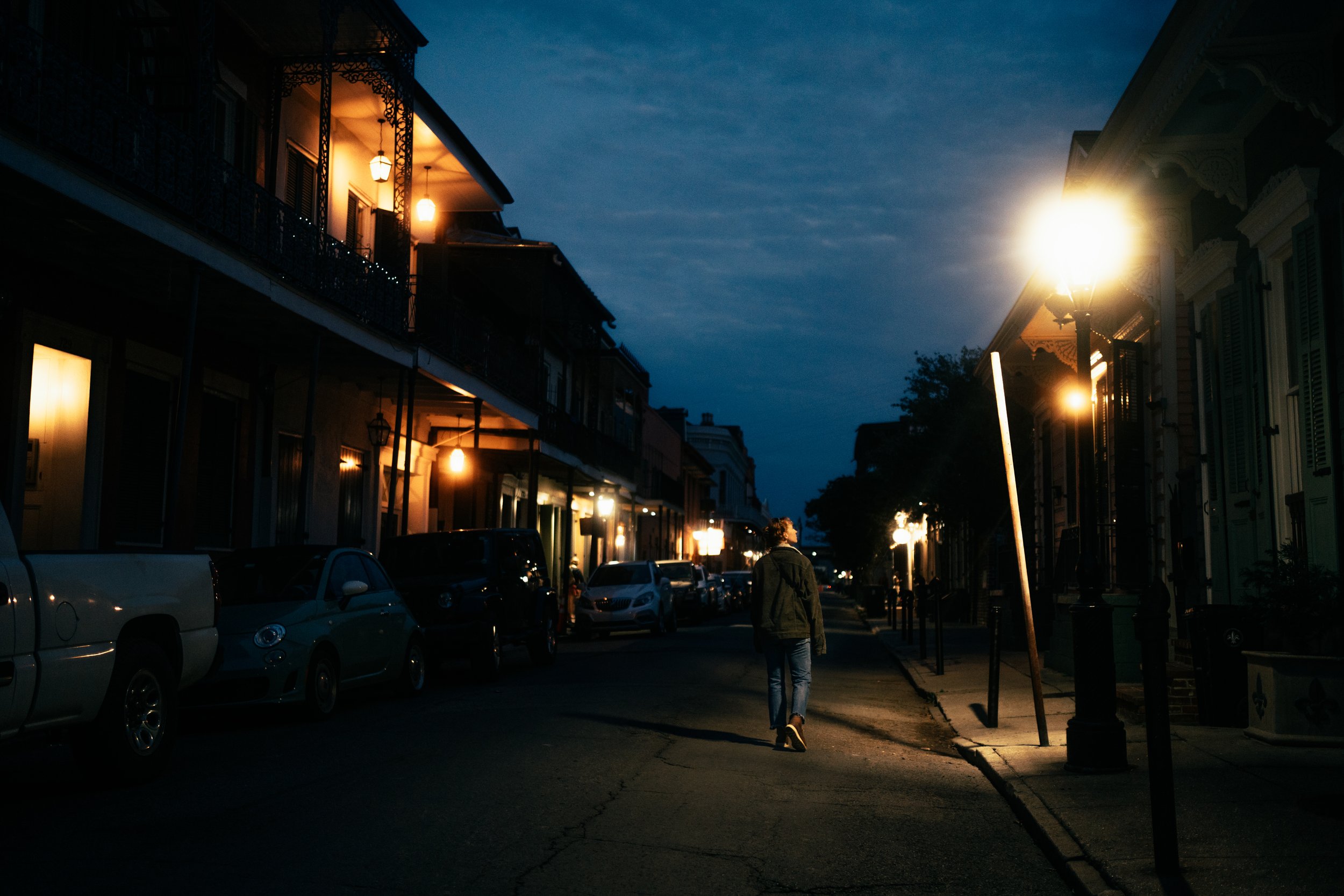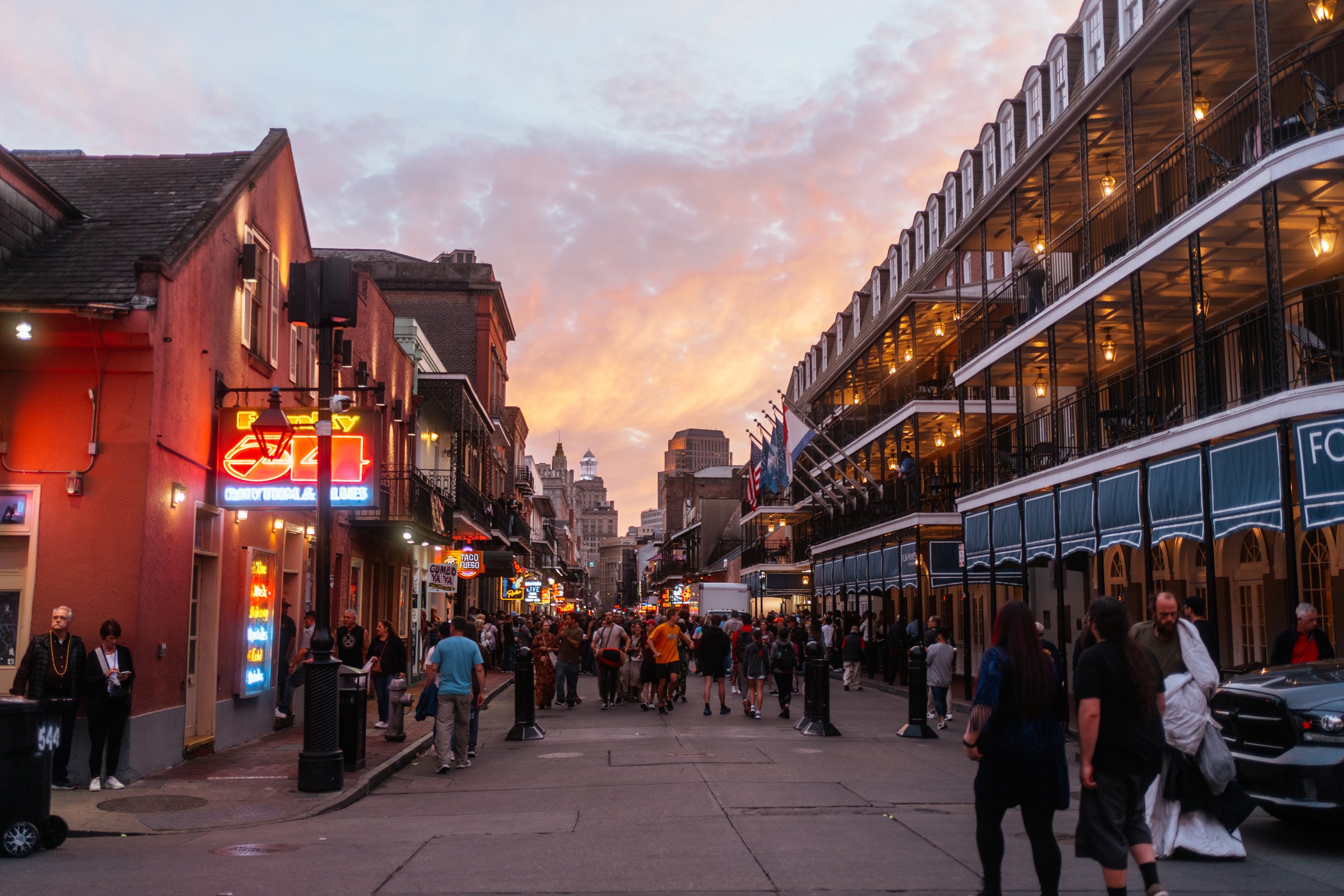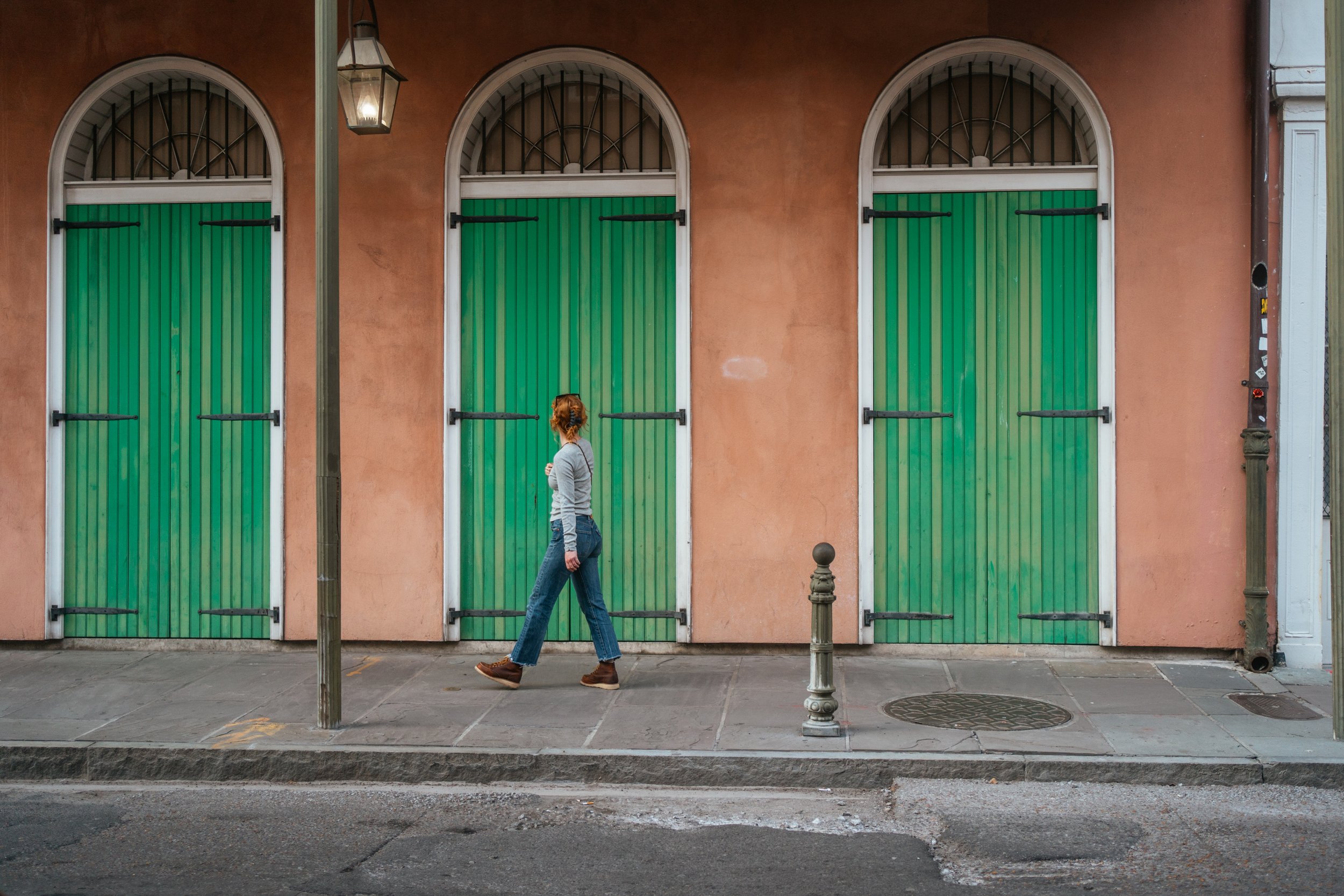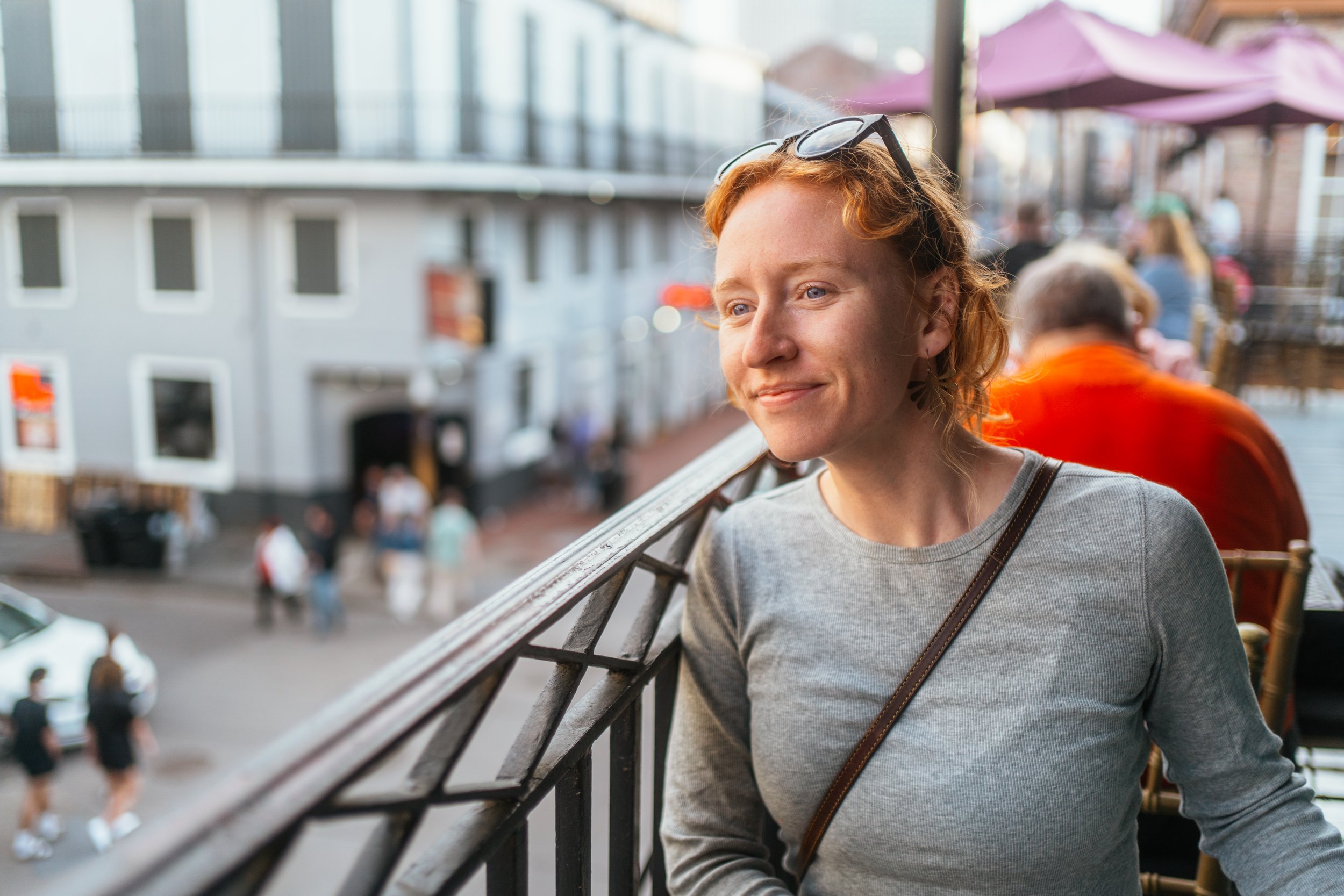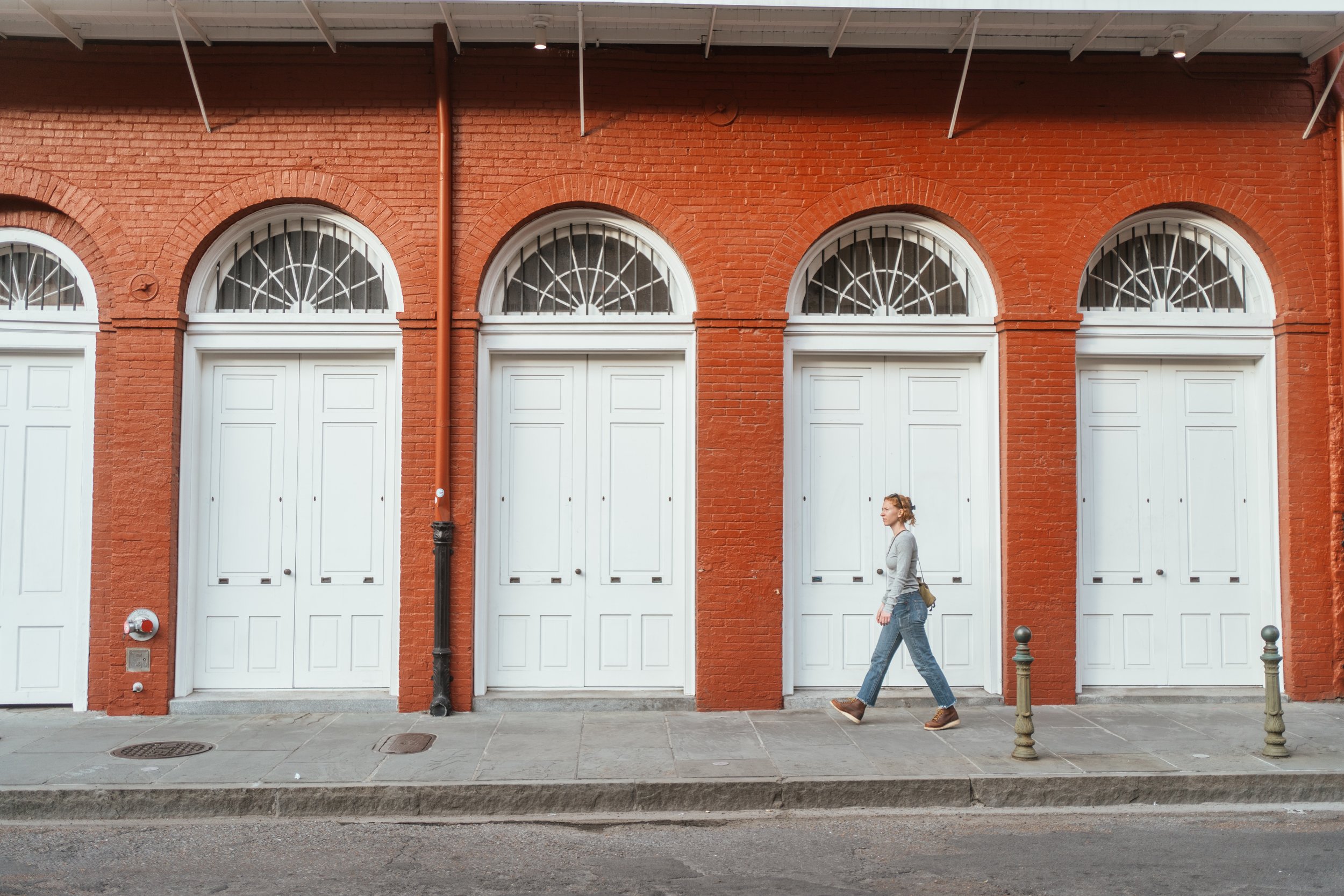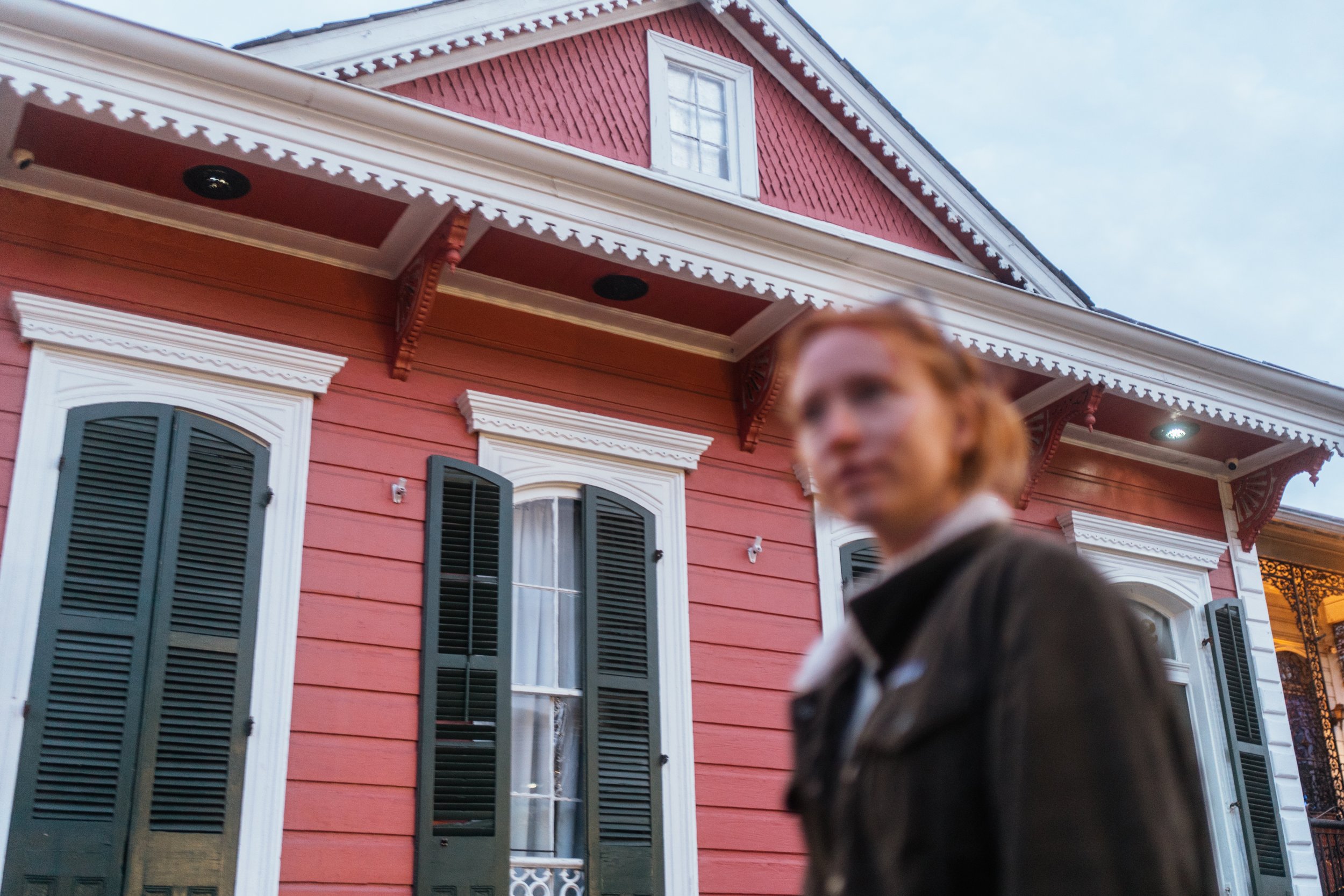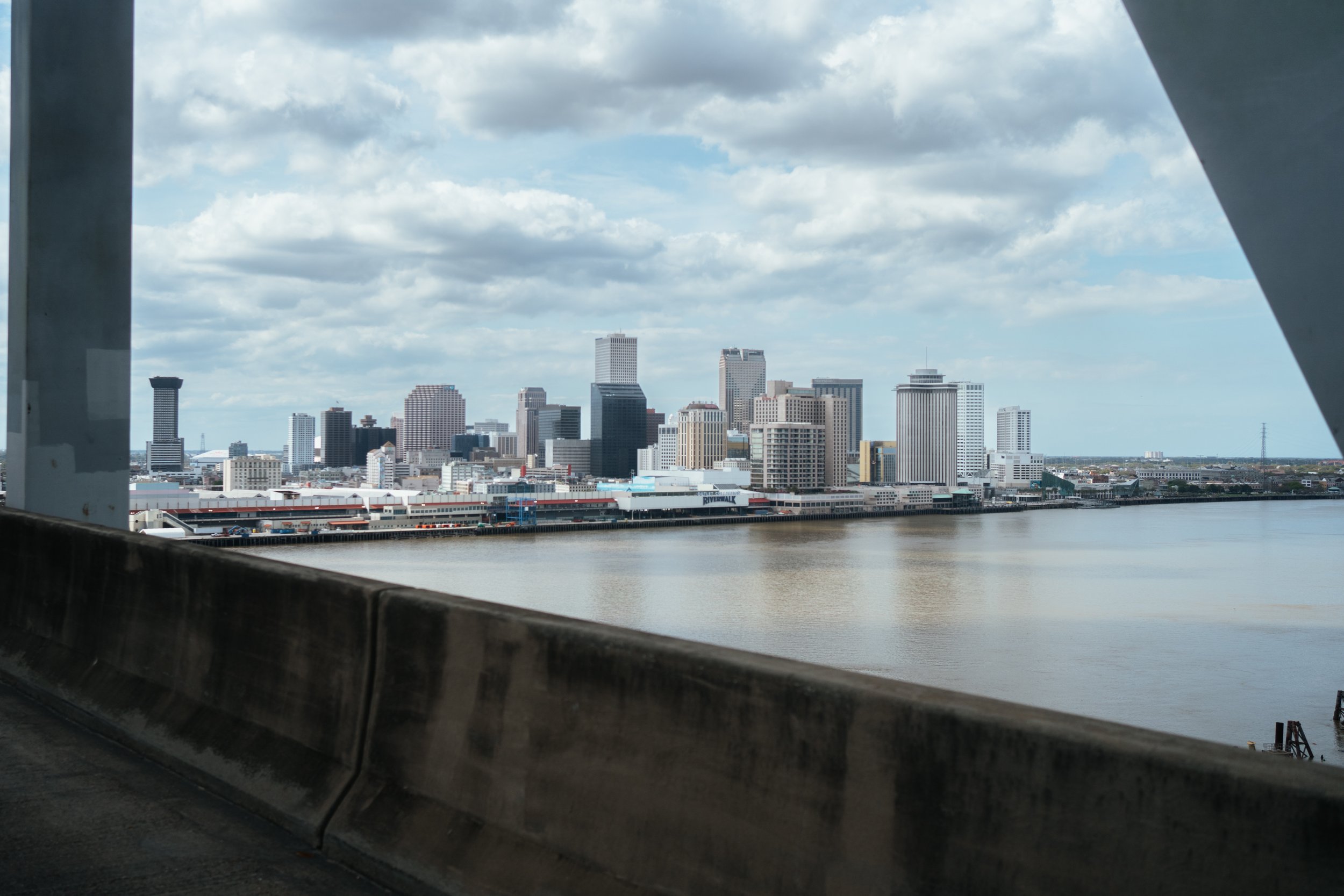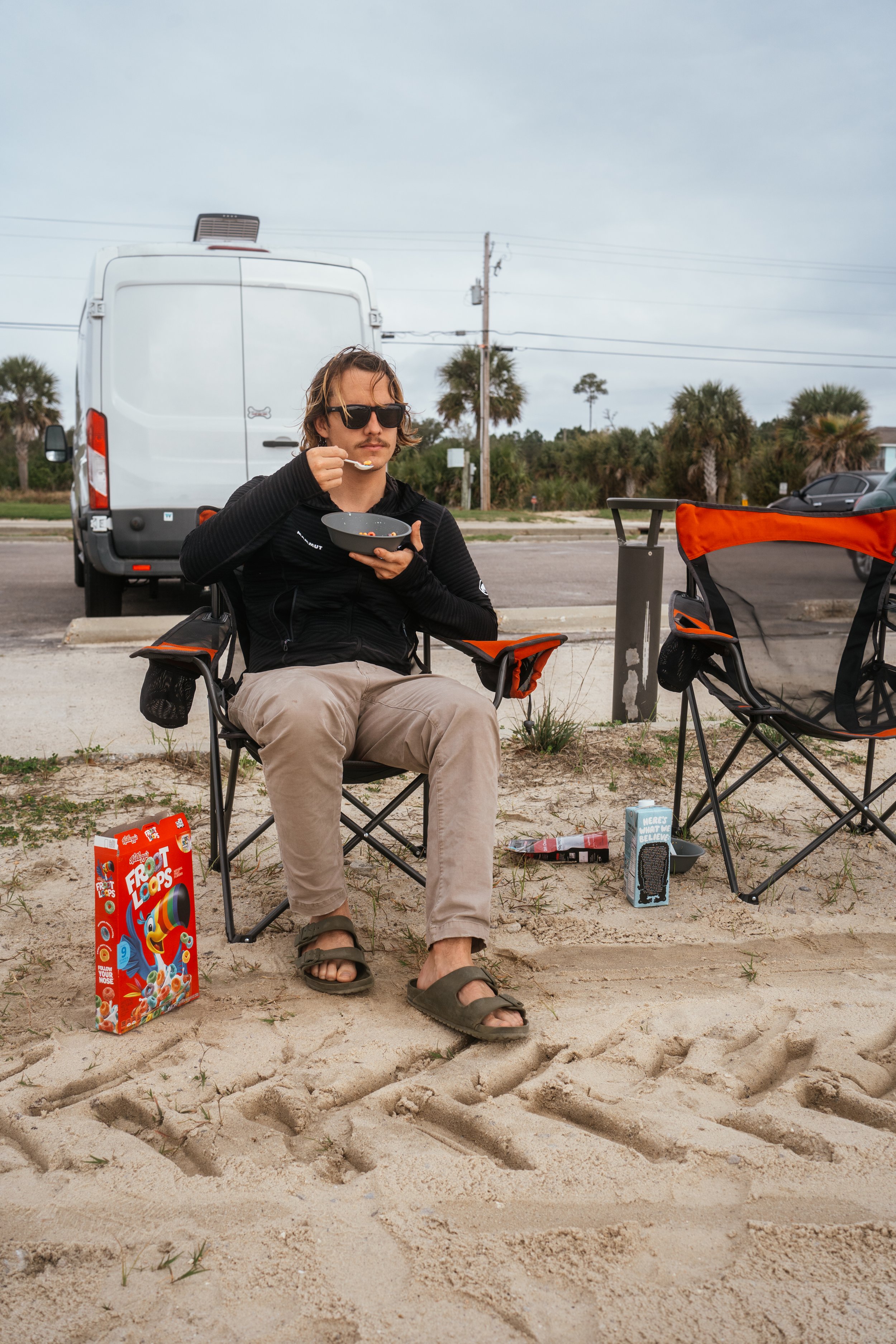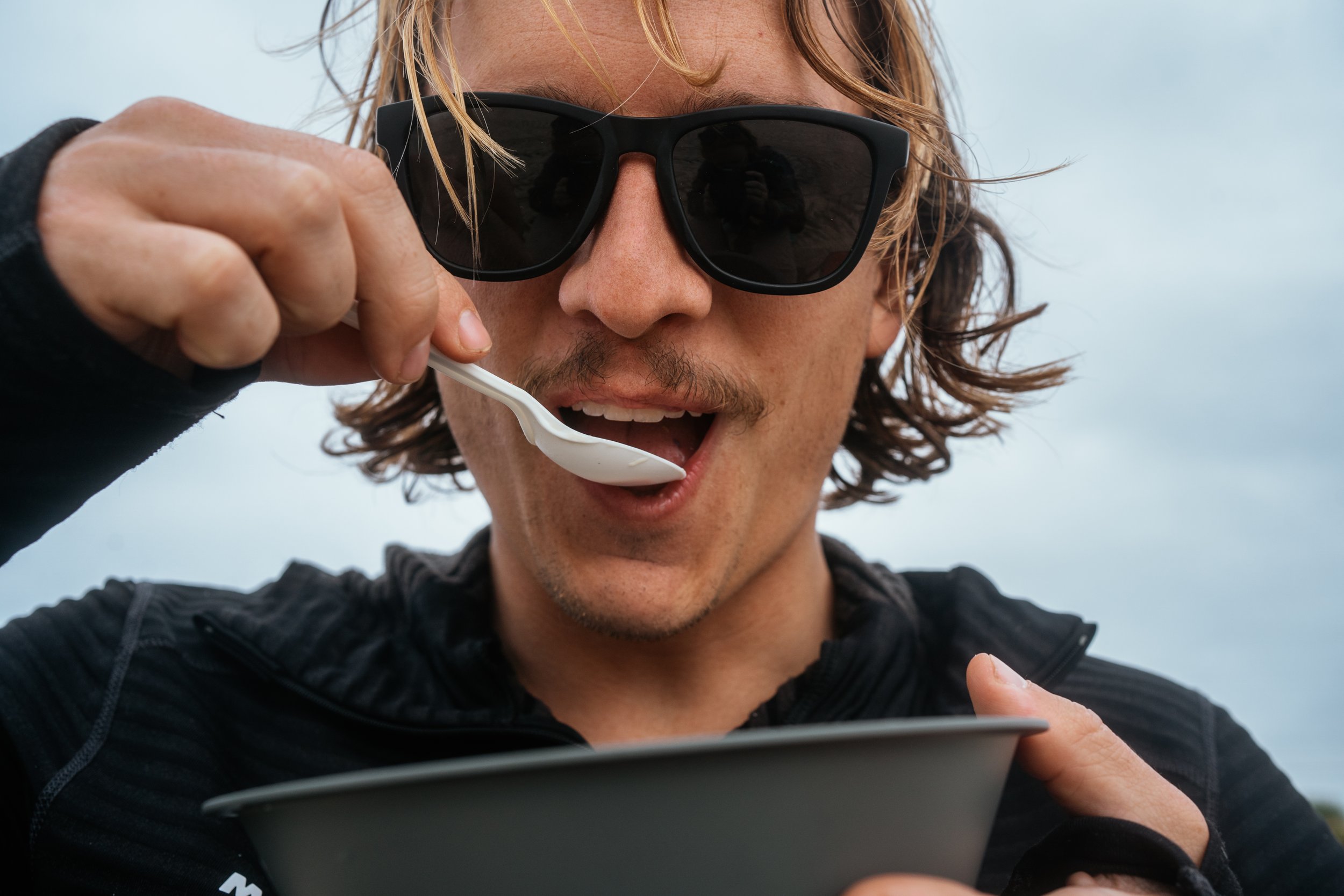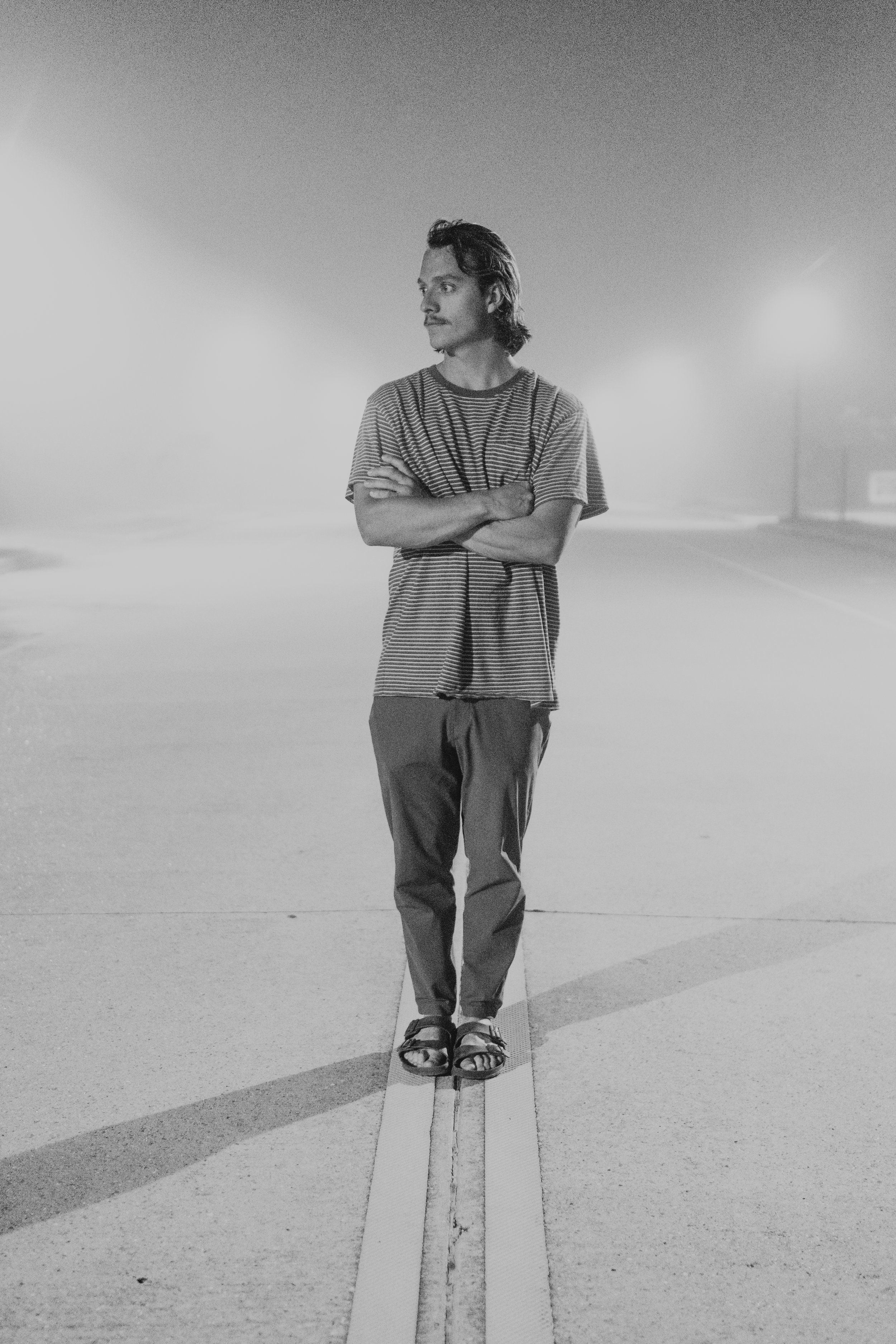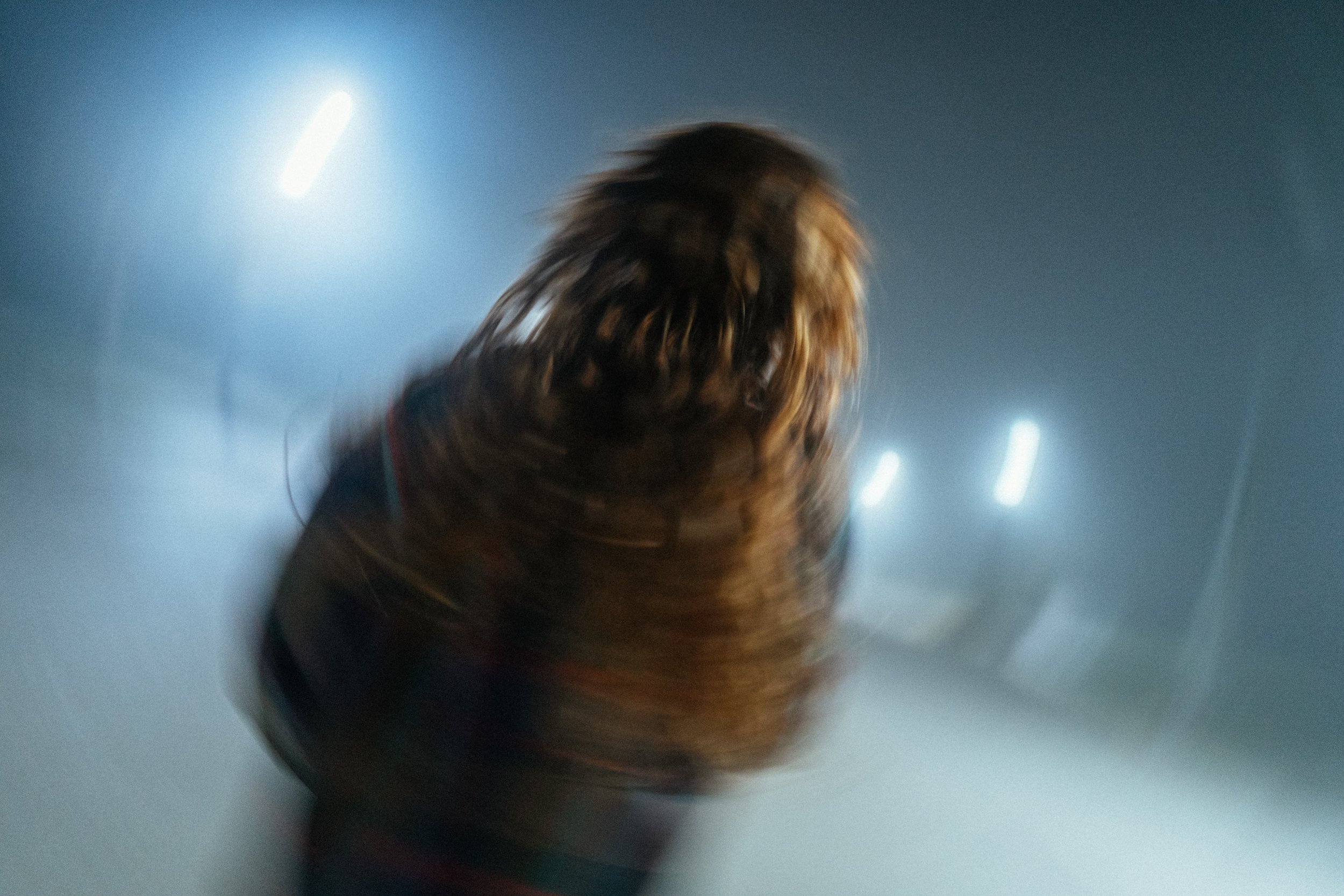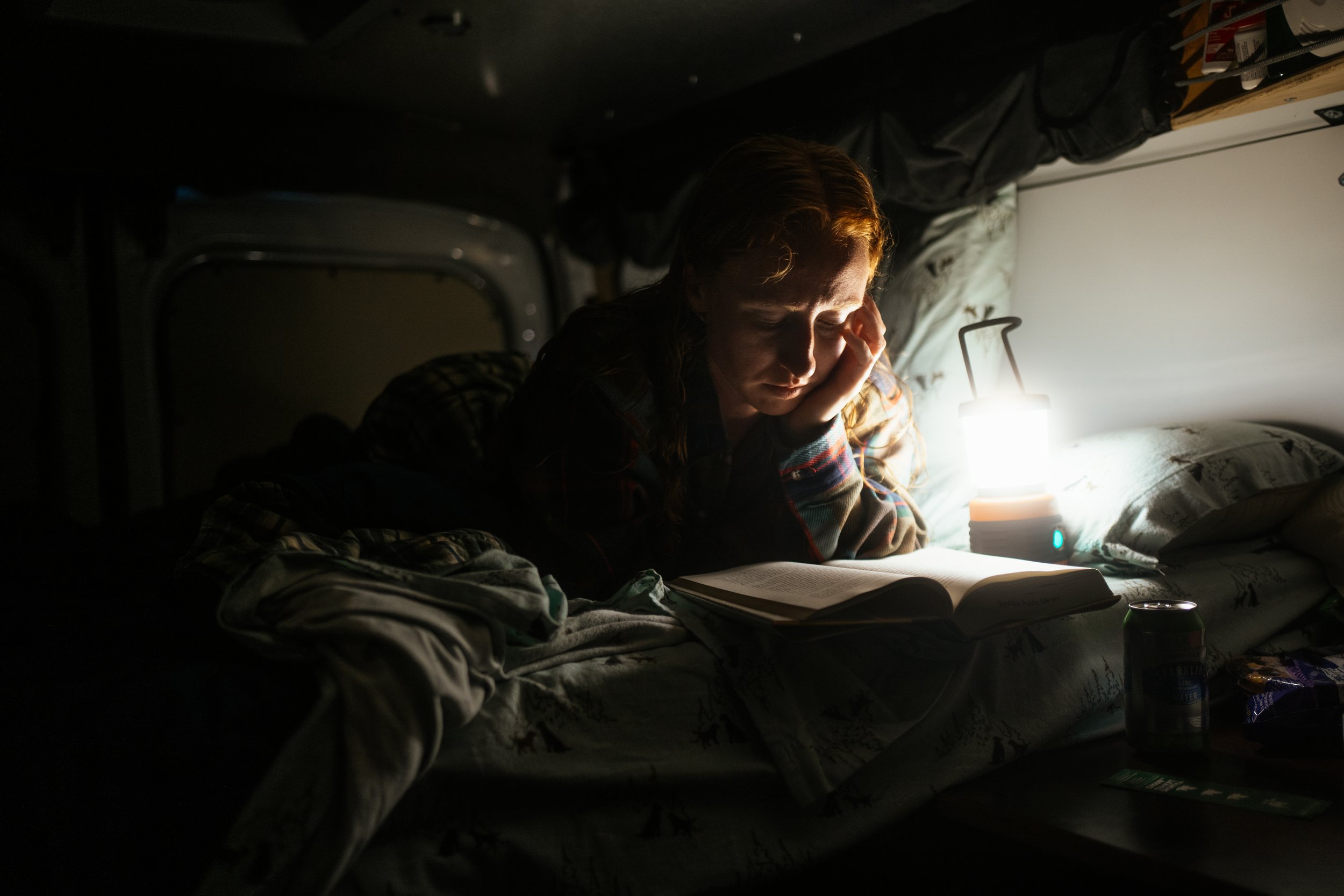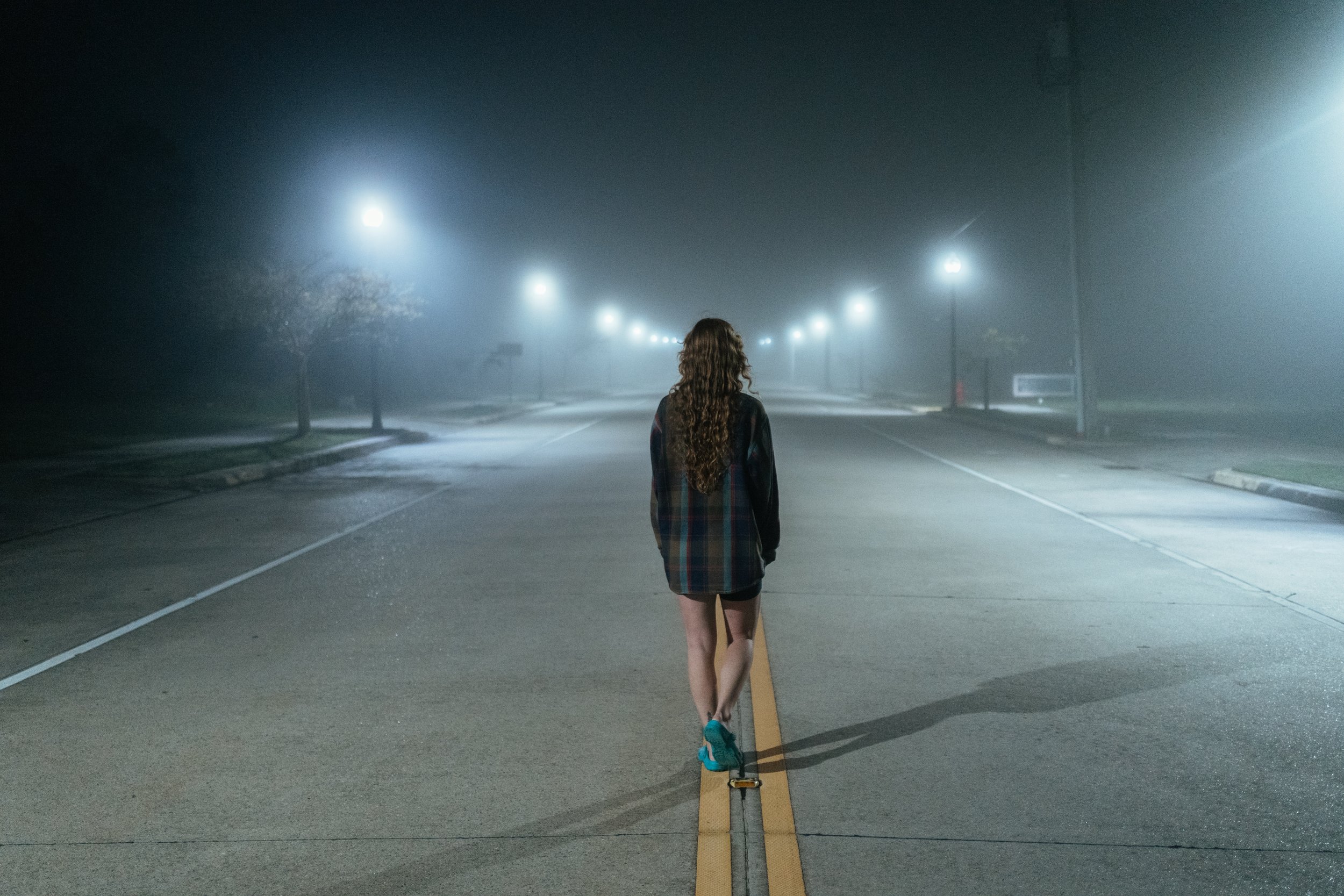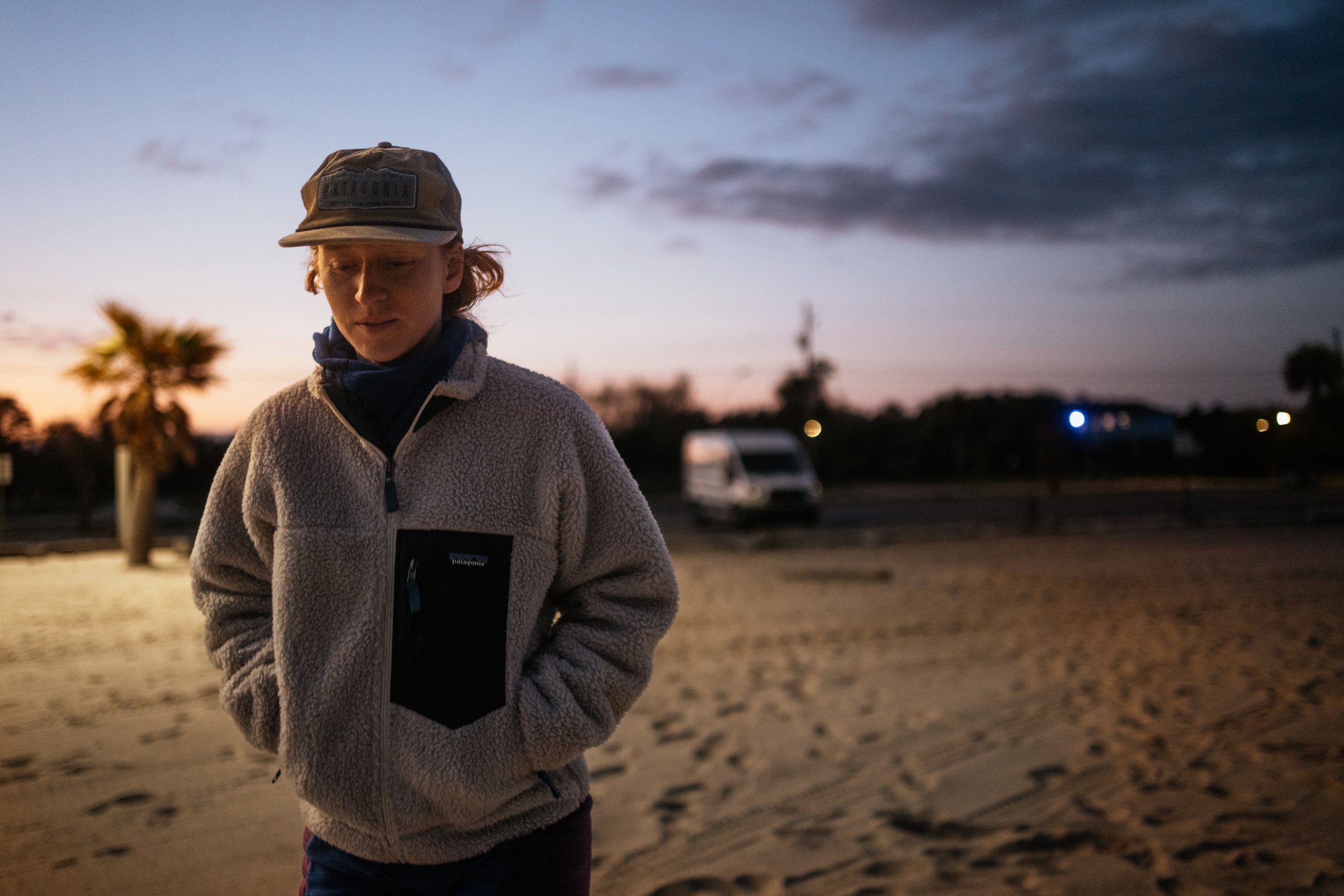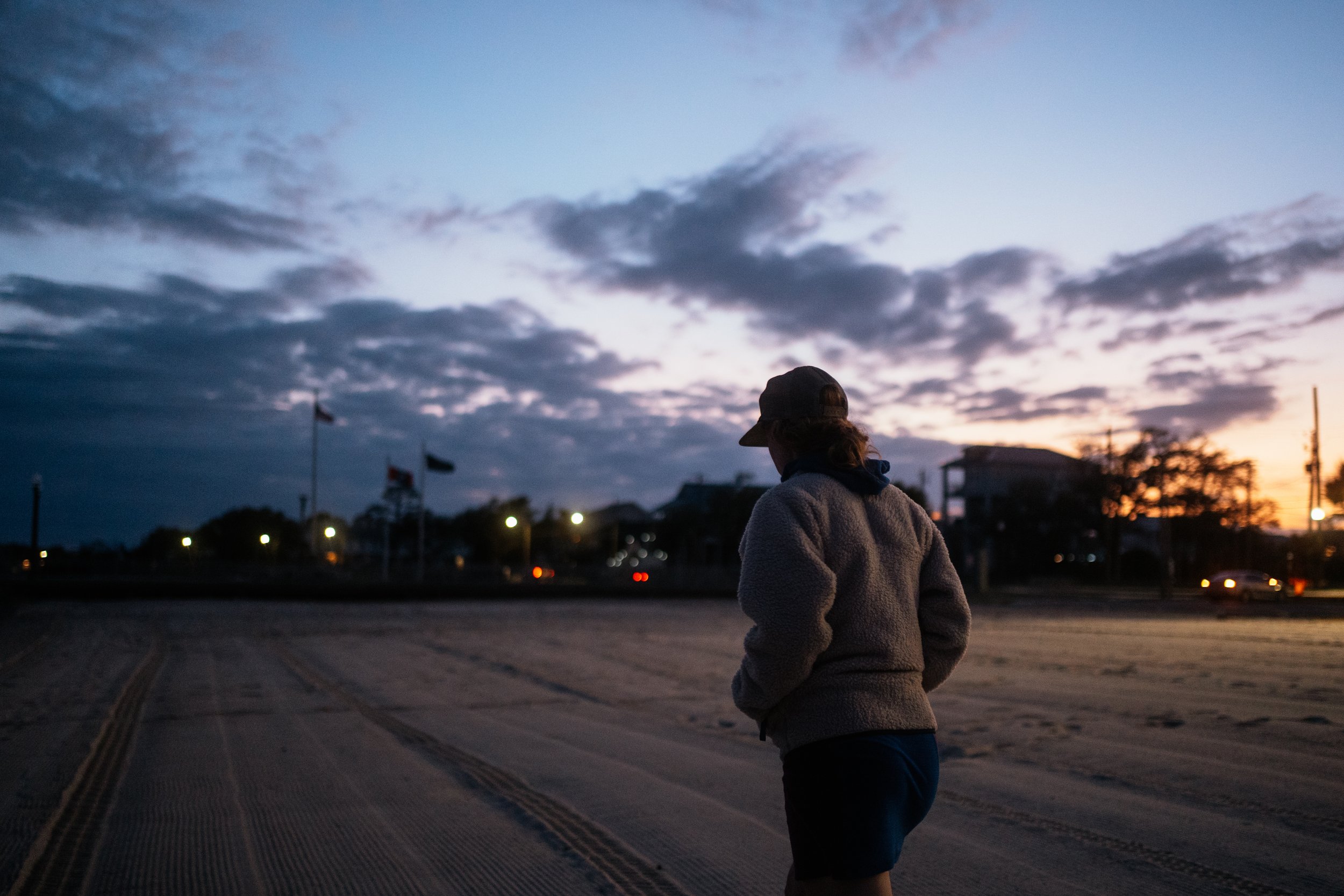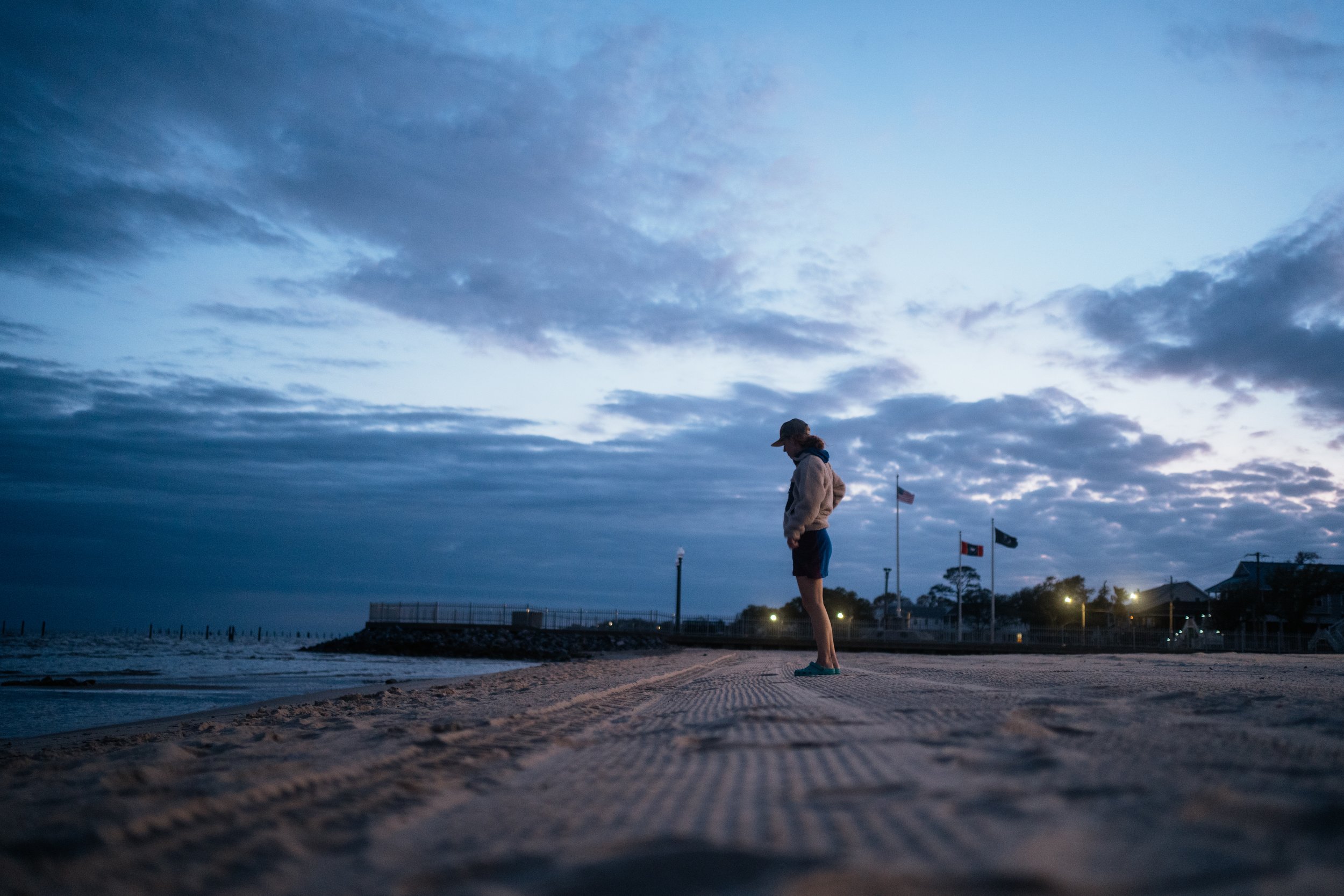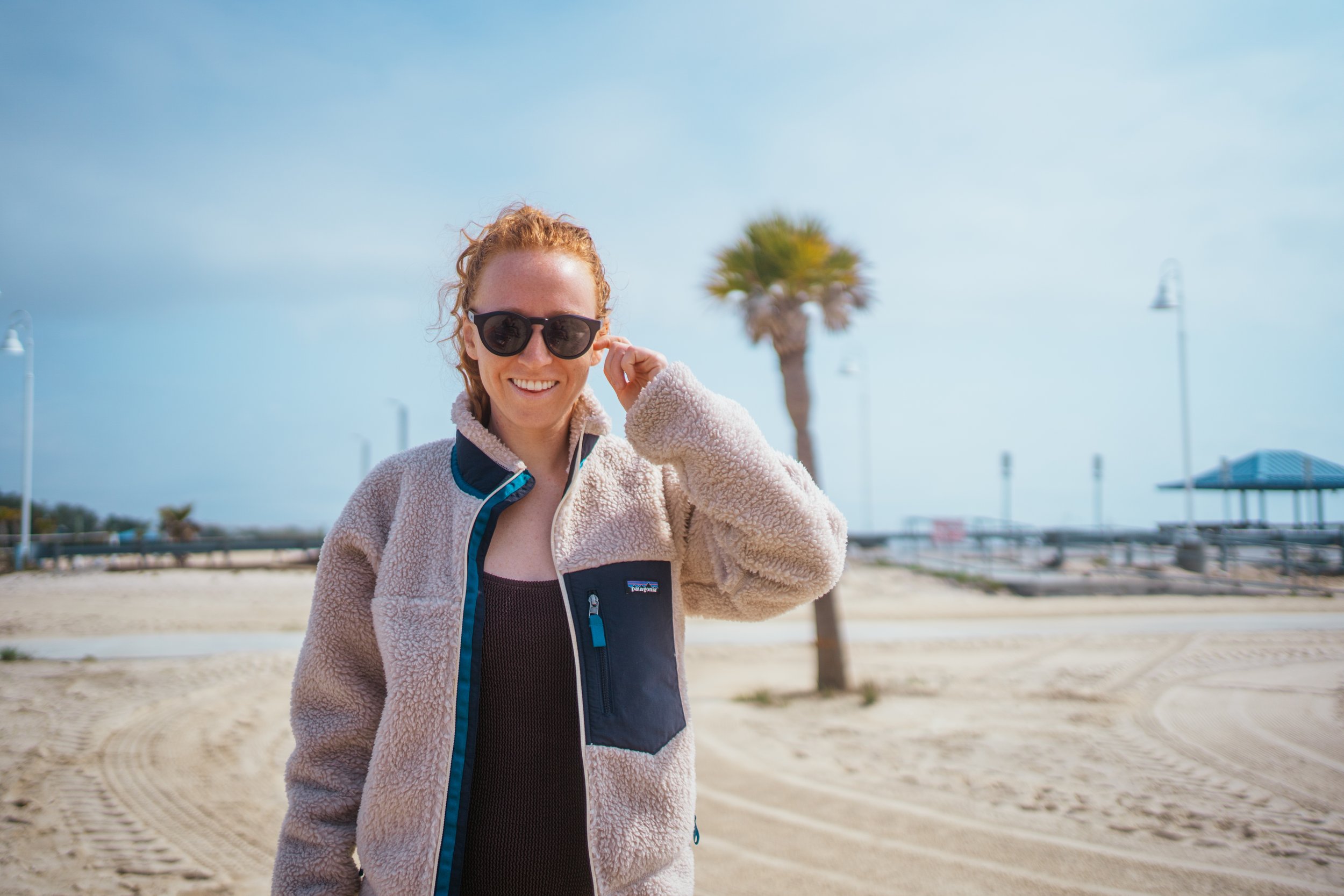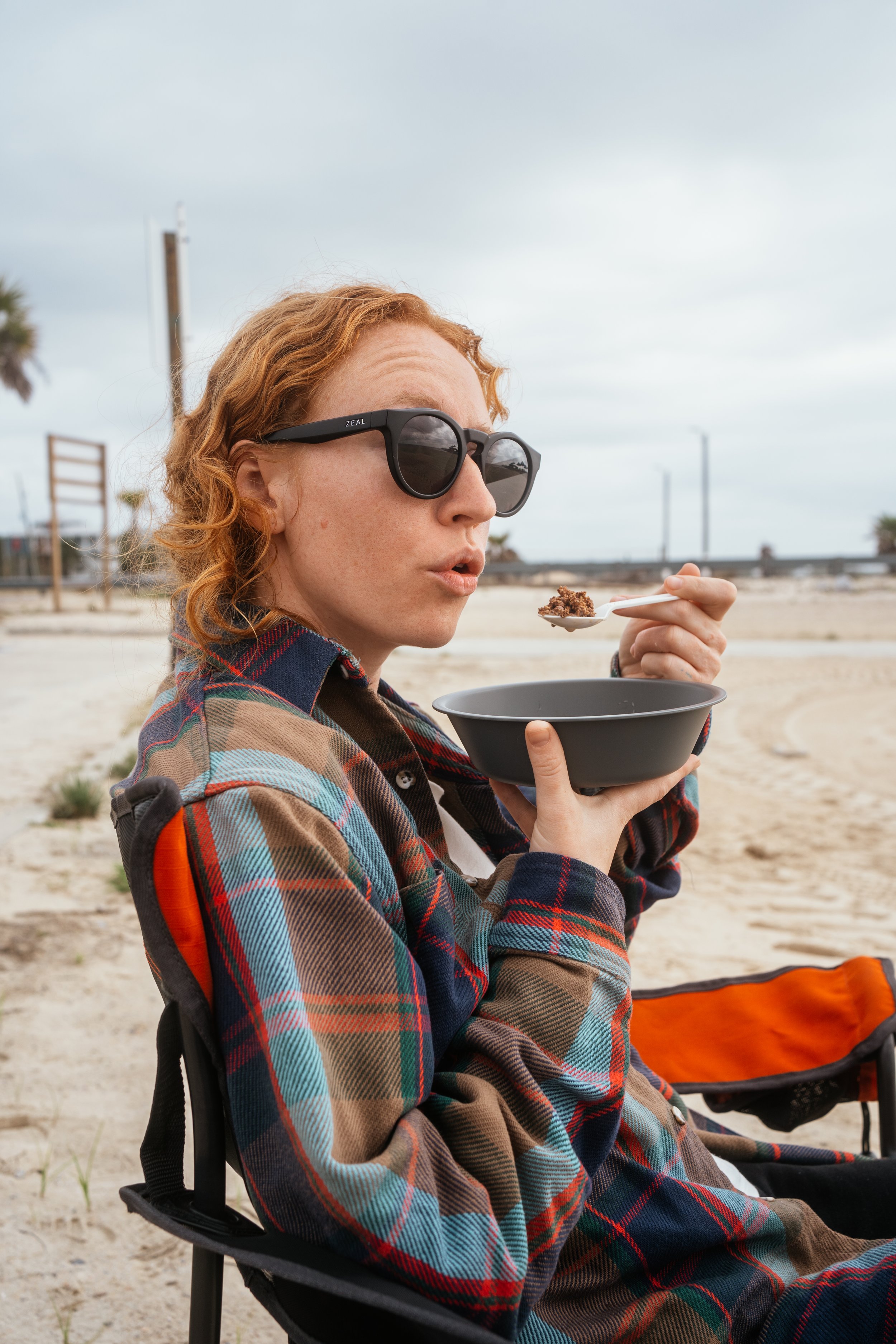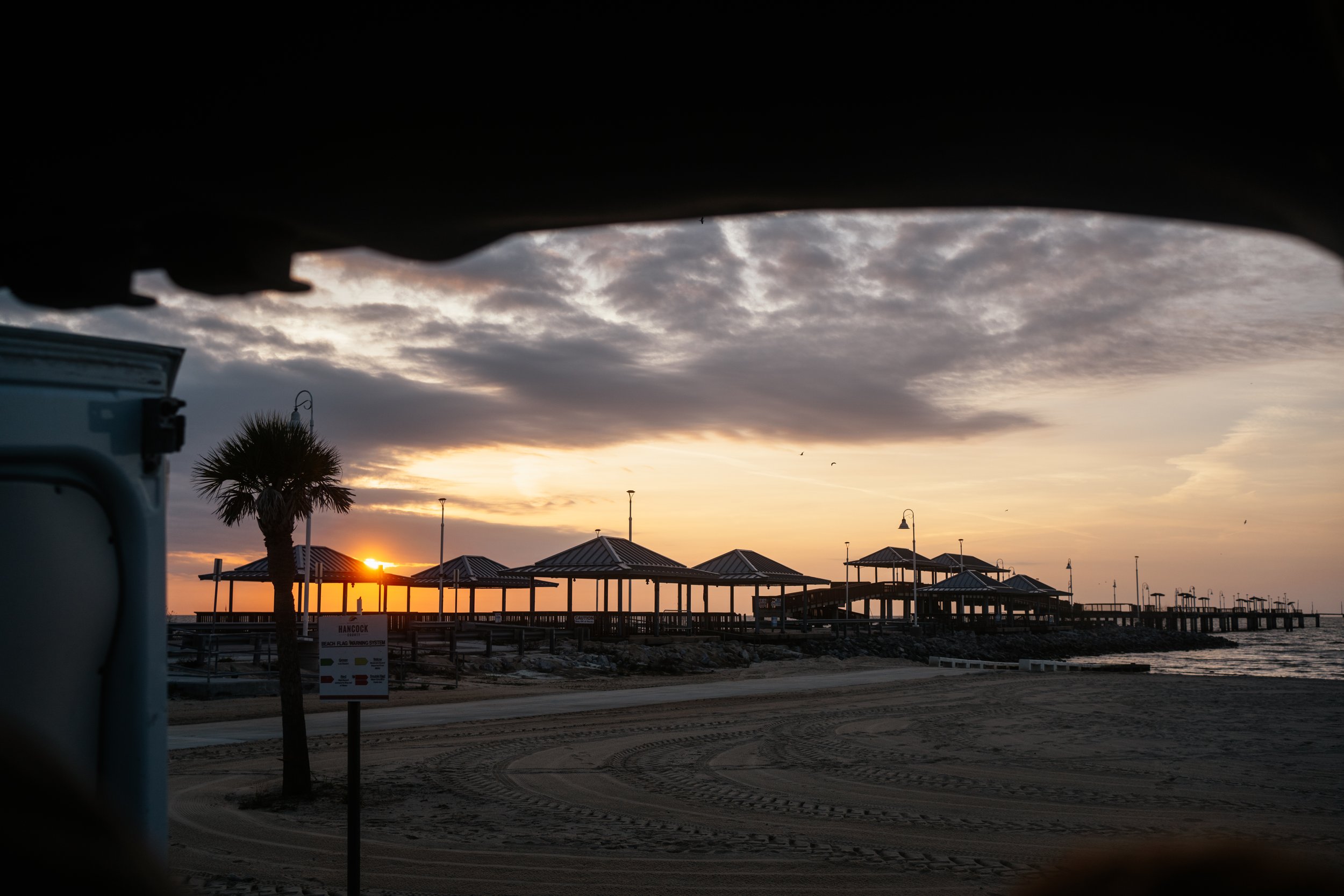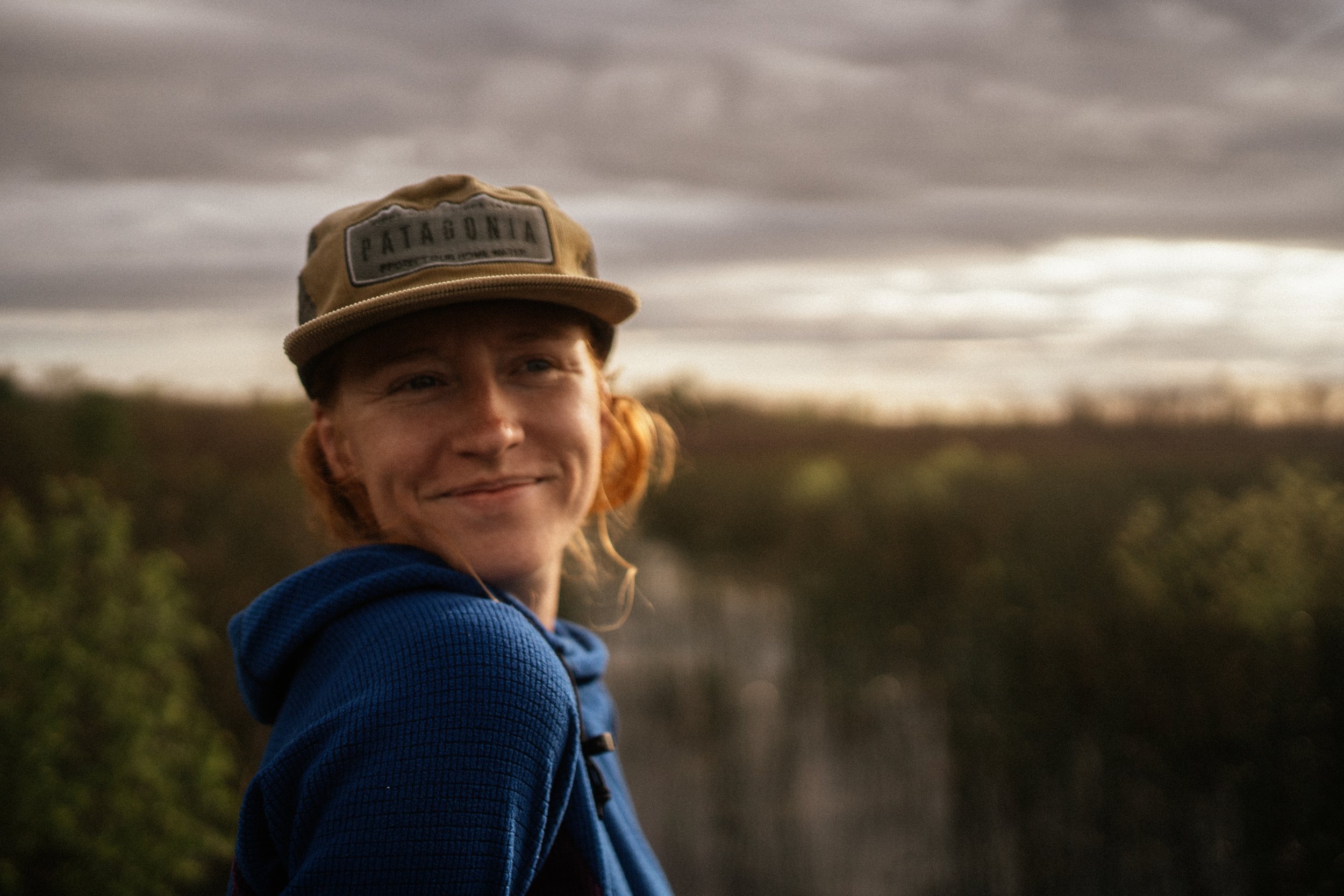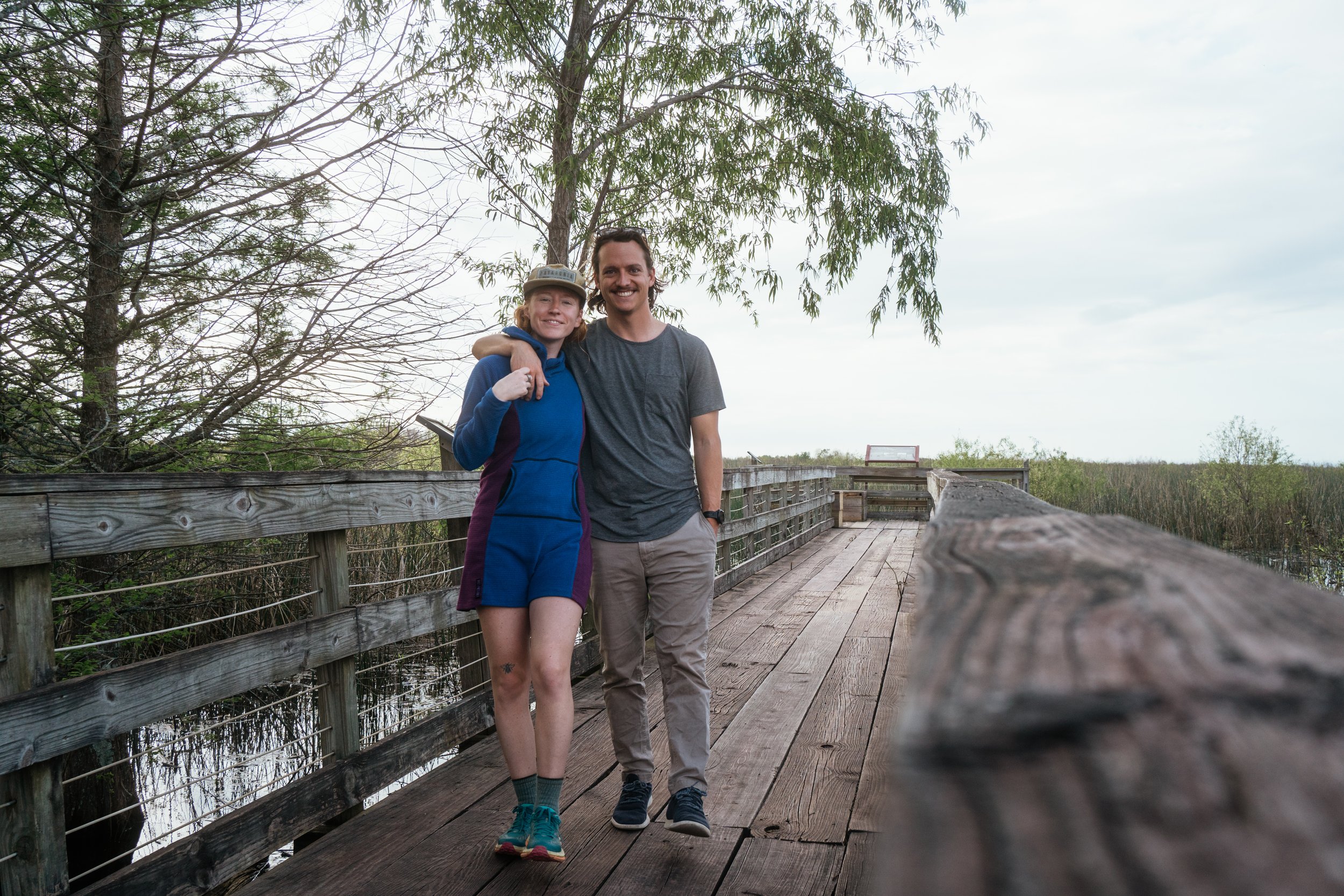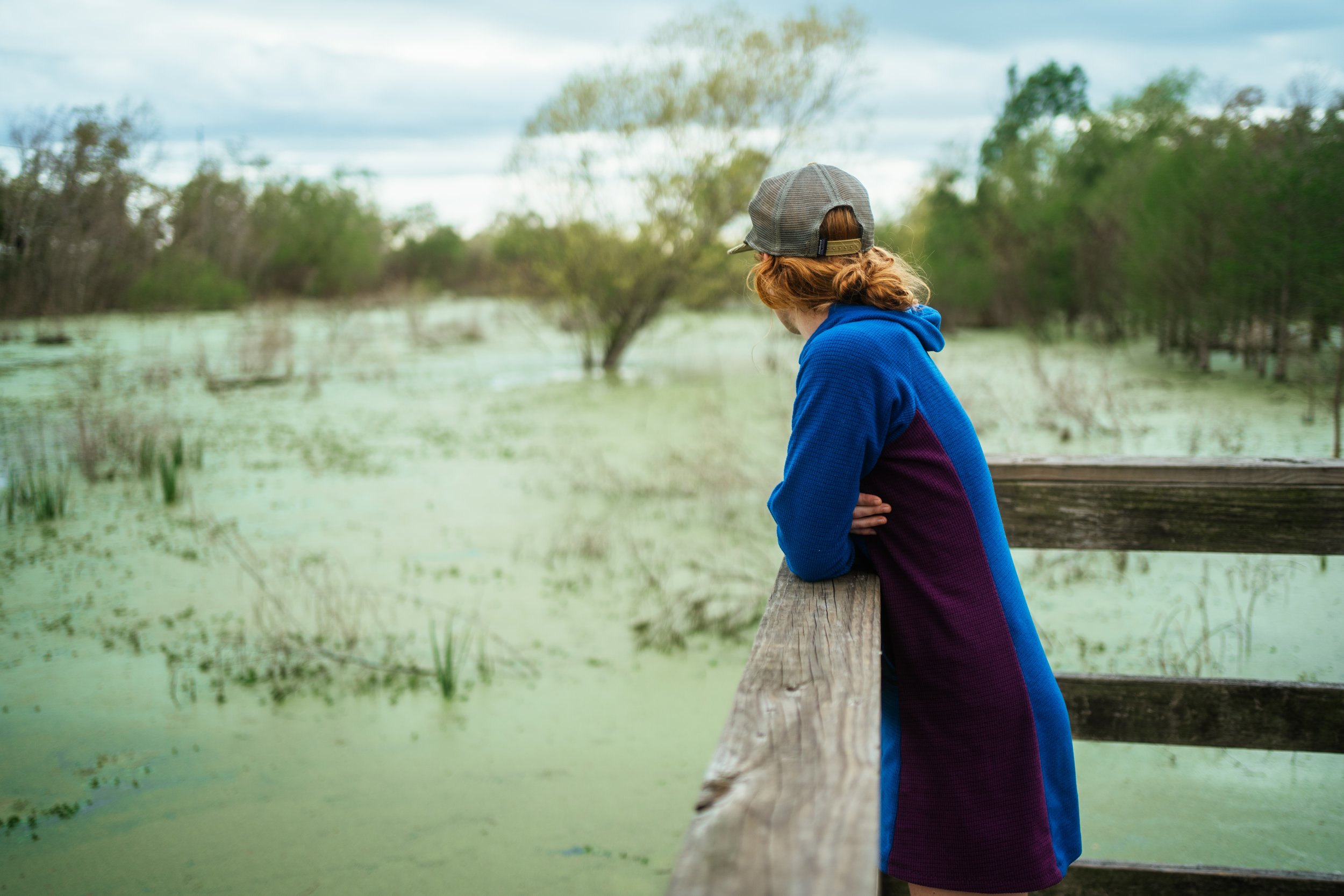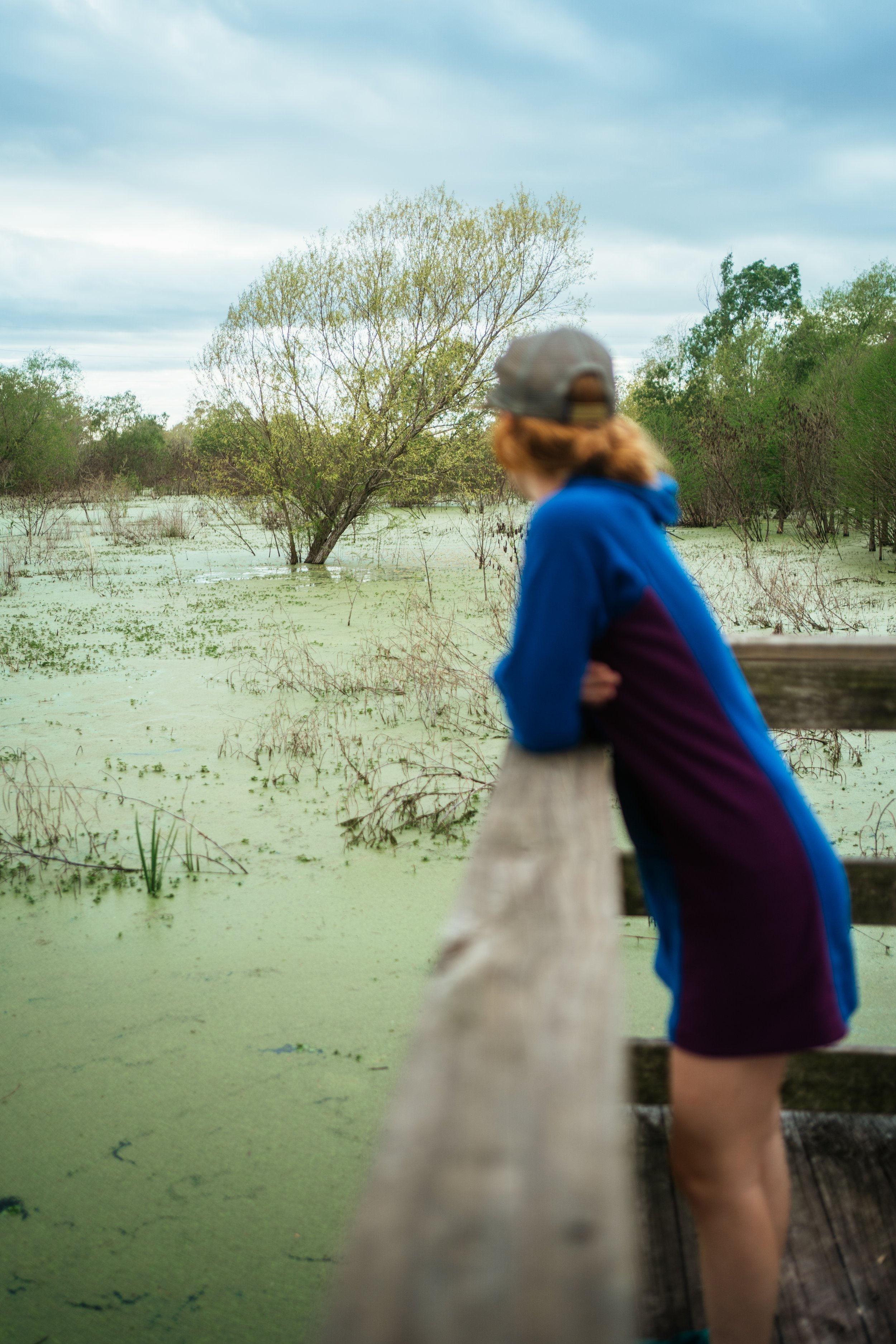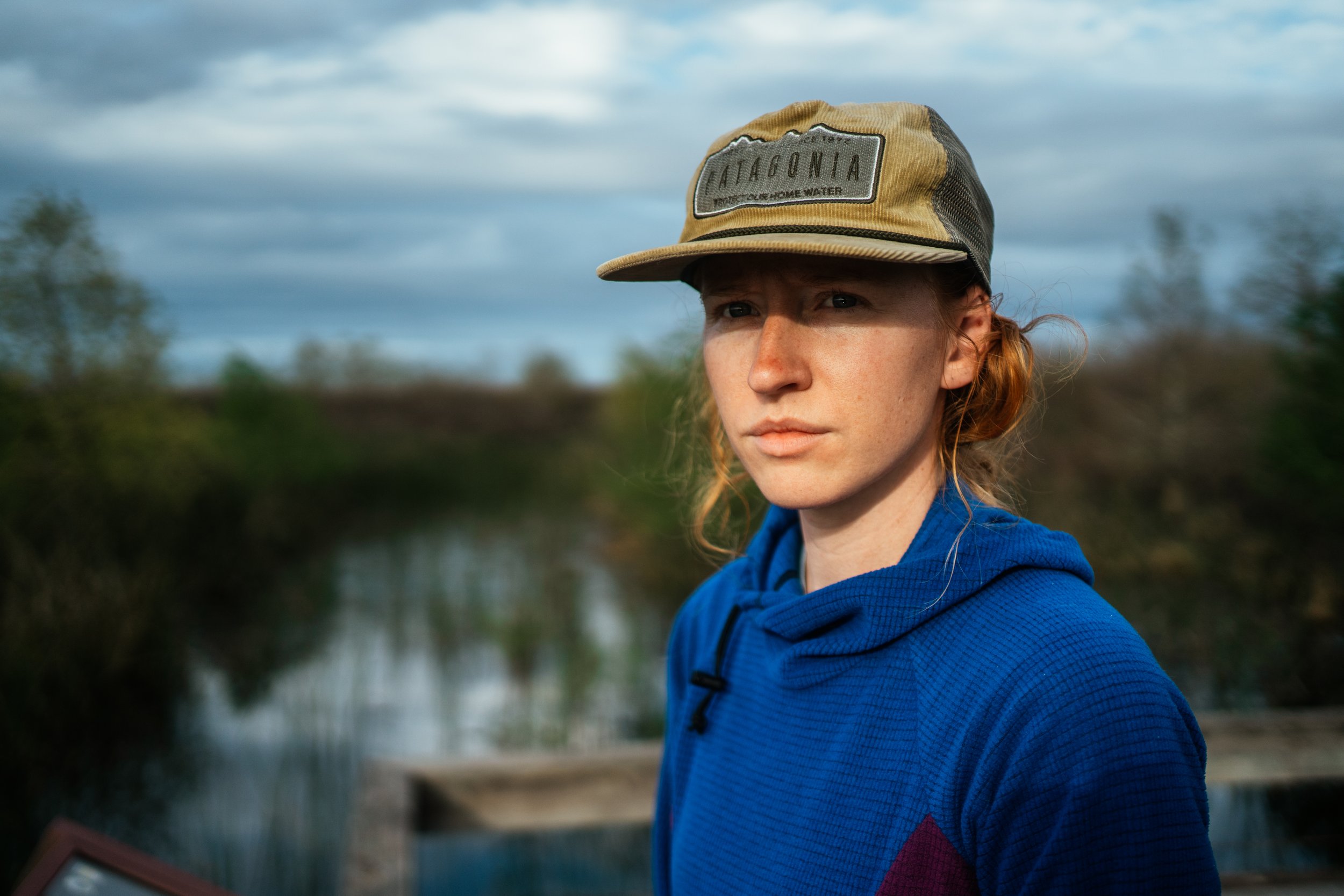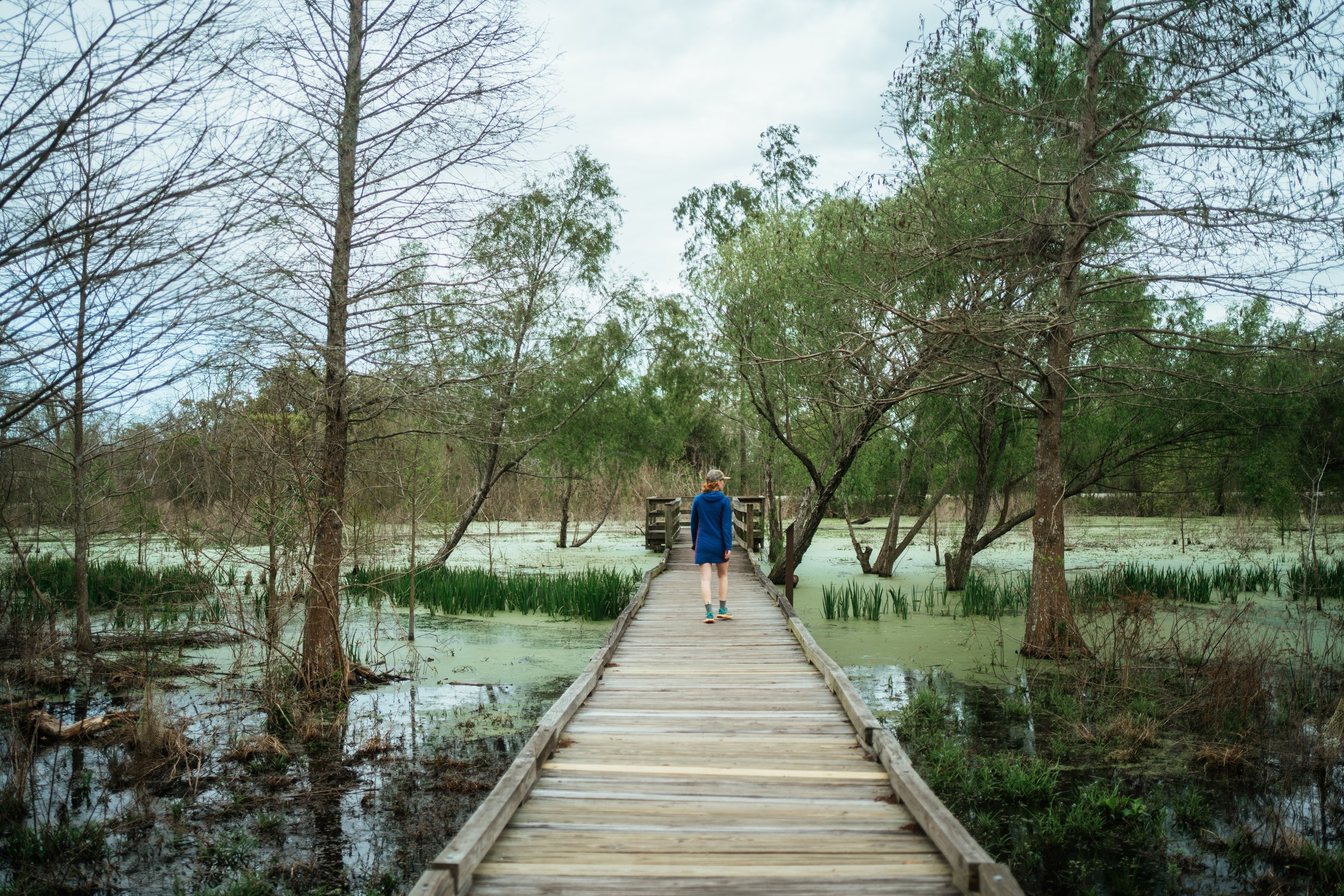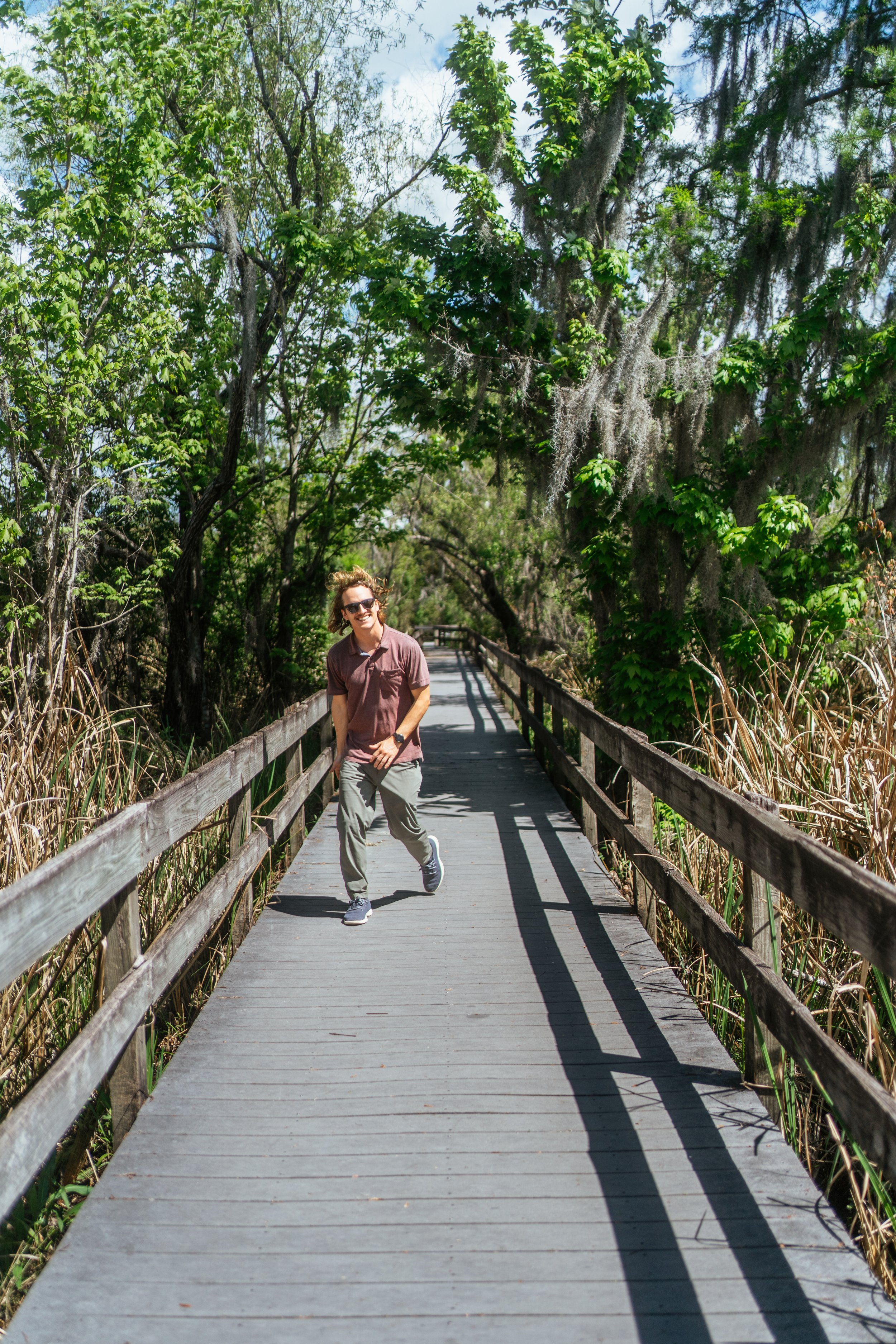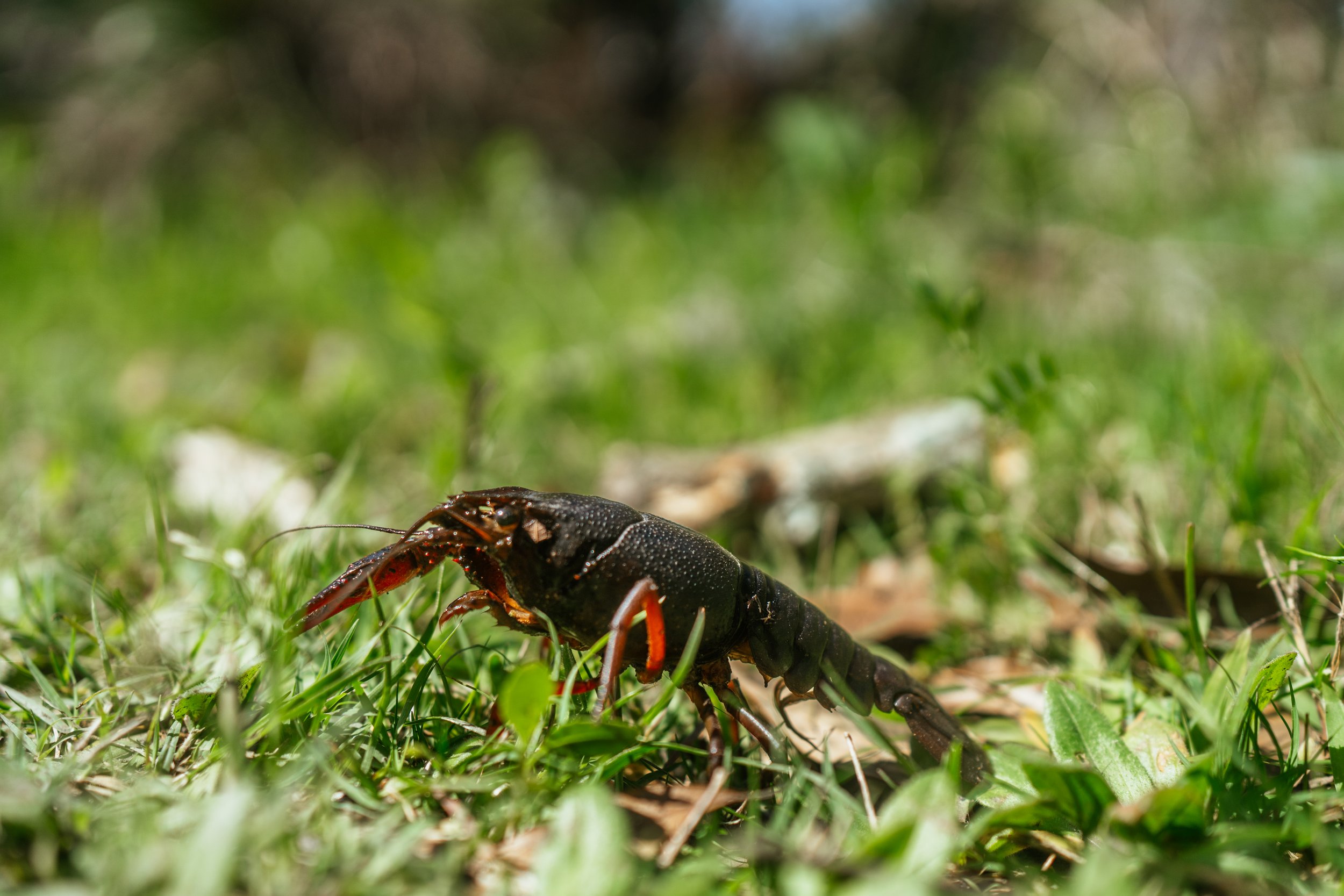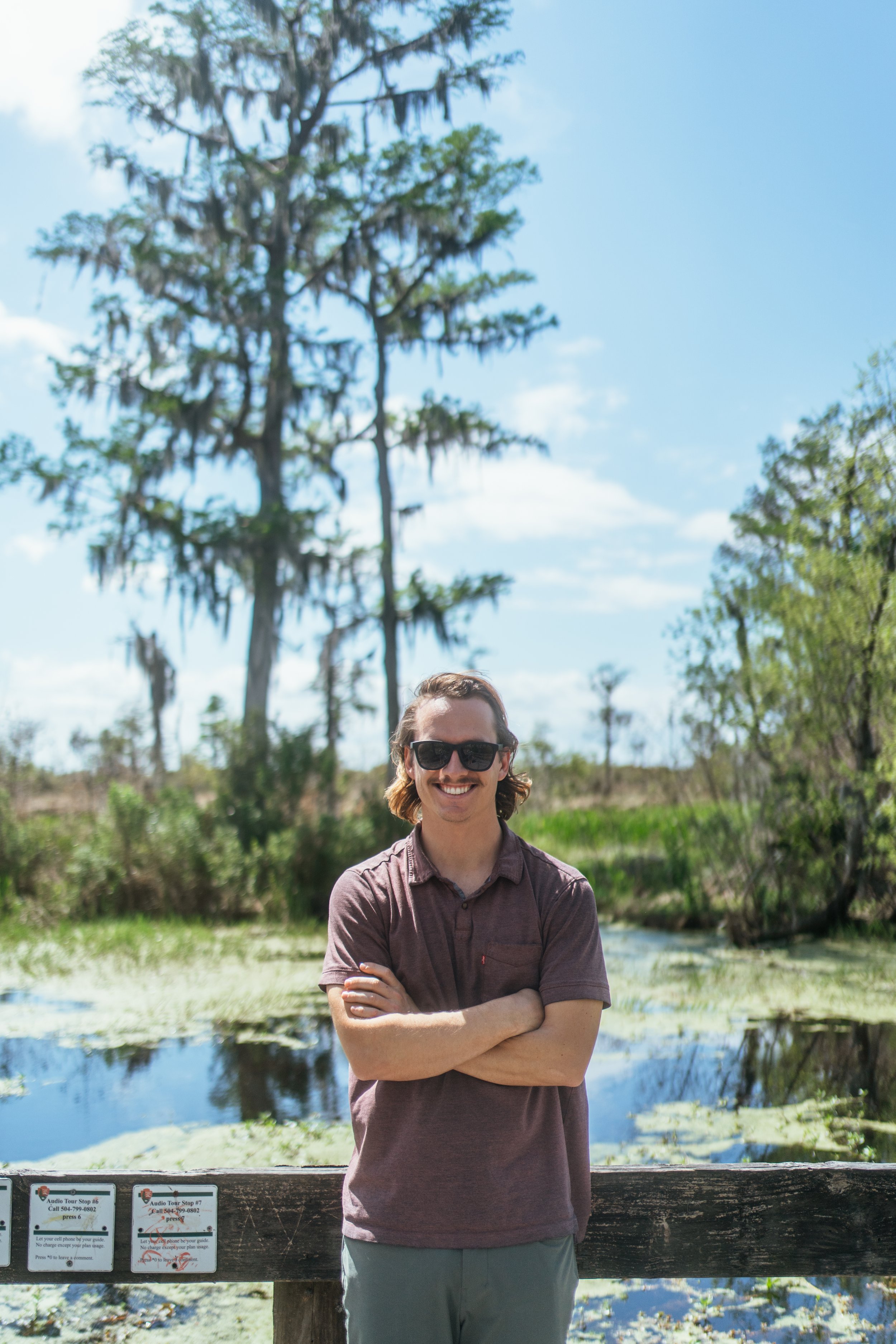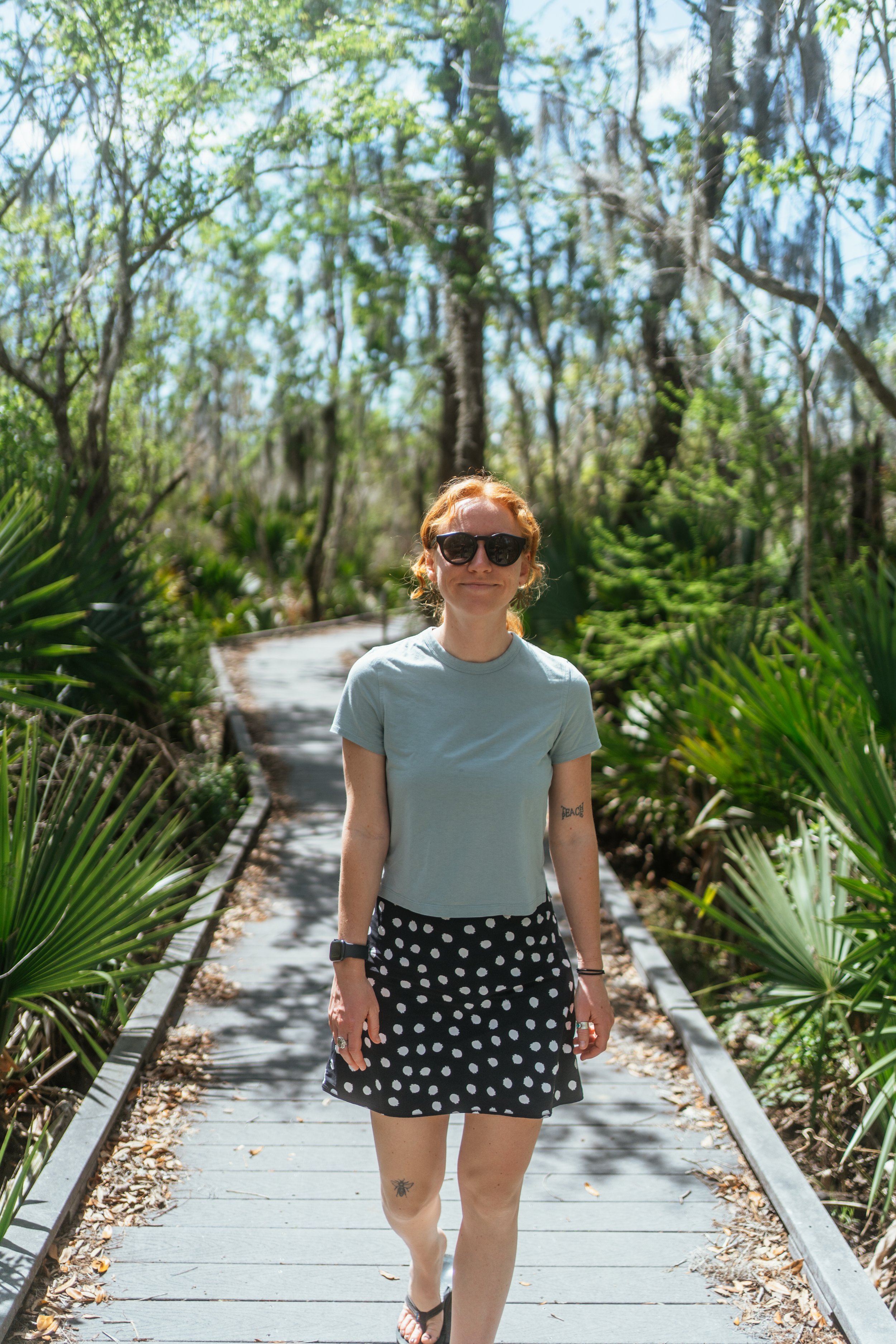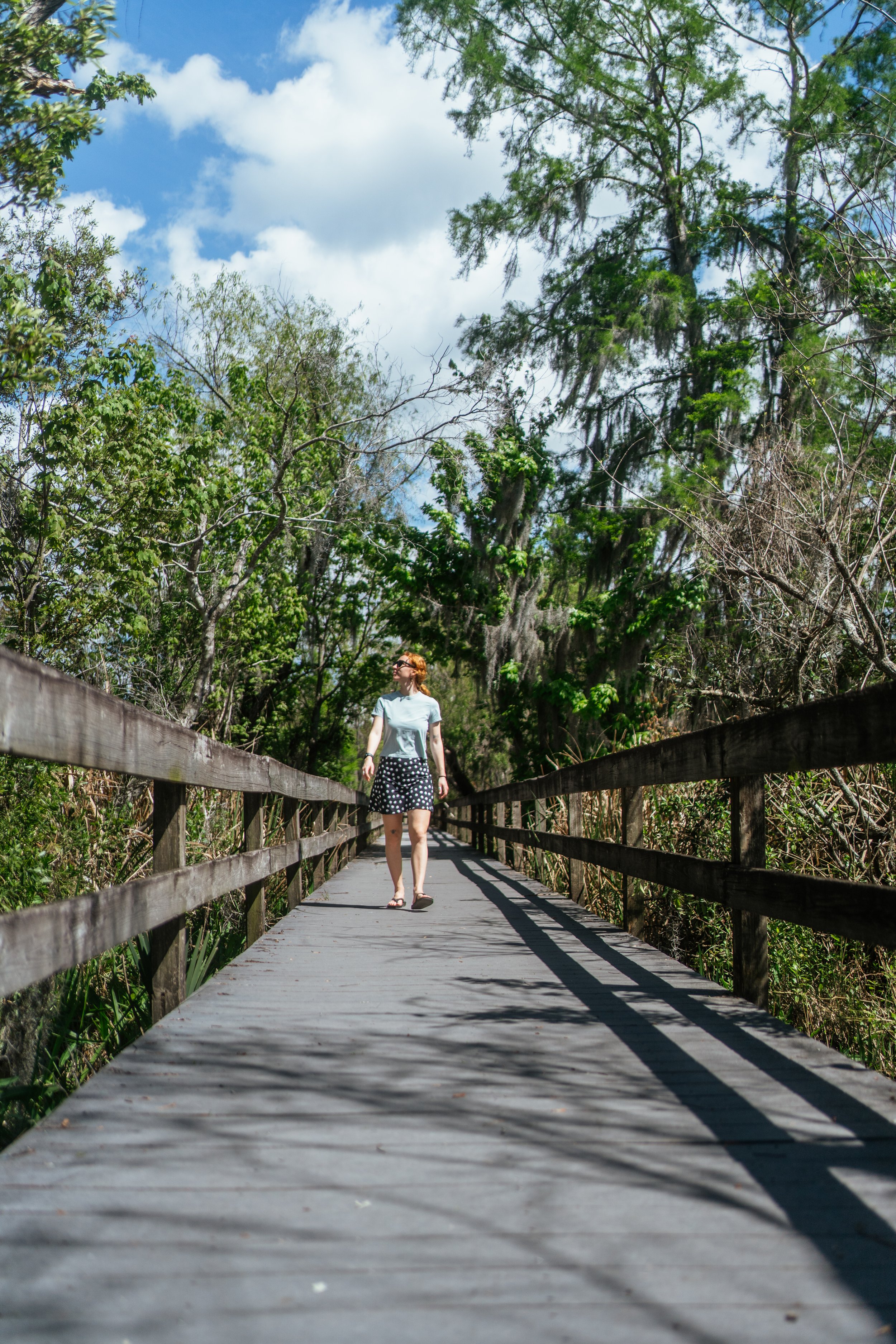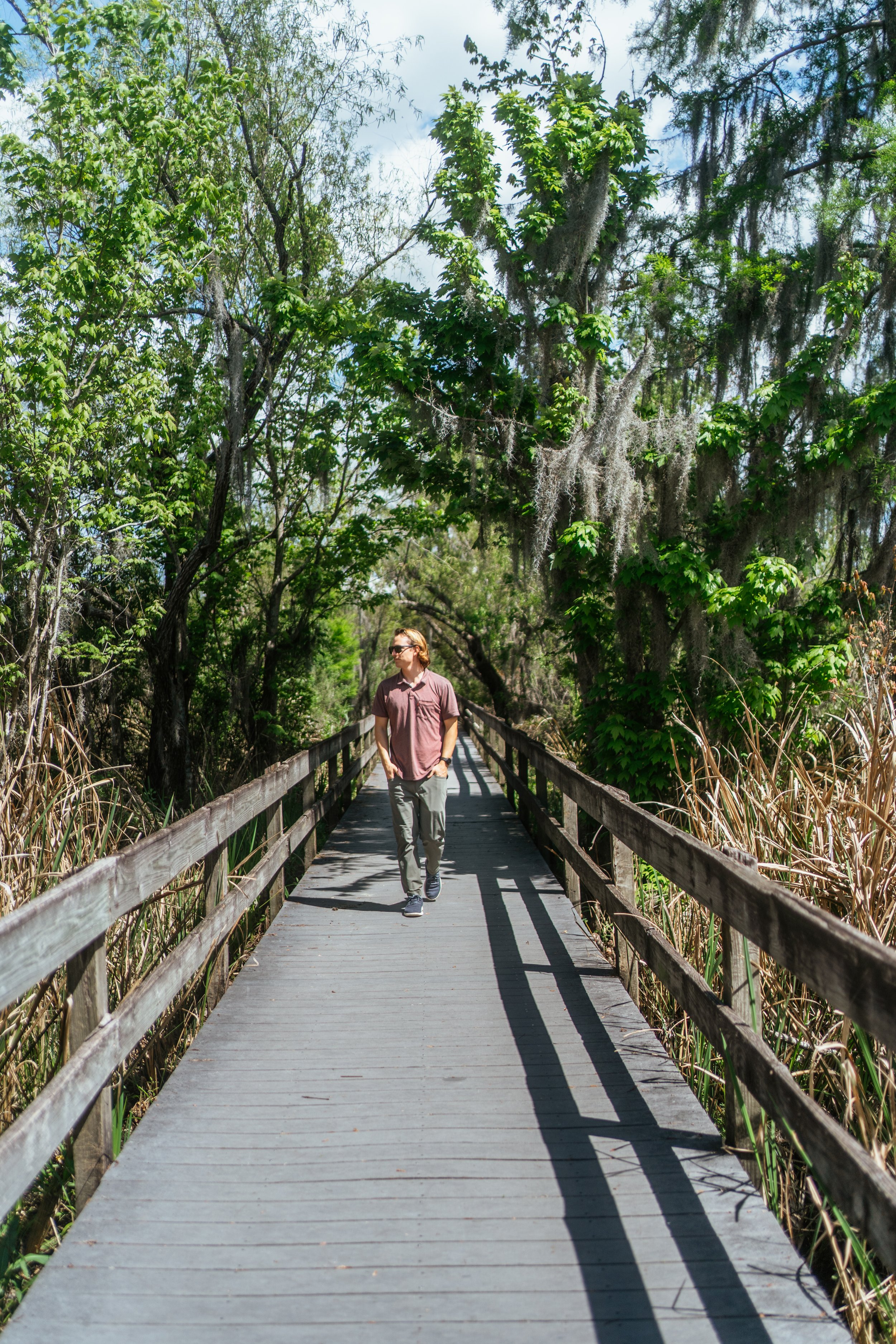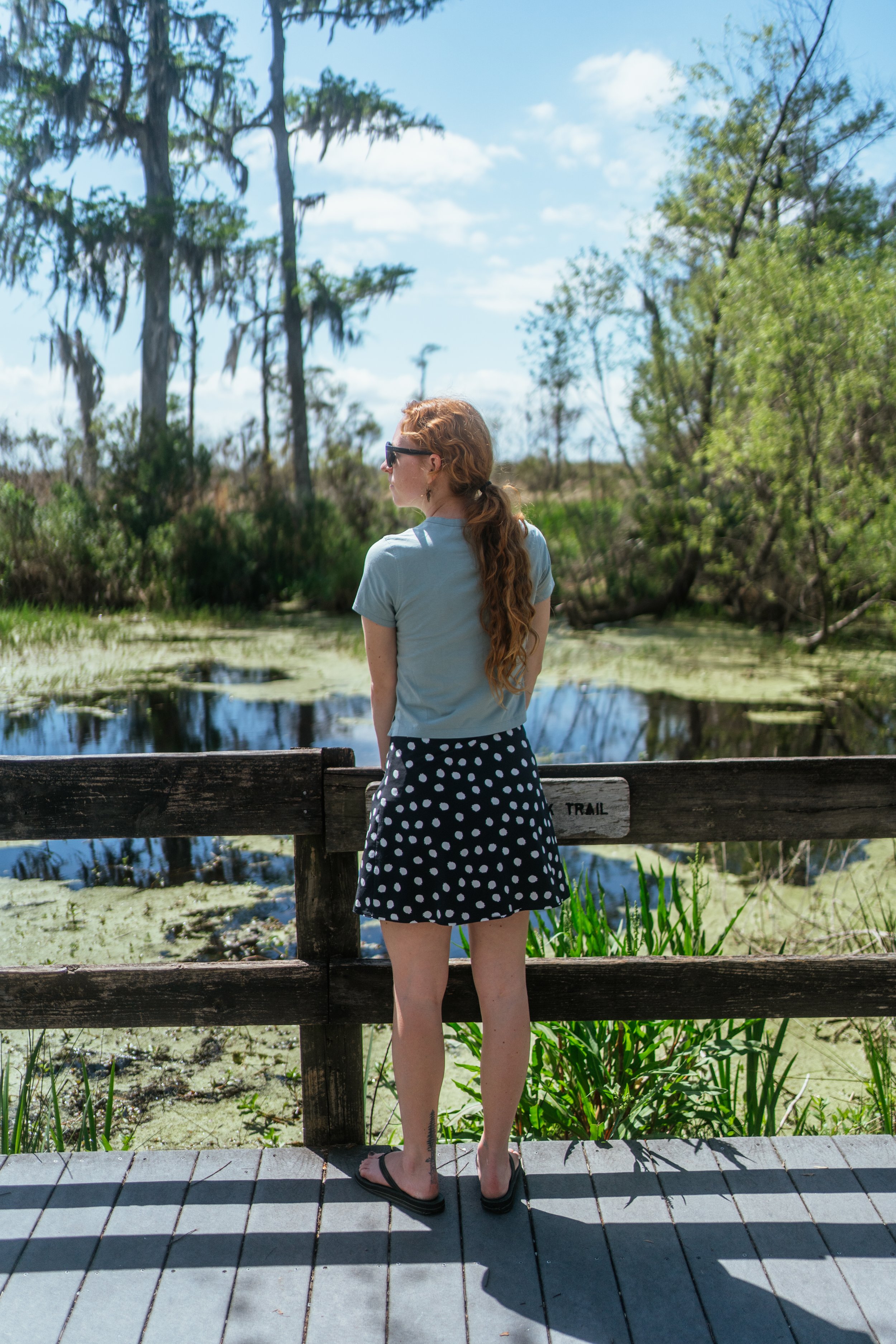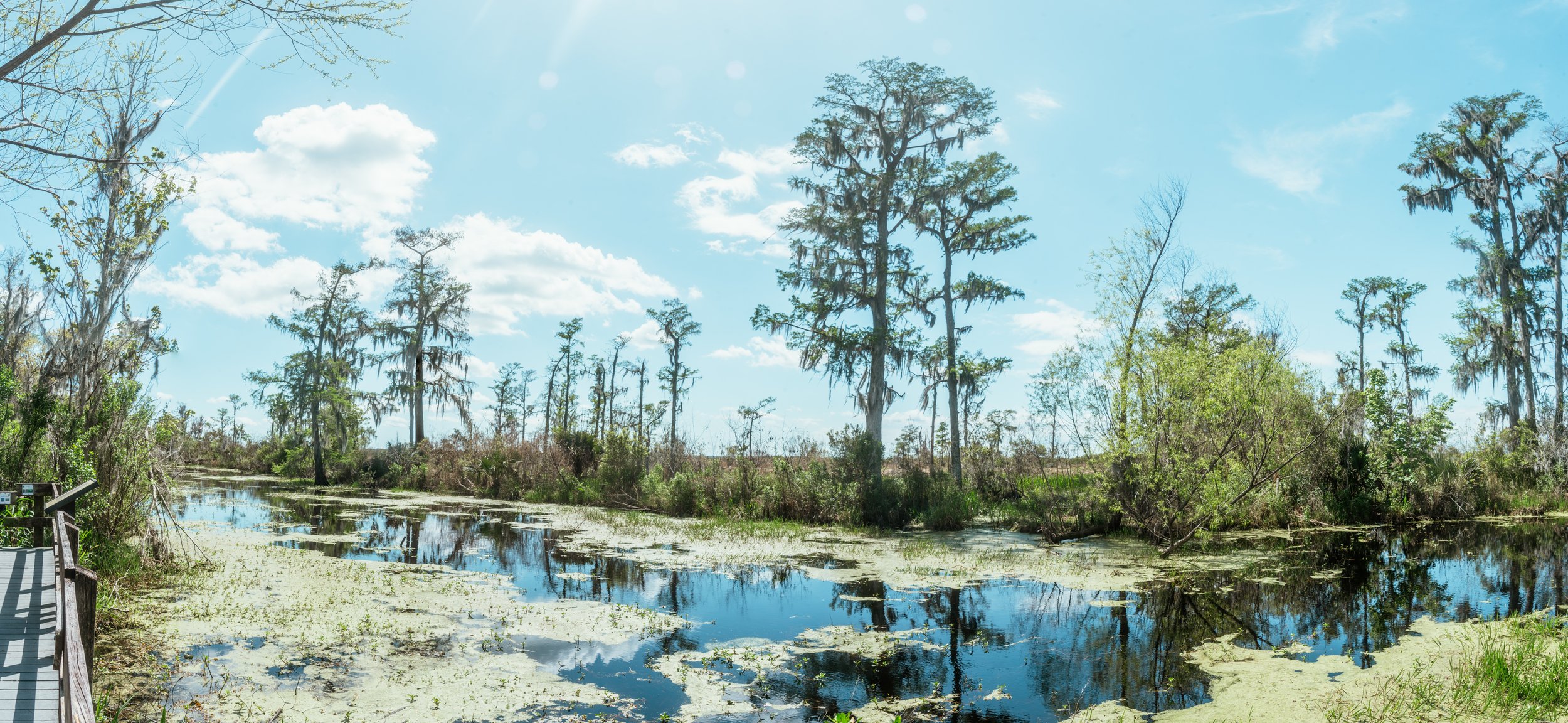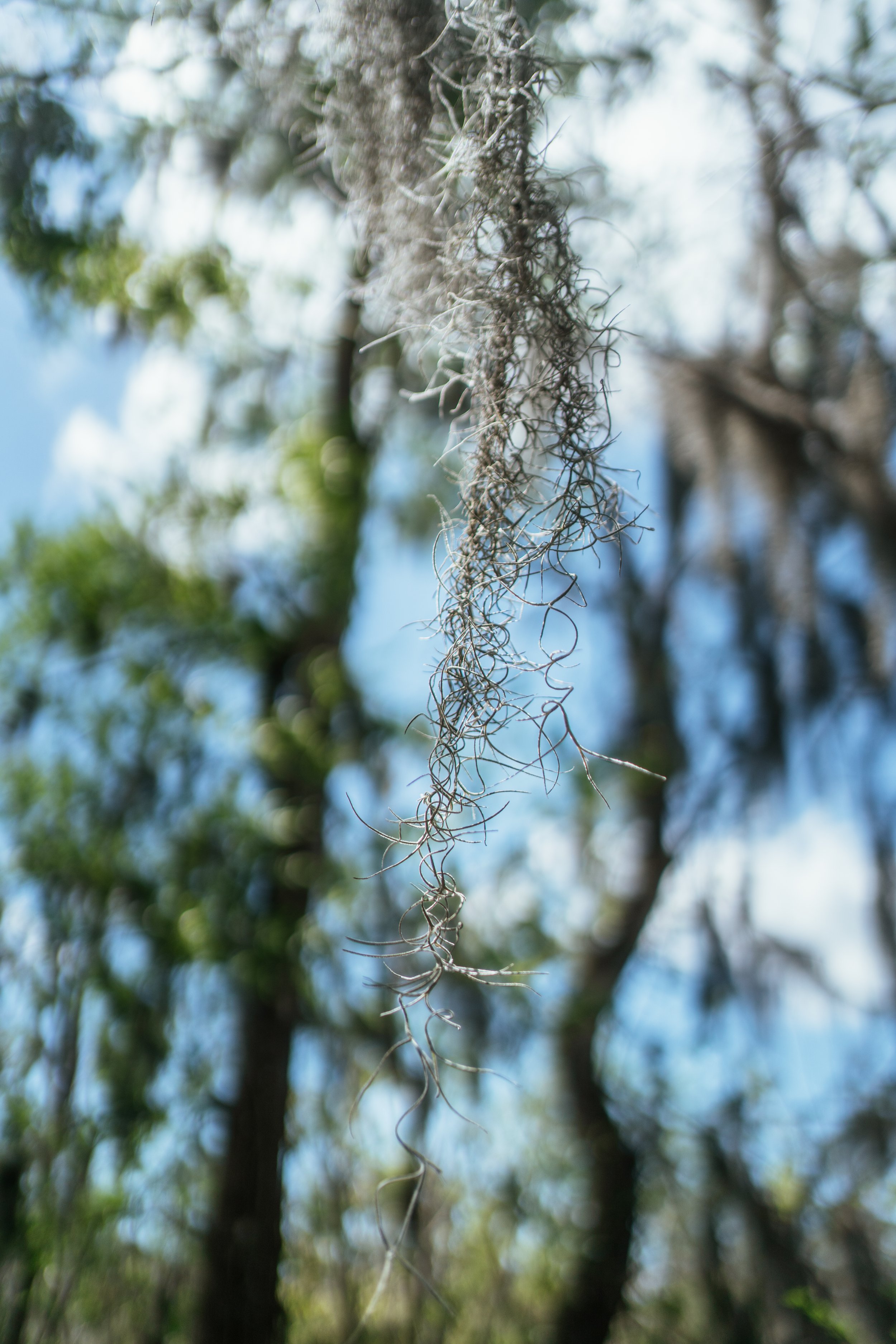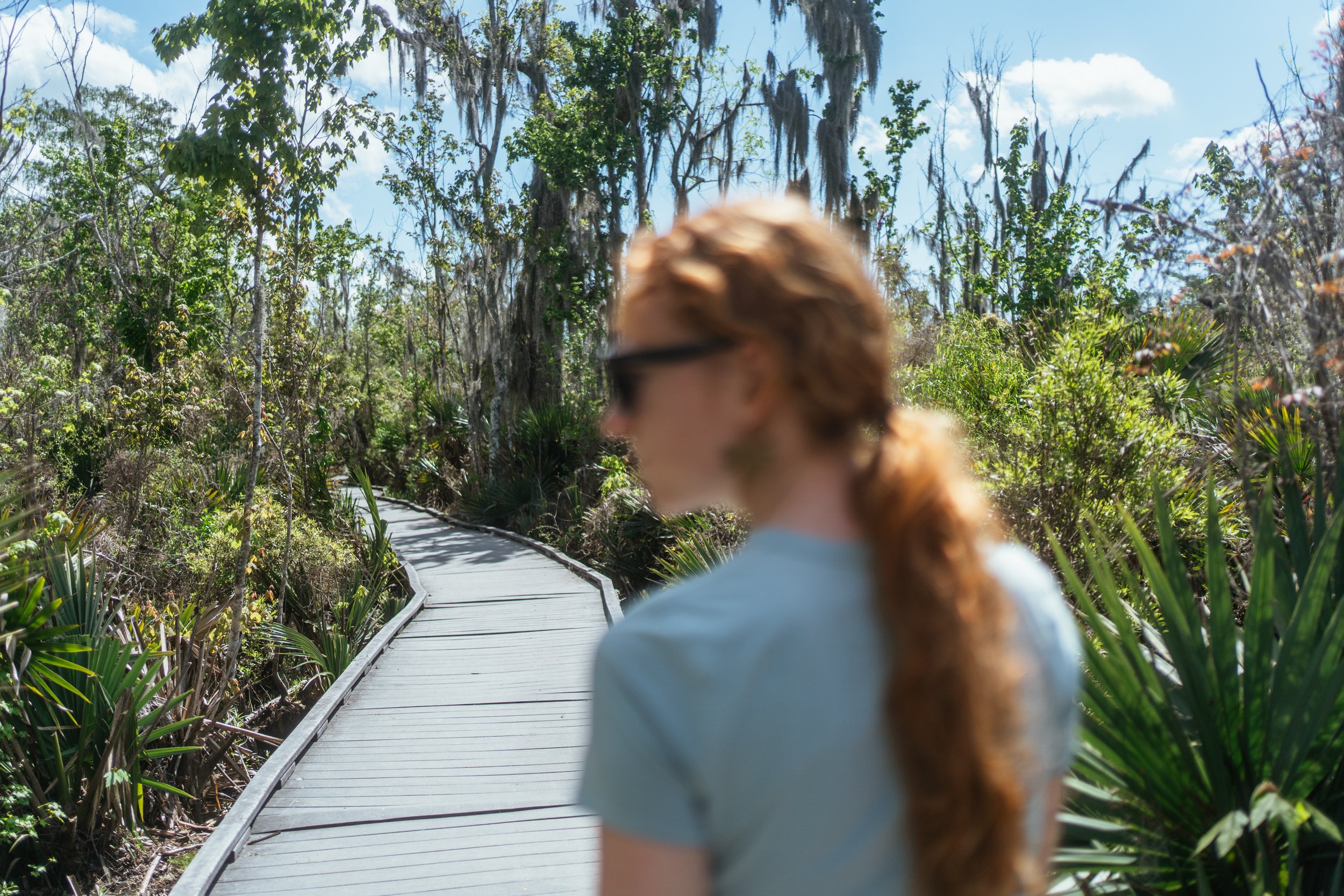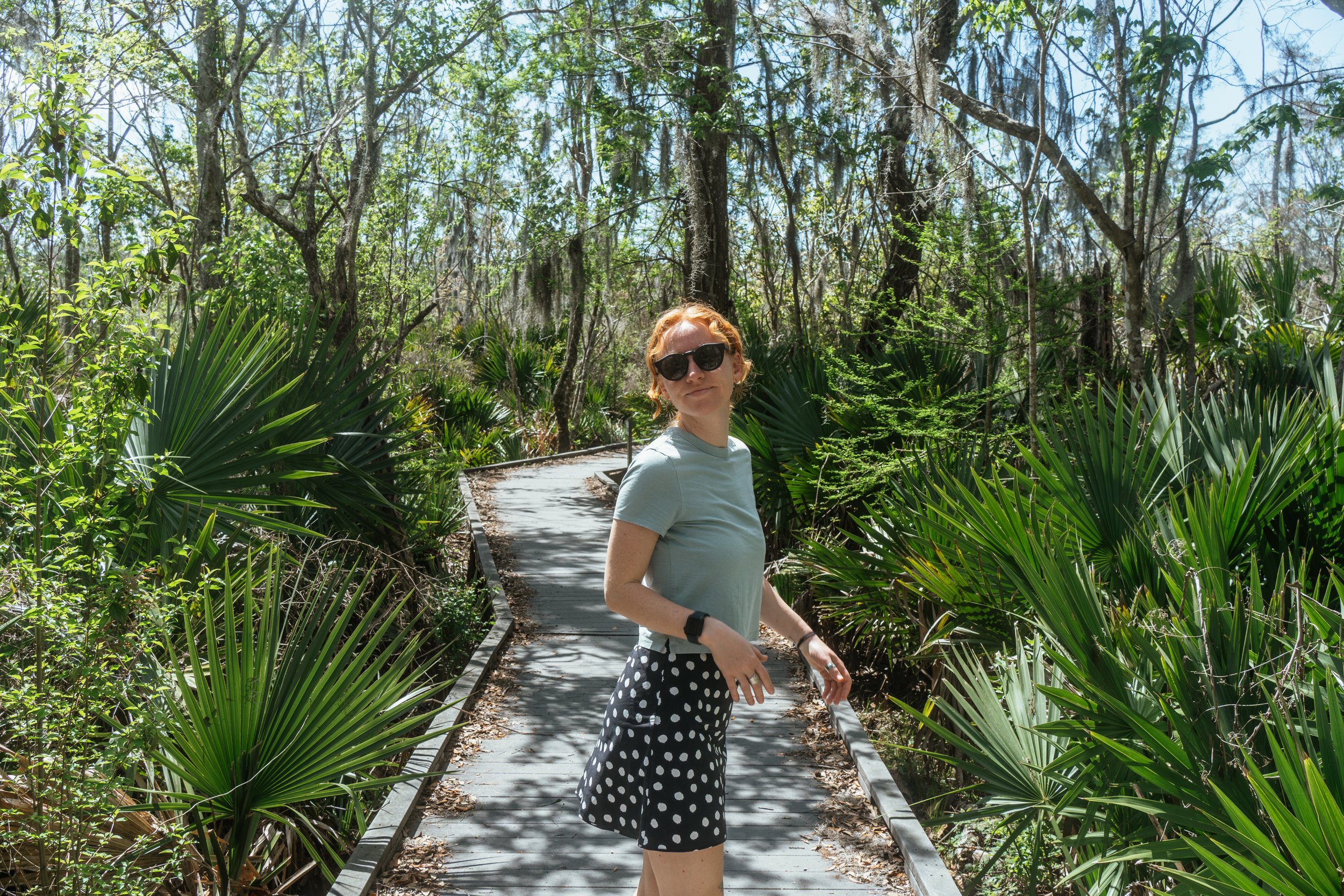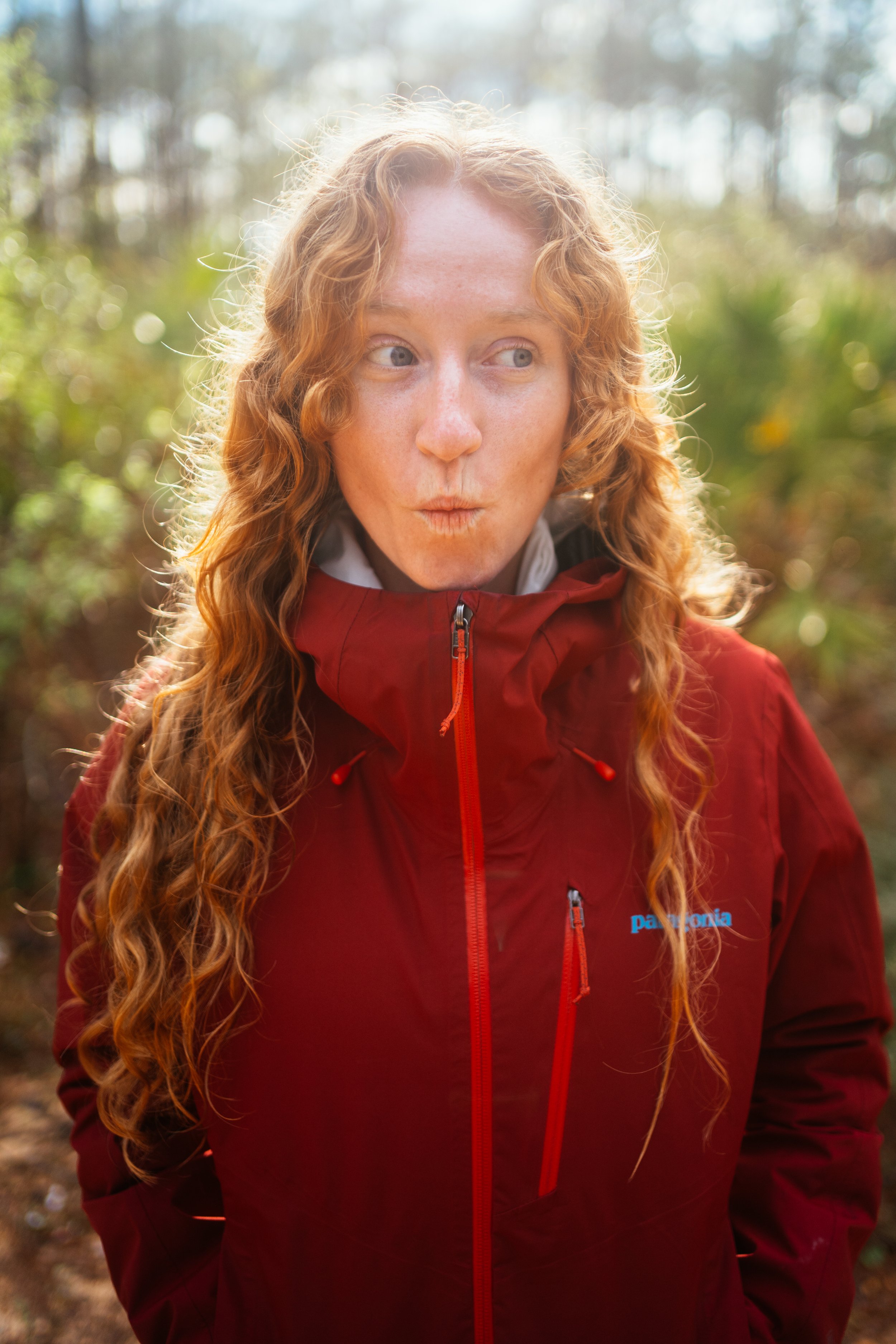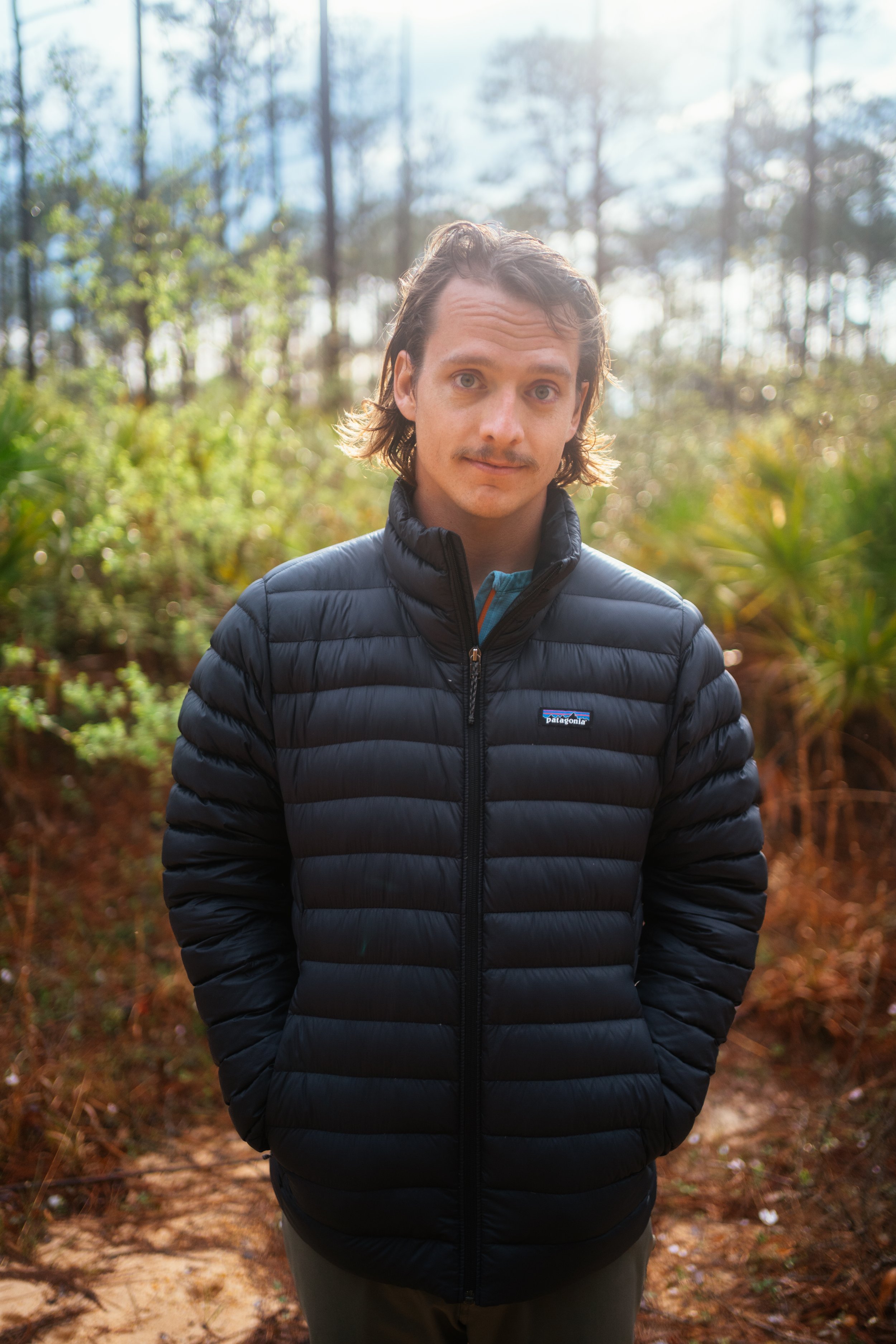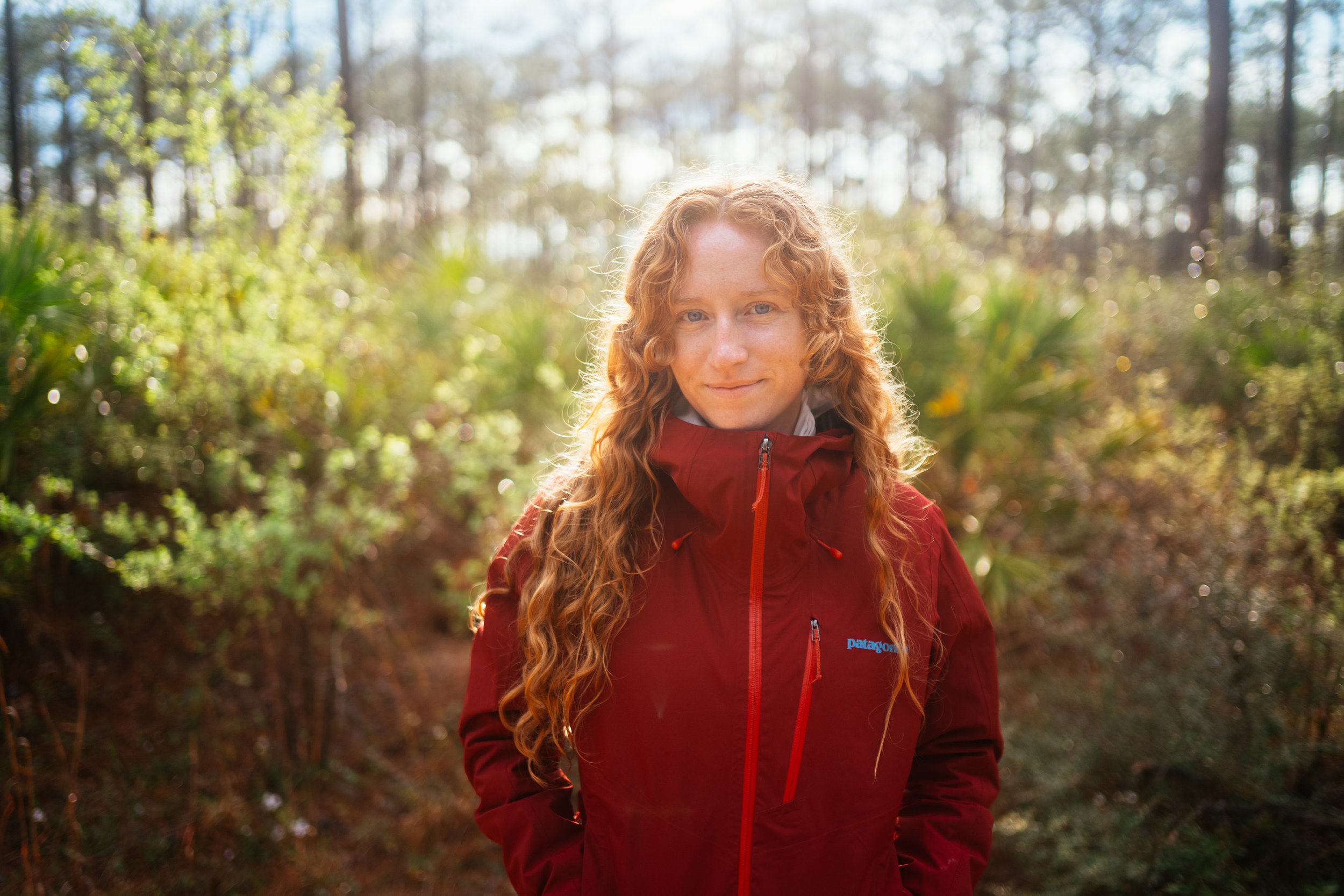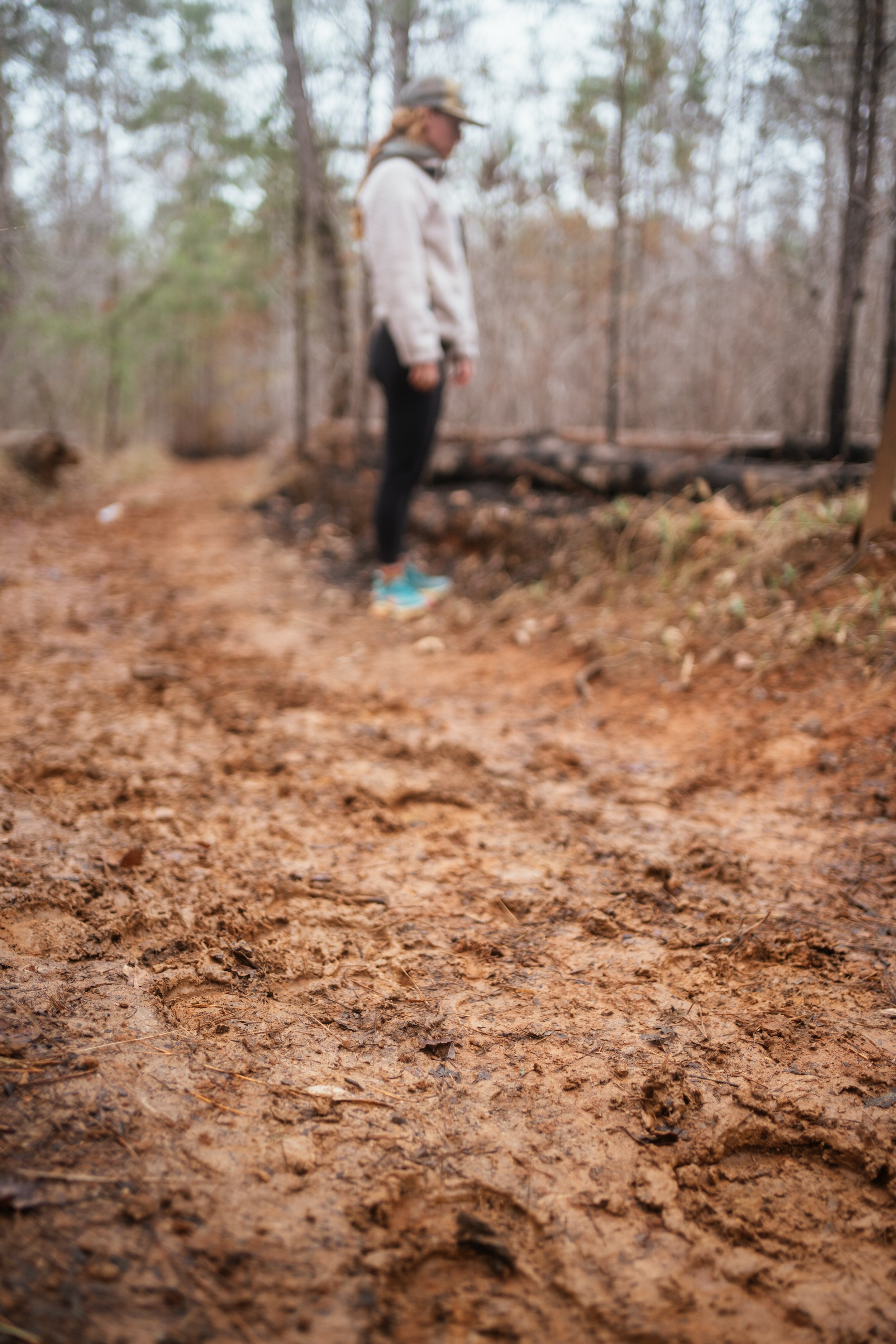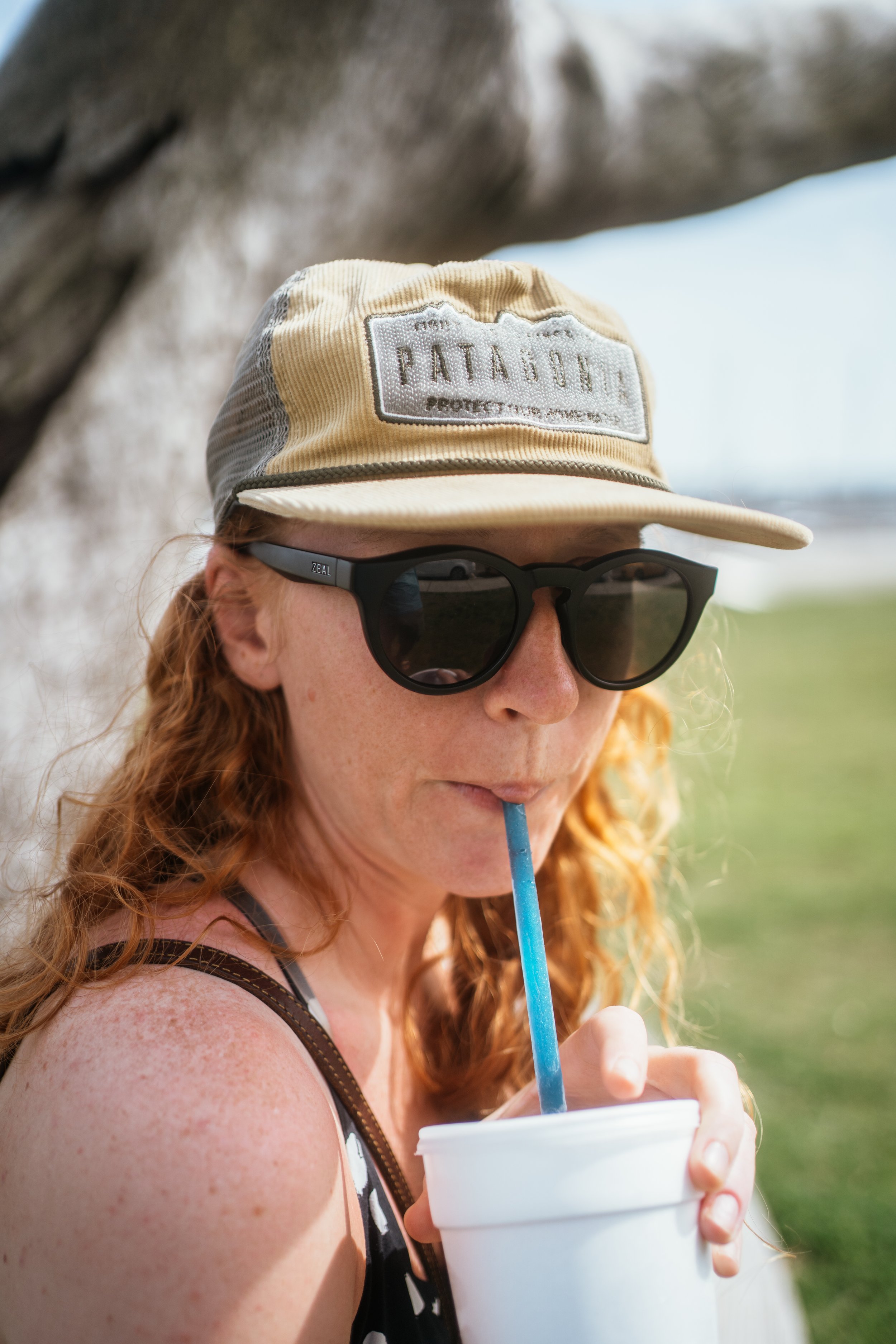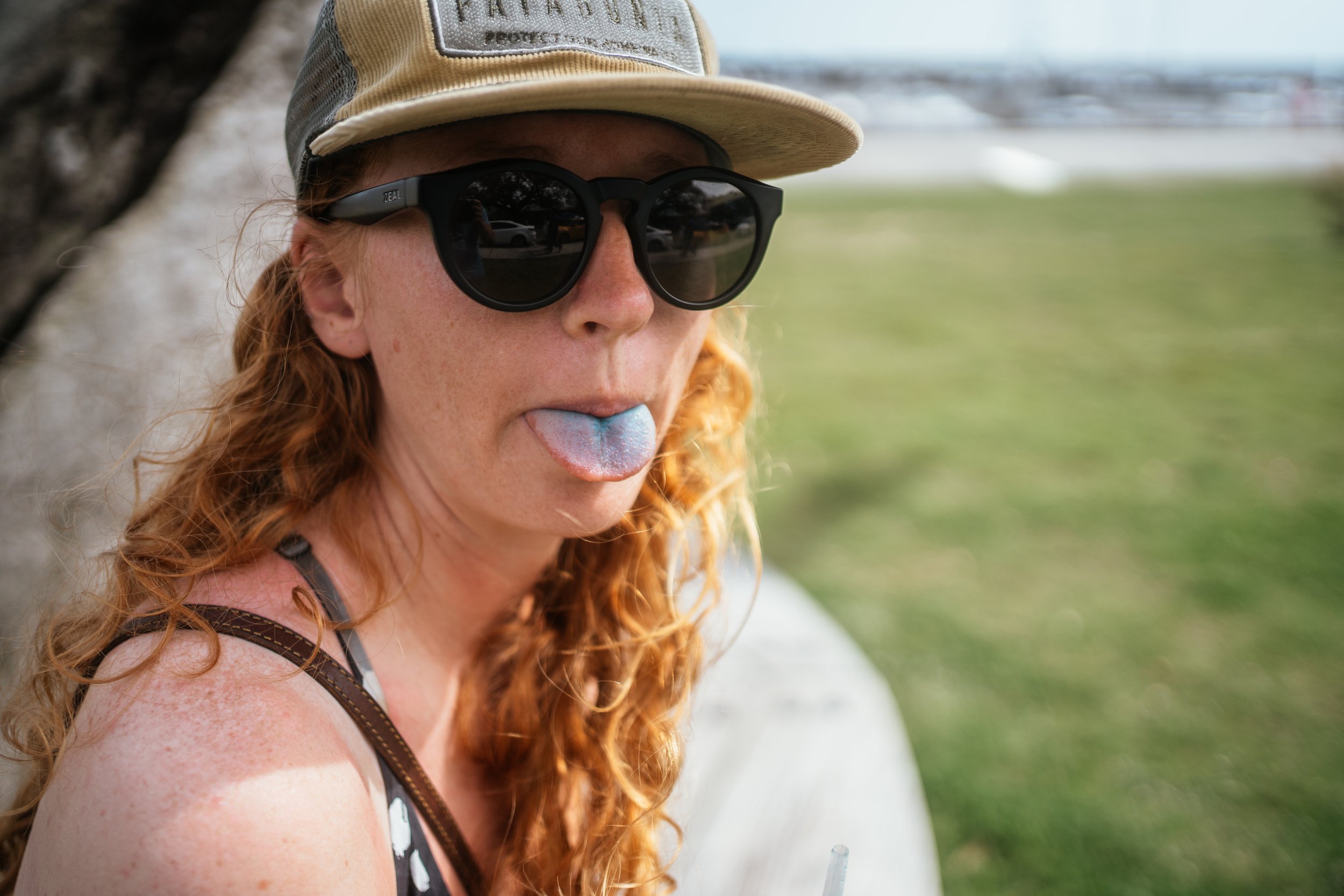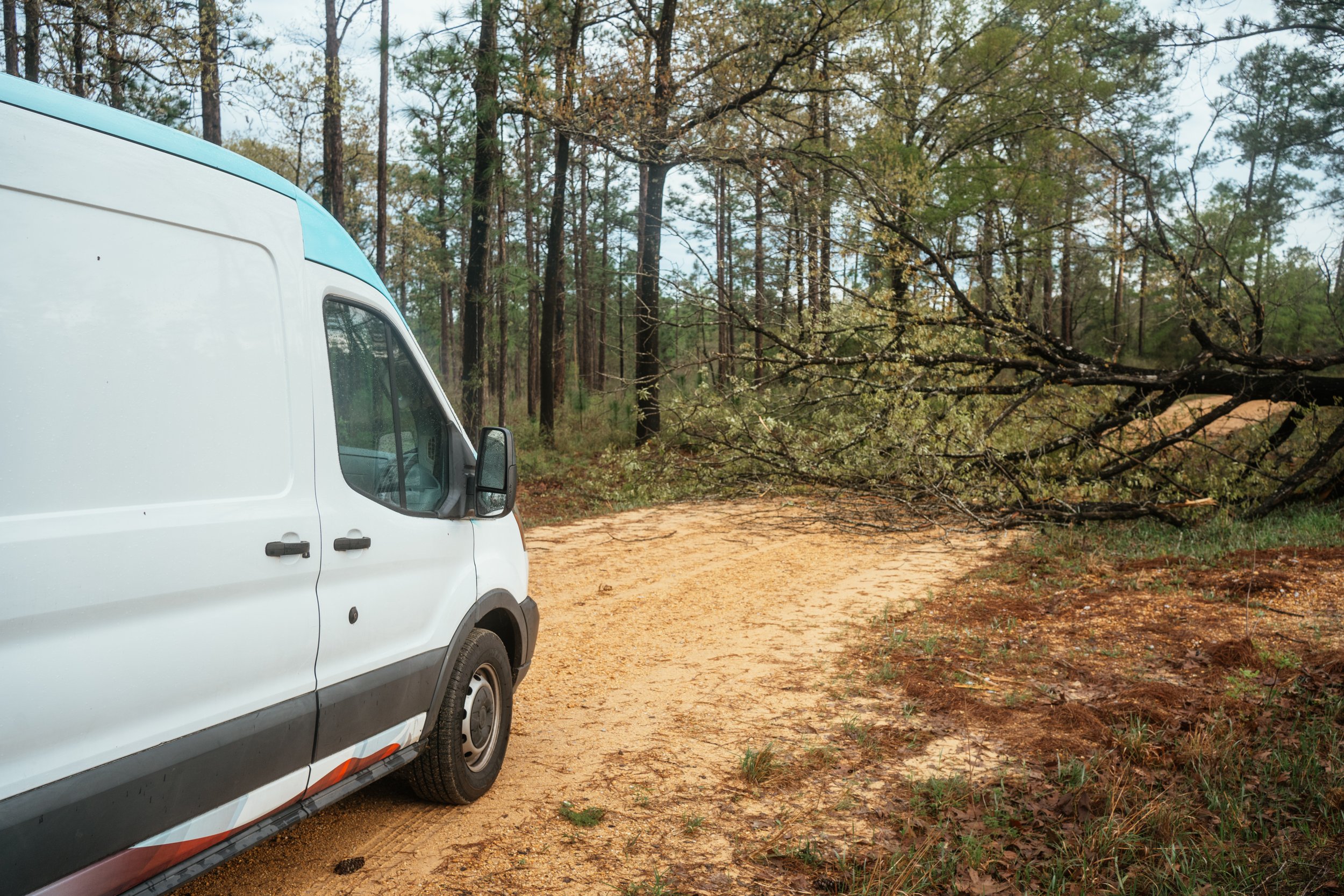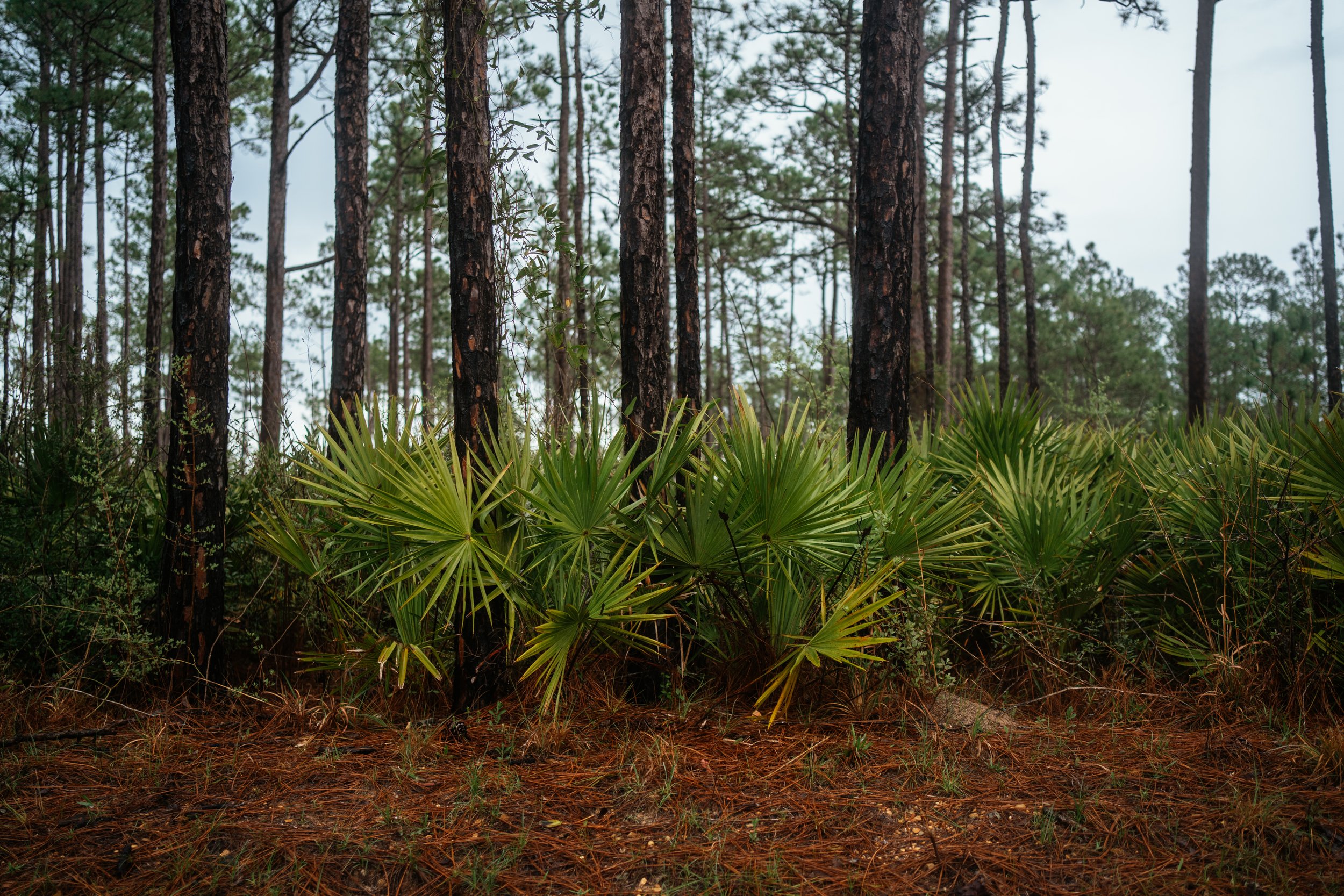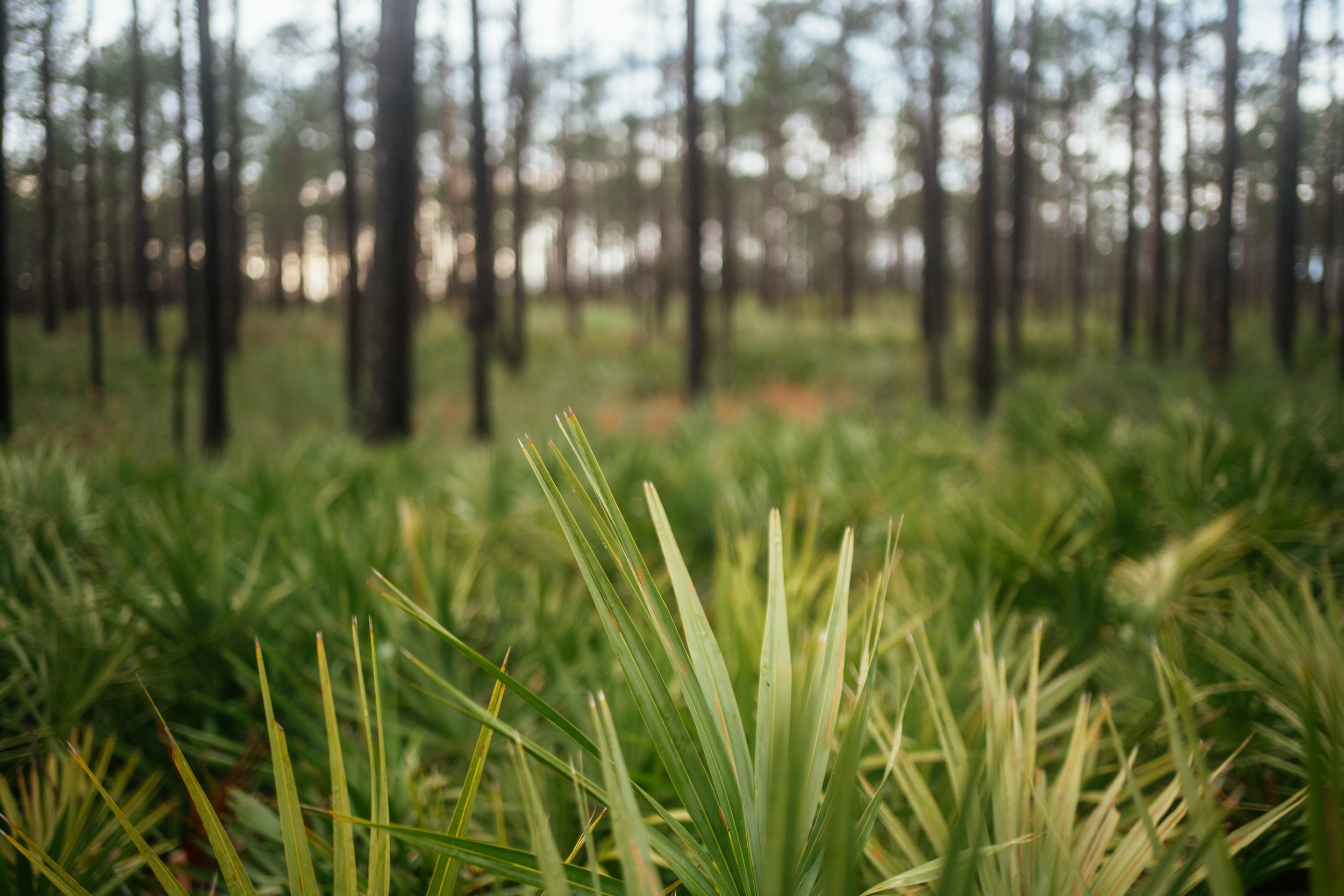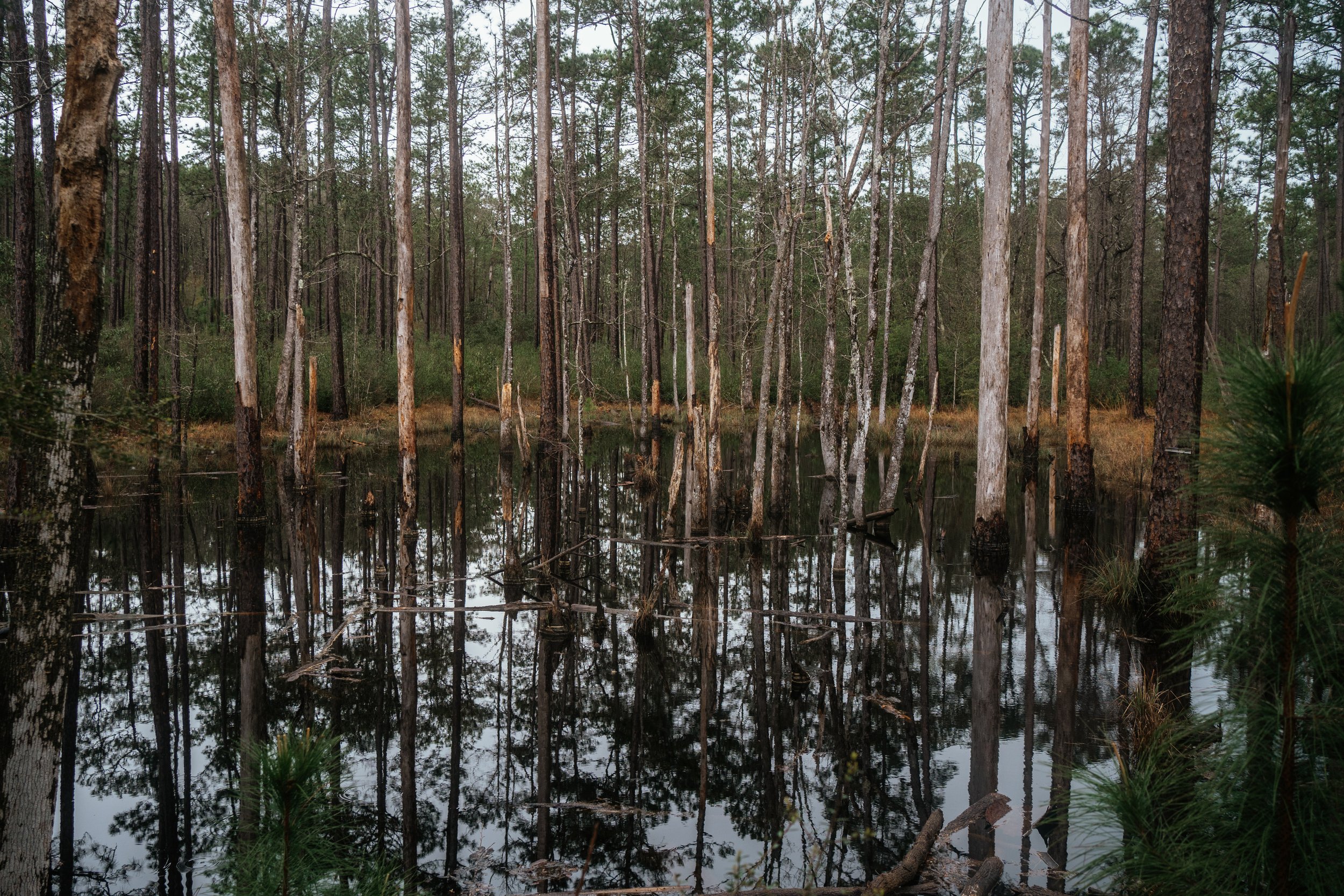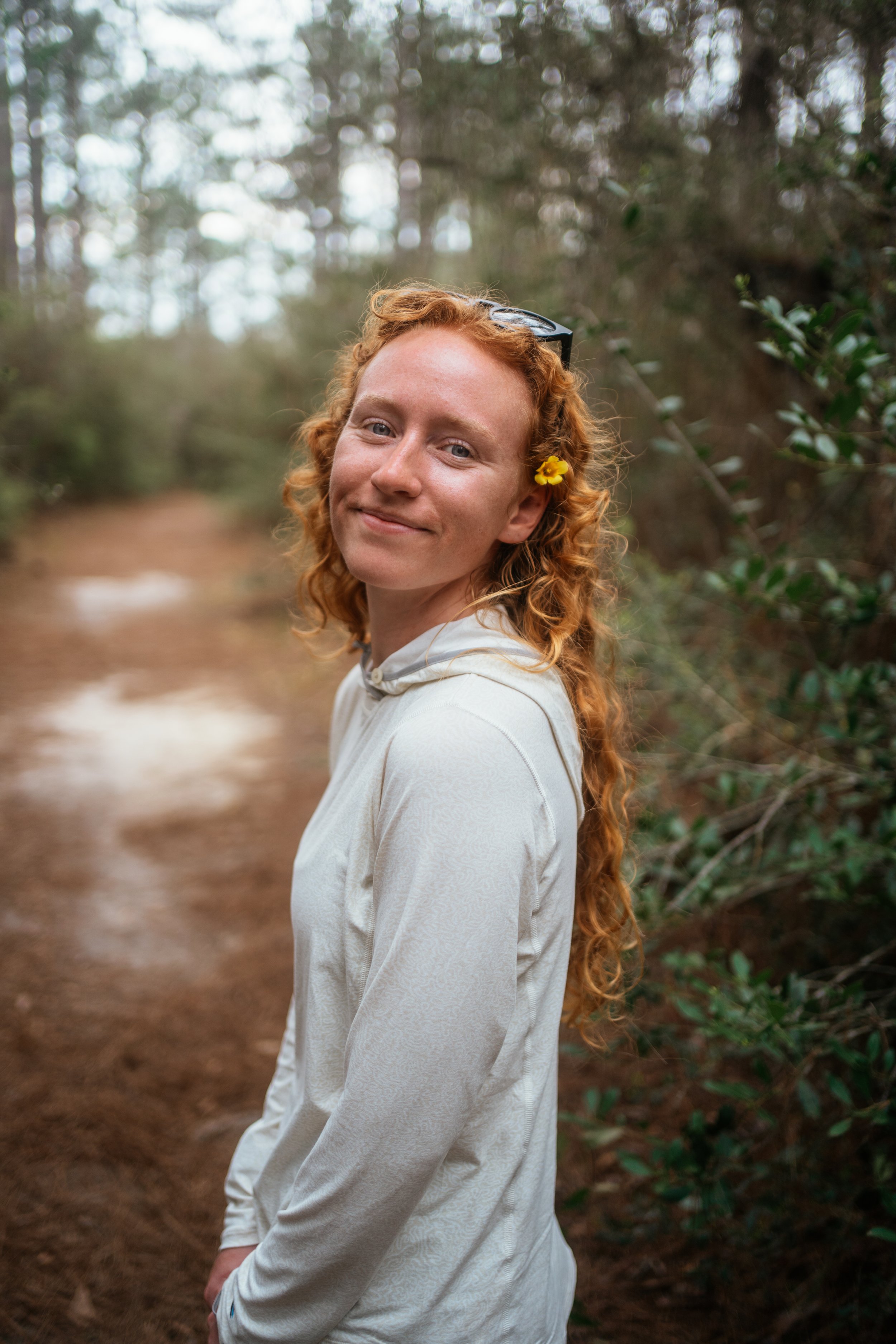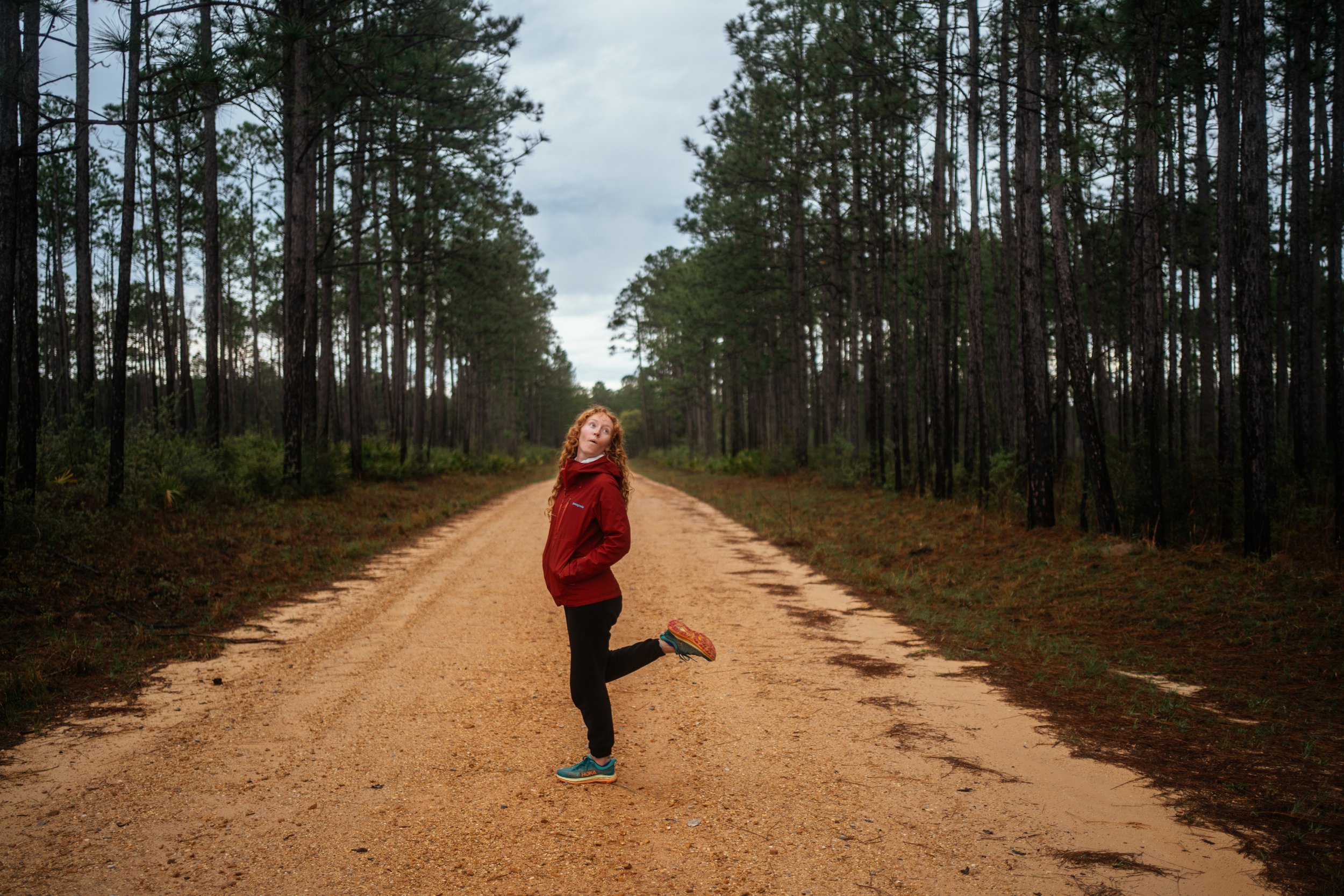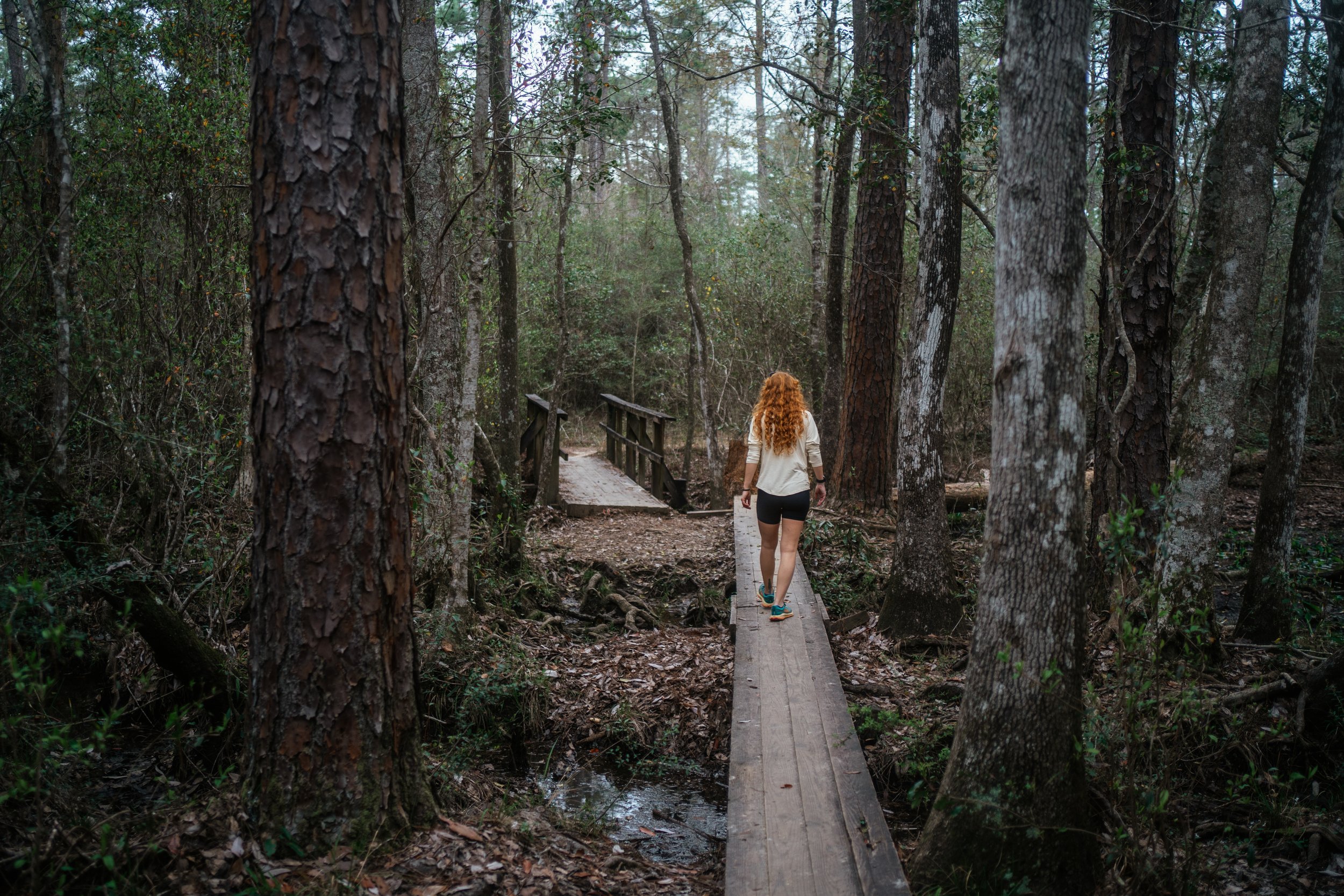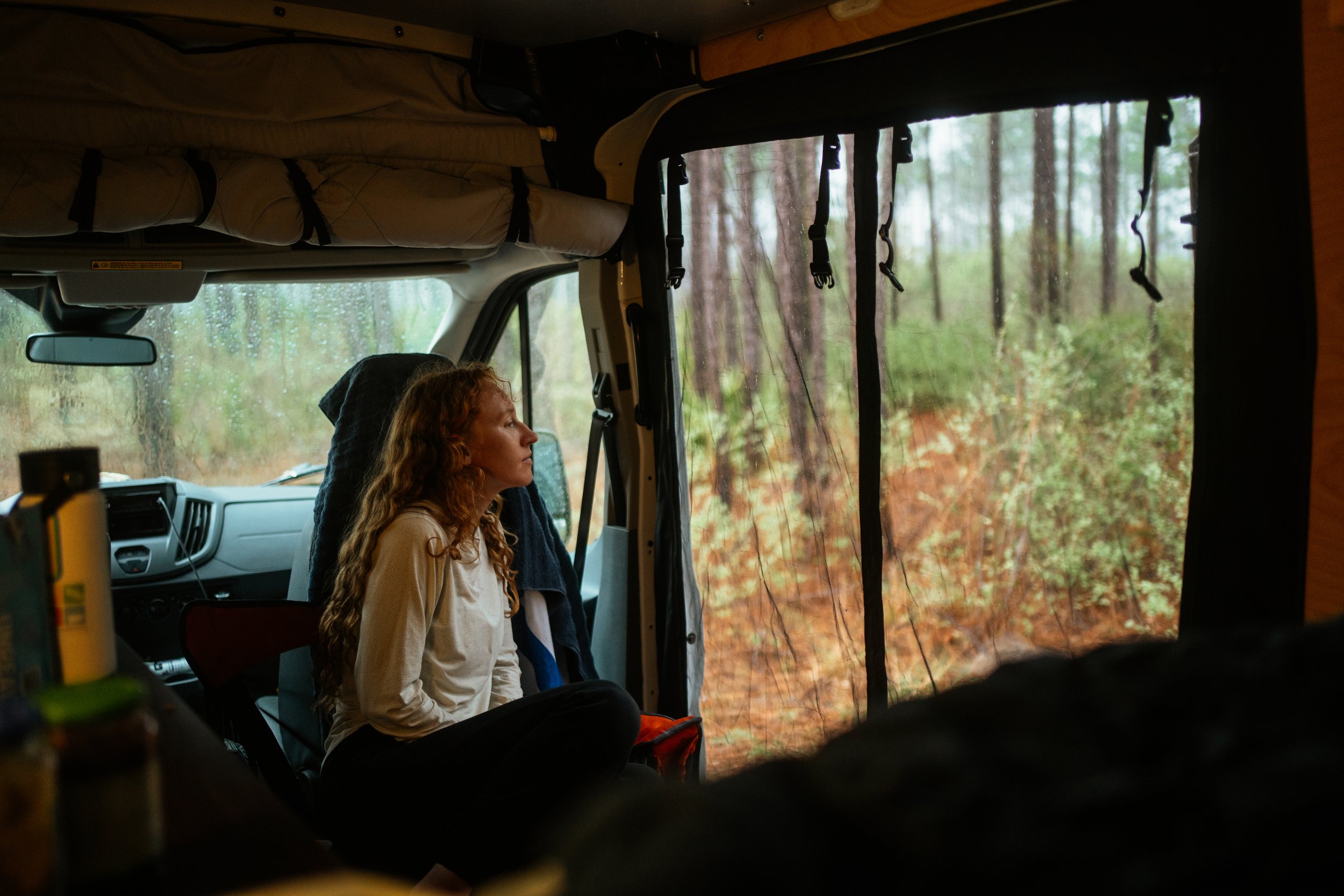Discovering My Family History in the Deep South
My girlfriend Mallory walking on Beale Street in Memphis, Tennessee before we hopped in the van and began our journey south
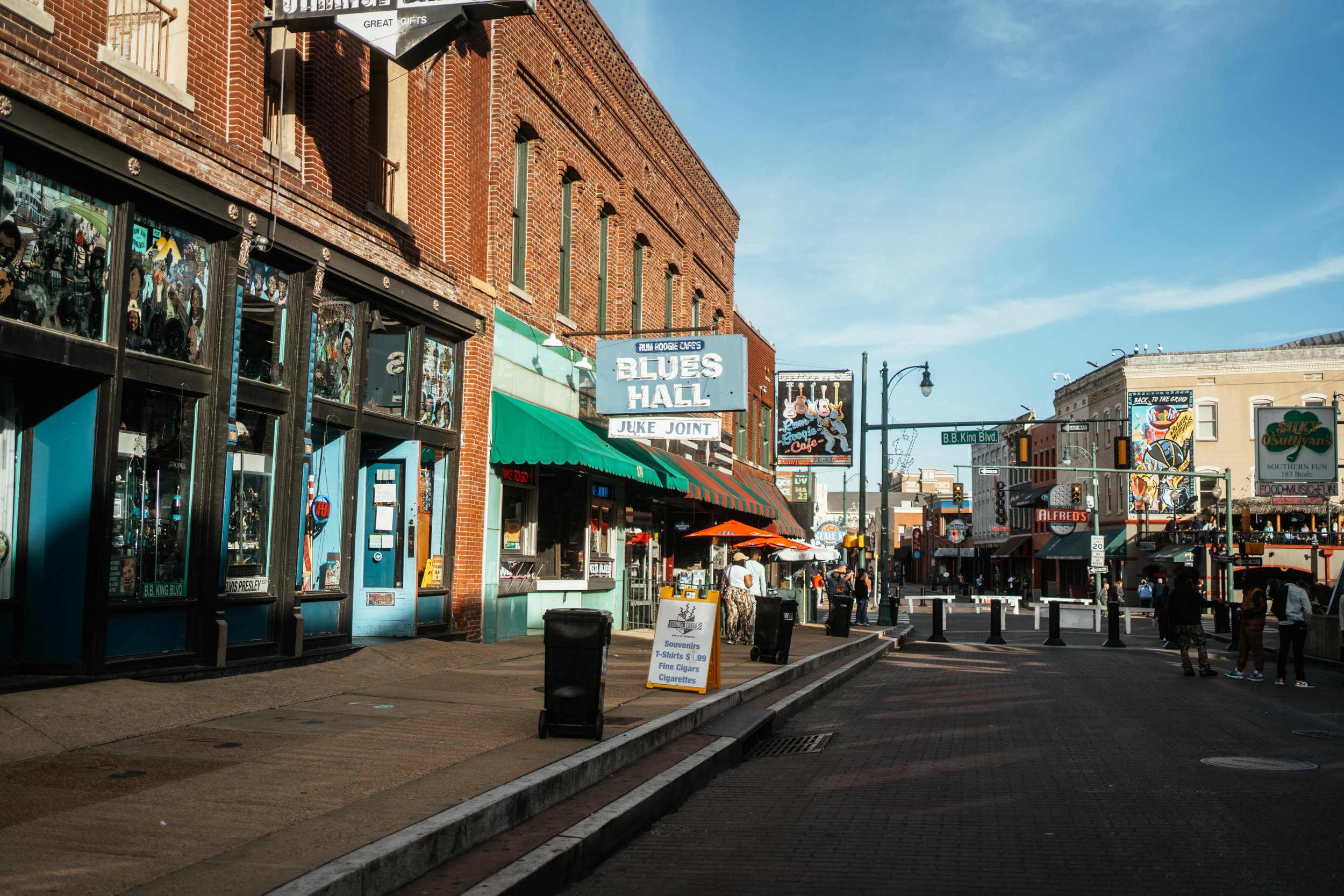
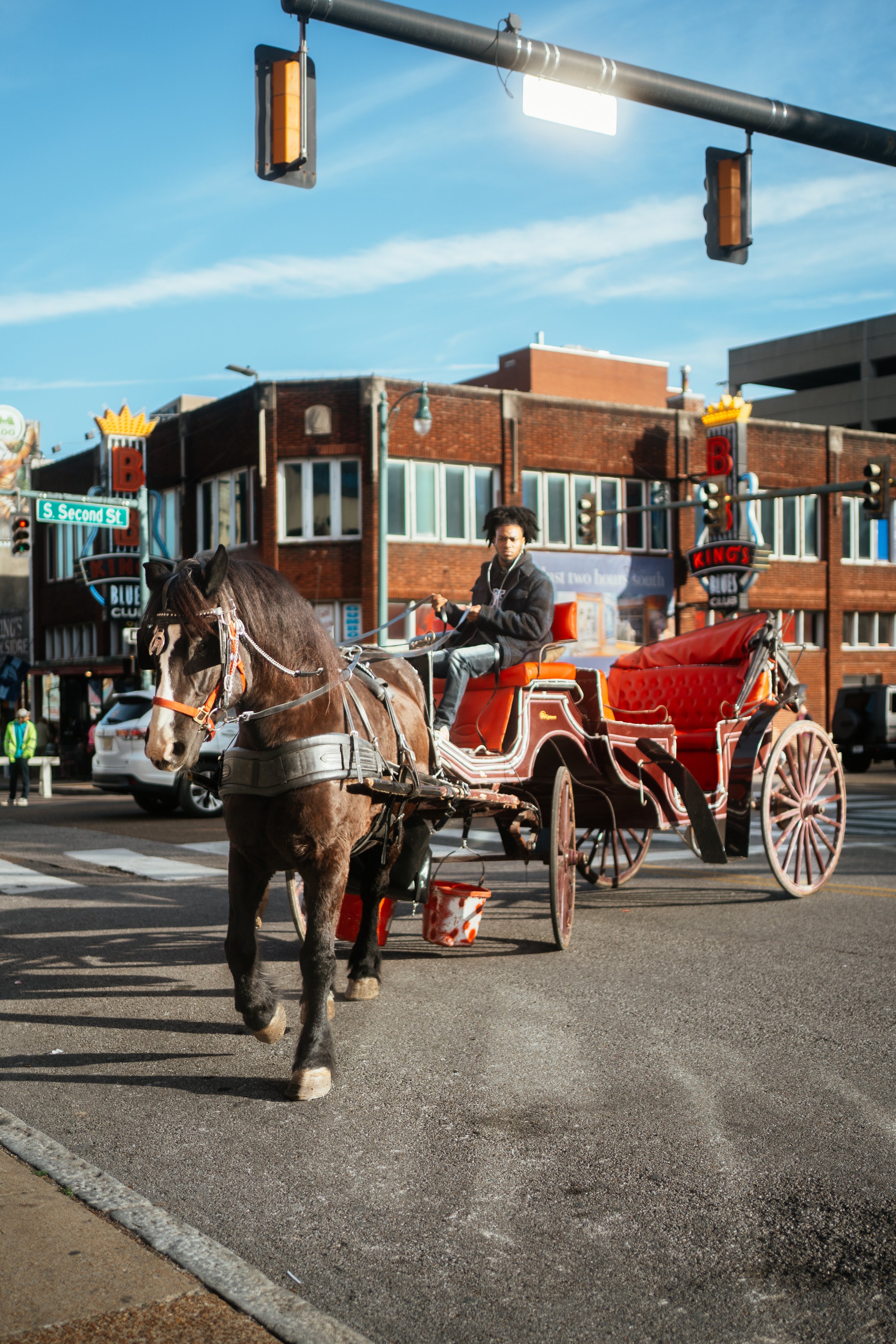
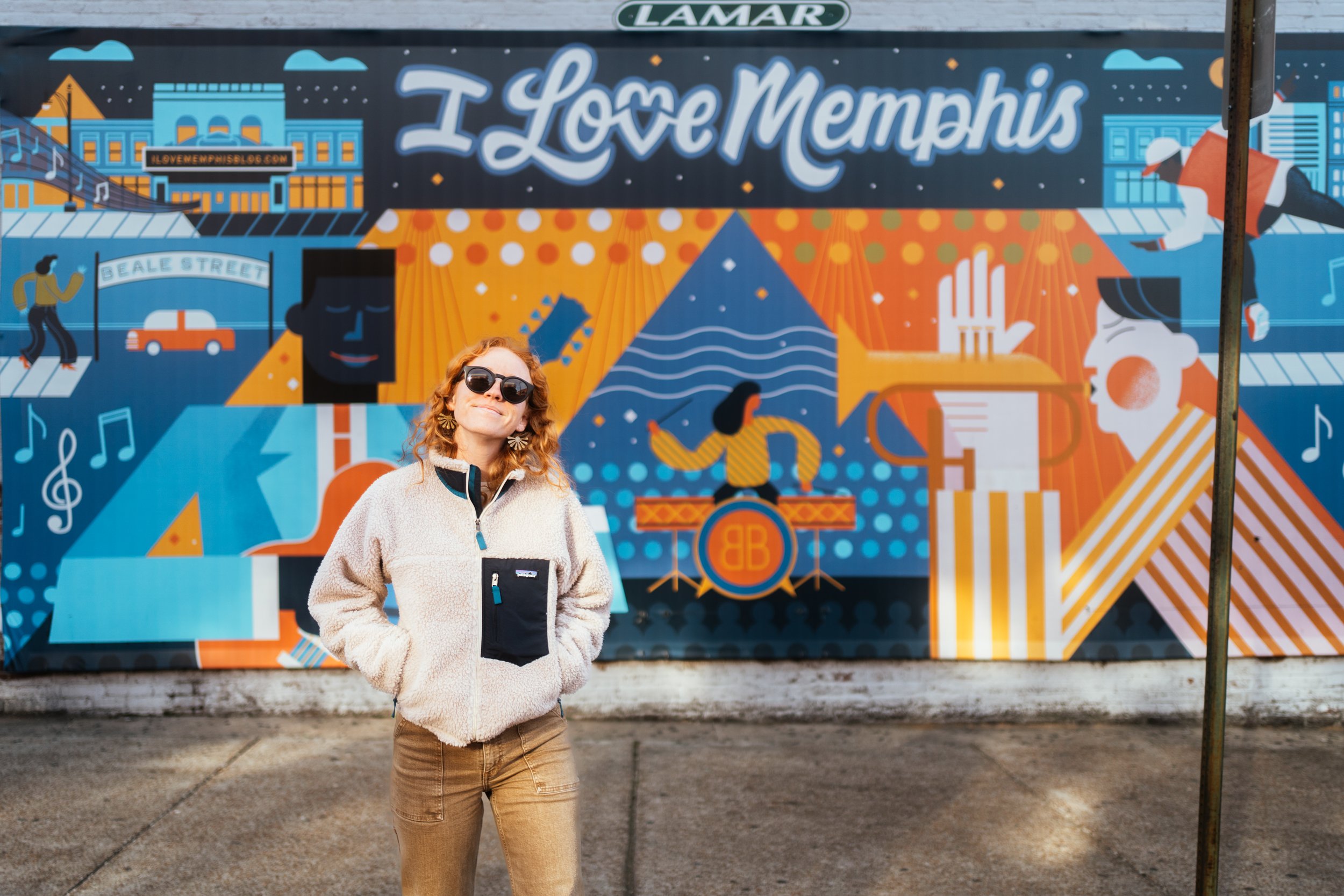
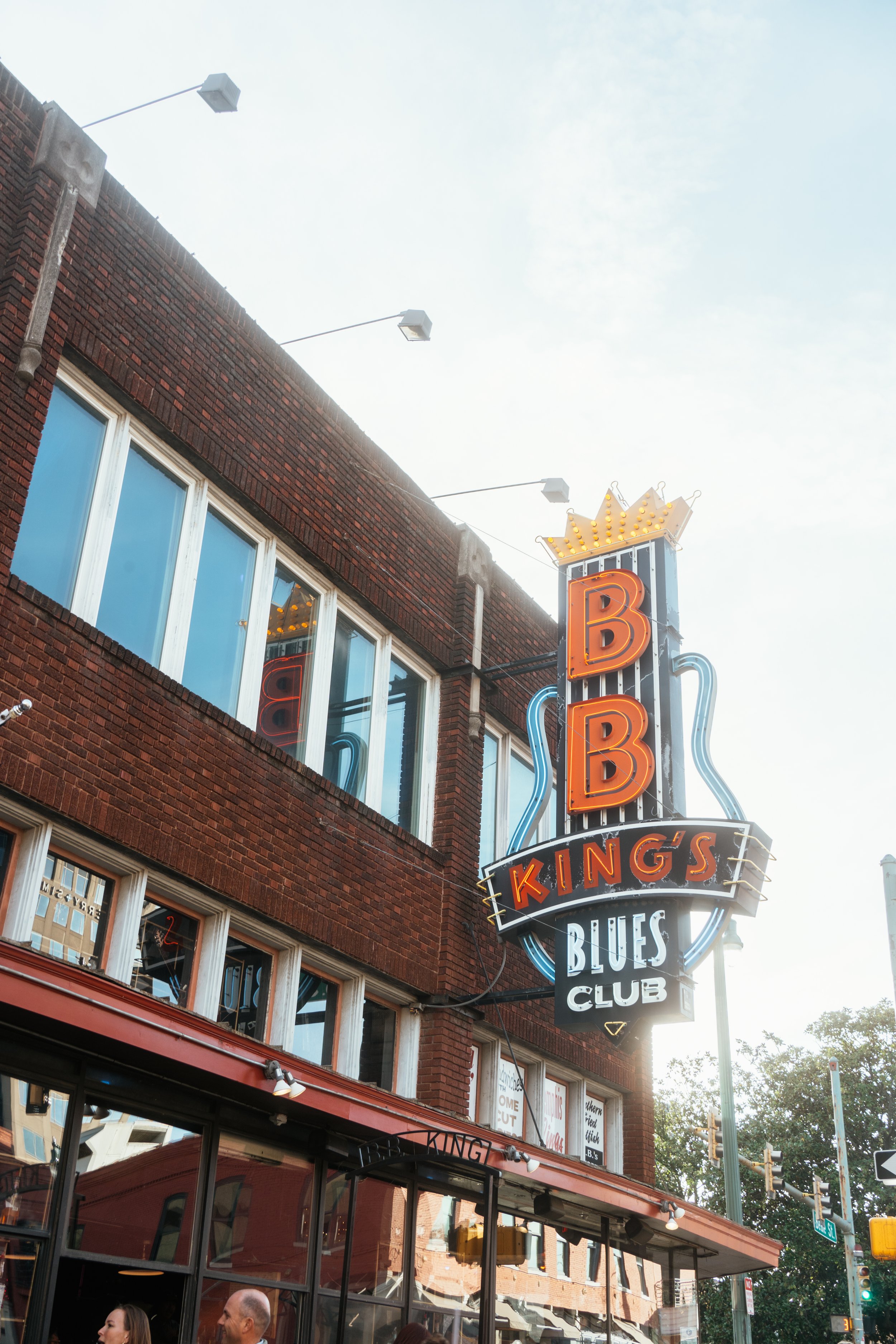
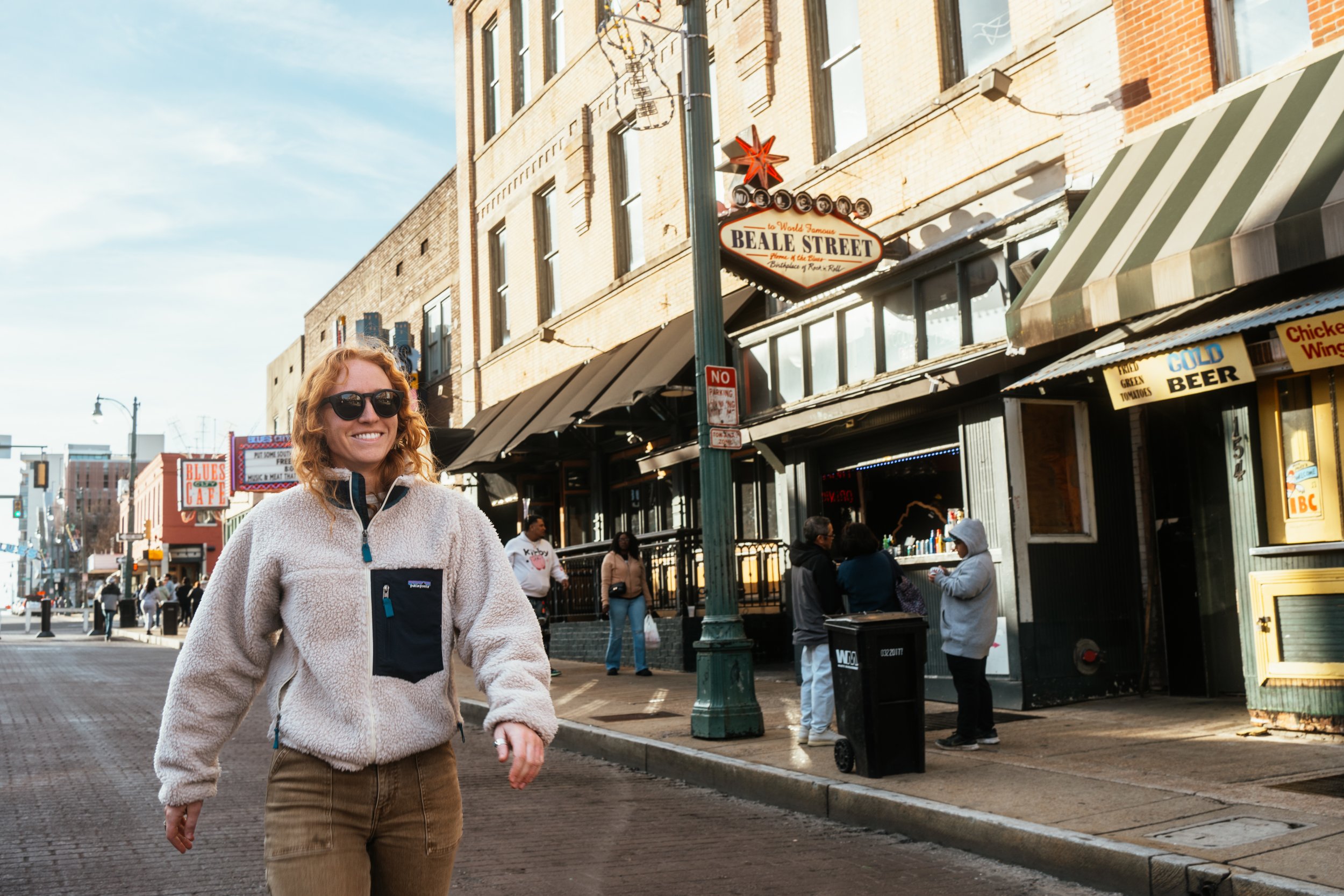
My family is from the south but it’s a place I’ve never had the chance to explore. My mom was born and raised in Mississippi. My grandparents, affectionally called Sweet Mama and Sir raised their five children all throughout the south. Then, when my mom was in high school, Sweet Mama and Sir moved them up north to New Jersey where my mom met weekly with an accent coach to give her a northern accent. She would tell my mom “Okay Lynsey Ann, now say ‘Nice White Rice” to which my mom would reply in her Deep Southern accent “nahhs wide raahhs.”
But, other than a couple trips to Nashville and a weekend in Chattanooga, I’ve never been to the Deep South. I’ve never seen where my mom was born and raised. So, after directing a bike show for three days in Memphis my girlfriend Mallory and I rented a camper van and I began to explore the place that holds so many of my mom’s childhood memories.
Downtown Clarksdale, home of my mom’s cousin Chad Dalton
We started driving south on Sunday afternoon and camped at Sardis Lake in Mississippi that first night. Then, we drove until we hit Clarksdale - the first town my family is connected to. I heard my mom’s cousin (first cousin, once removed) owned a furniture store so we walked in. I asked for a Chad Dalton and there he was, behind the counter, with an awesome southern accent “yeah that’s me - how can I help you?” I told him I was his cousin Lynsey’s son and he responded saying I looked exactly like a young version of my uncle. He hadn’t seen my mom in almost 30 years but he talked fondly of his memories with his cousins at Grandma Dee’s house in Cleveland (which we drove by later that day).
A photo from the front seat of our camper-van as we pulled up to my mom’s cousin furniture store in Clarksdale, Mississippi
It seemed Chad and his two sons (my second cousins) lived a pretty good life in Clarksdale, Mississippi but it was definitely a lot different than mine and my mom’s. Instead of skiing and rock climbing it was hunting and golf. Still, it was fun to see the intrinsic connection to the outdoors we had as extended family members.
Even if our daily landscapes weren’t the same, it was clear we all loved to spend our free time outside with good people. He just built a house on the Mississippi River and, despite just meeting us, offered to host us to show us some of the “Mighty Mississippi”. The way he talked about his outdoor hobbies felt like the way I talk about mine.
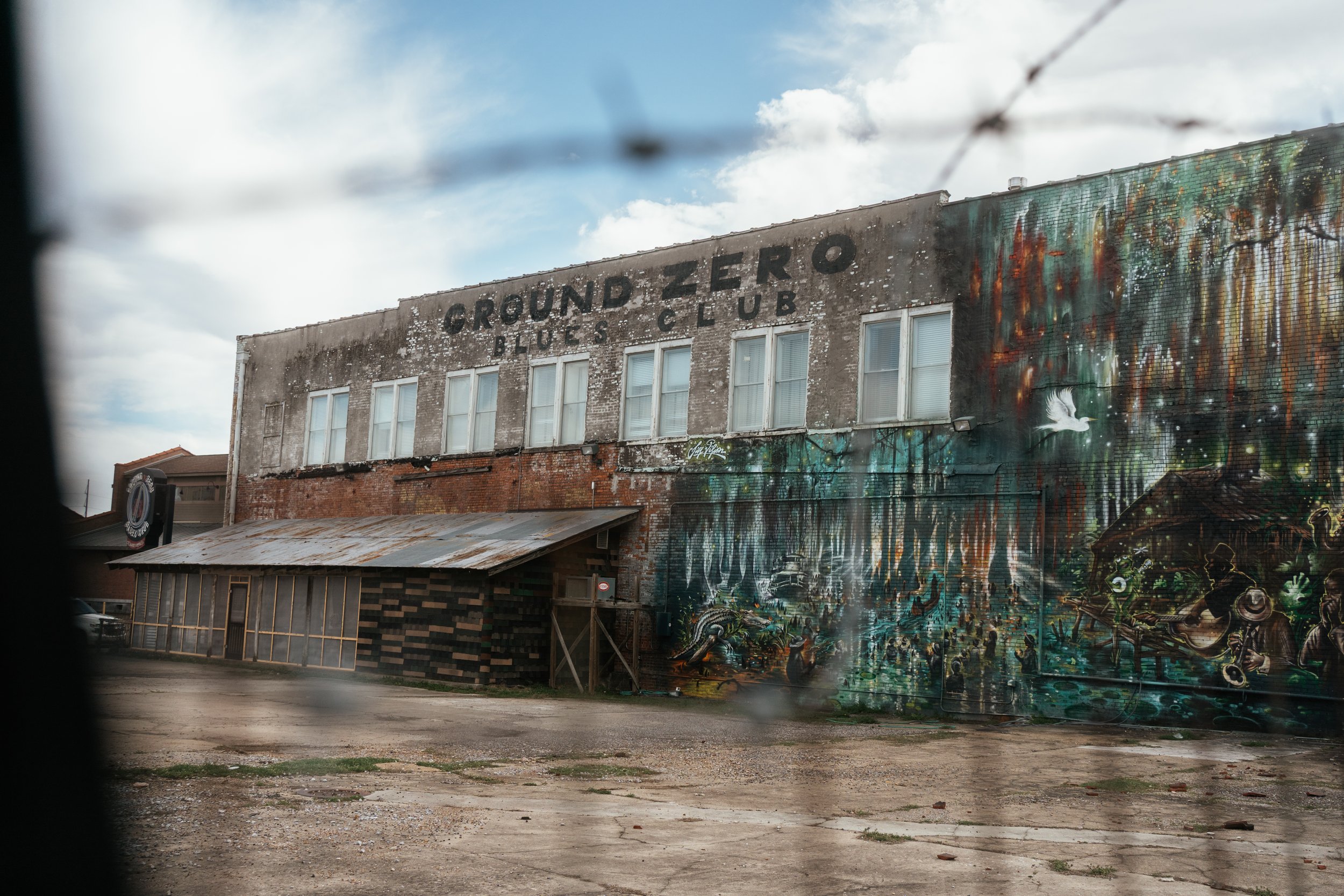
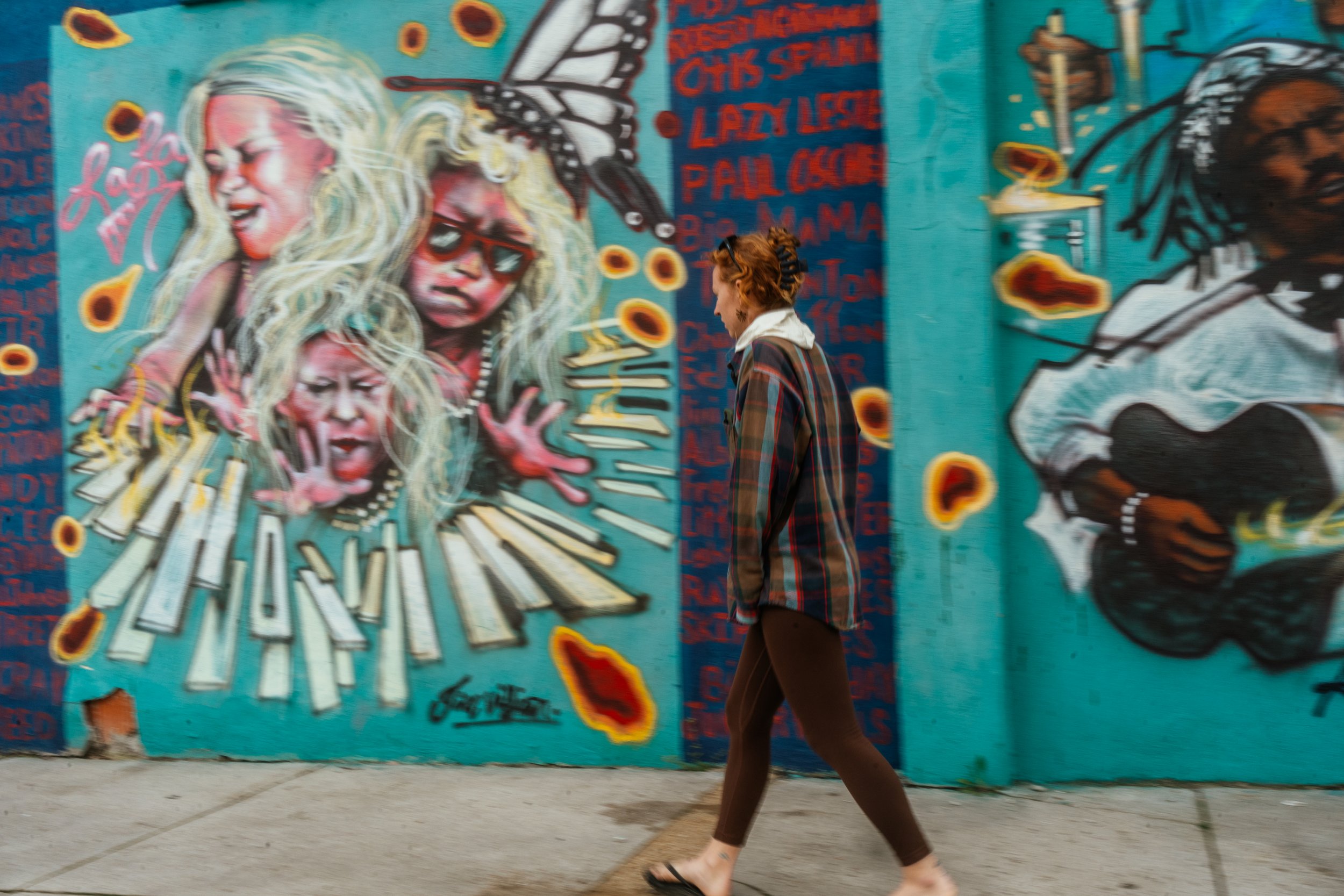
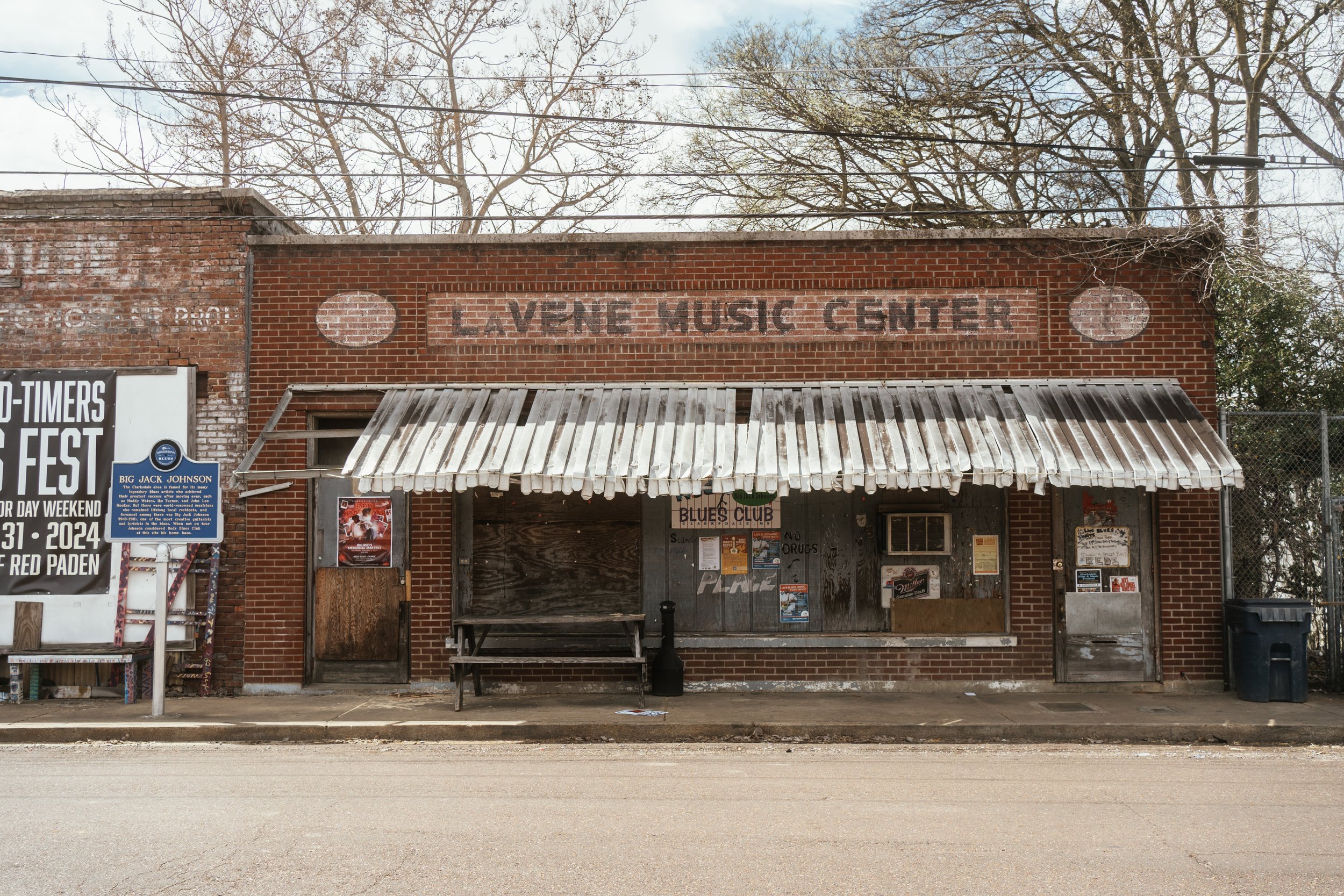
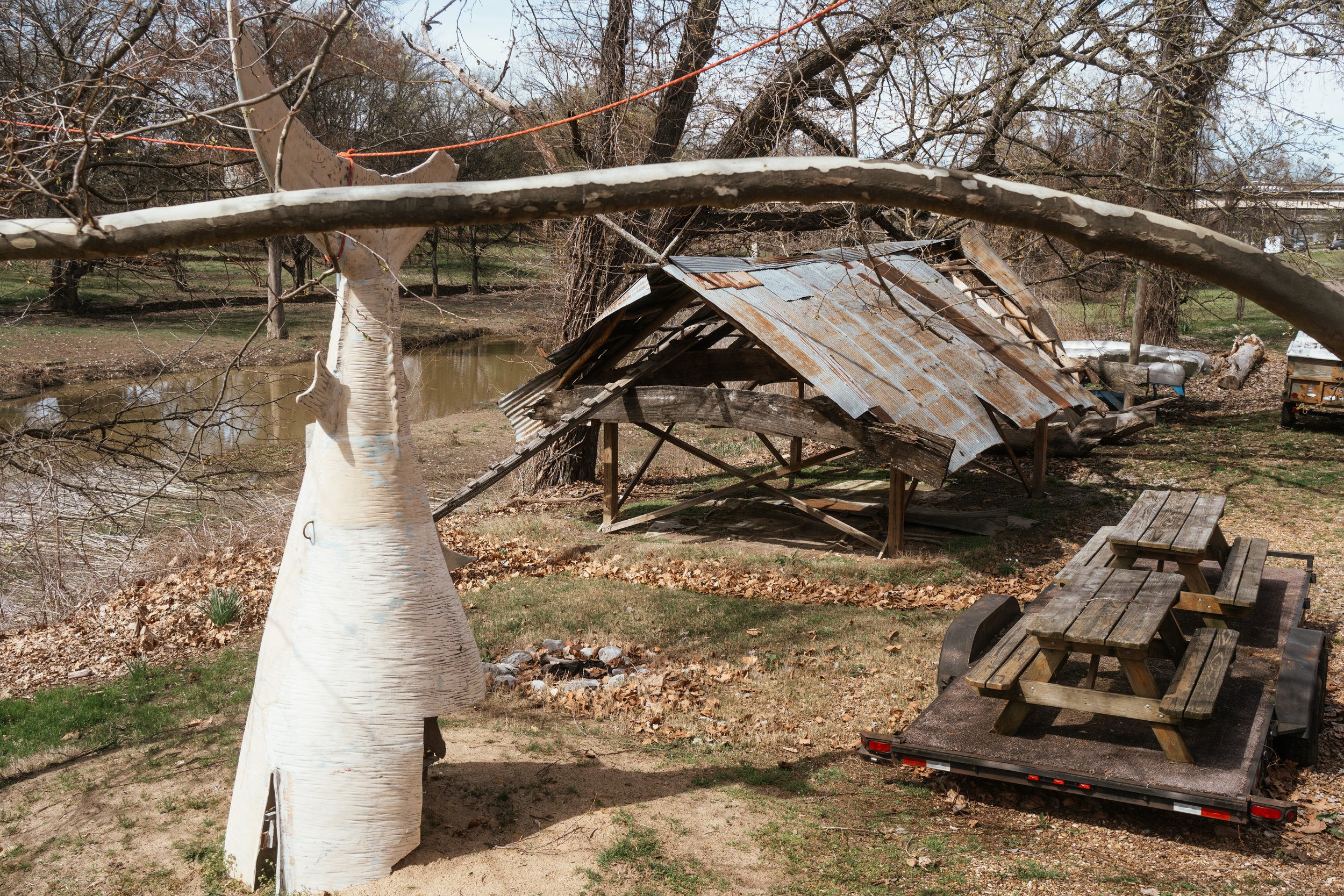
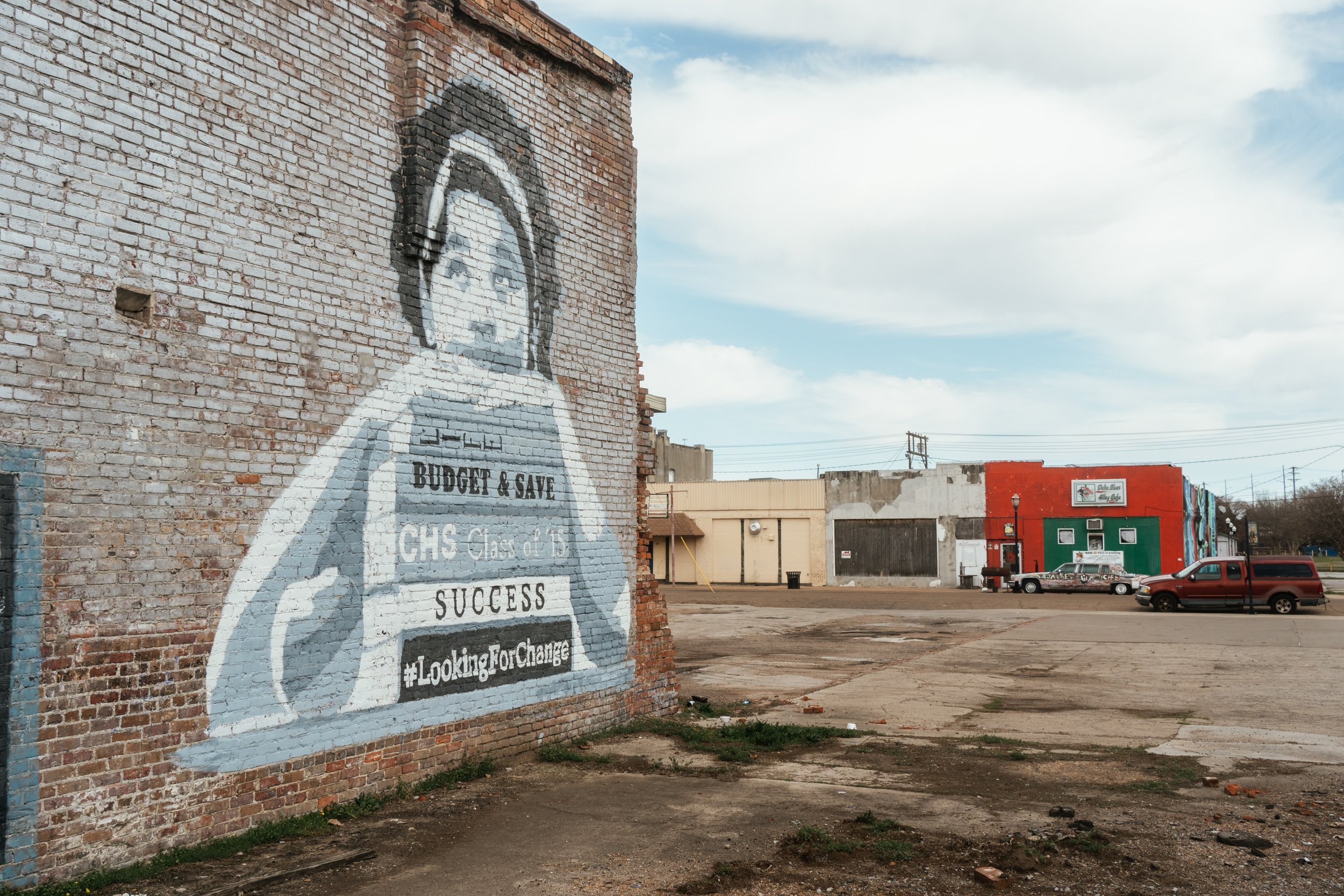
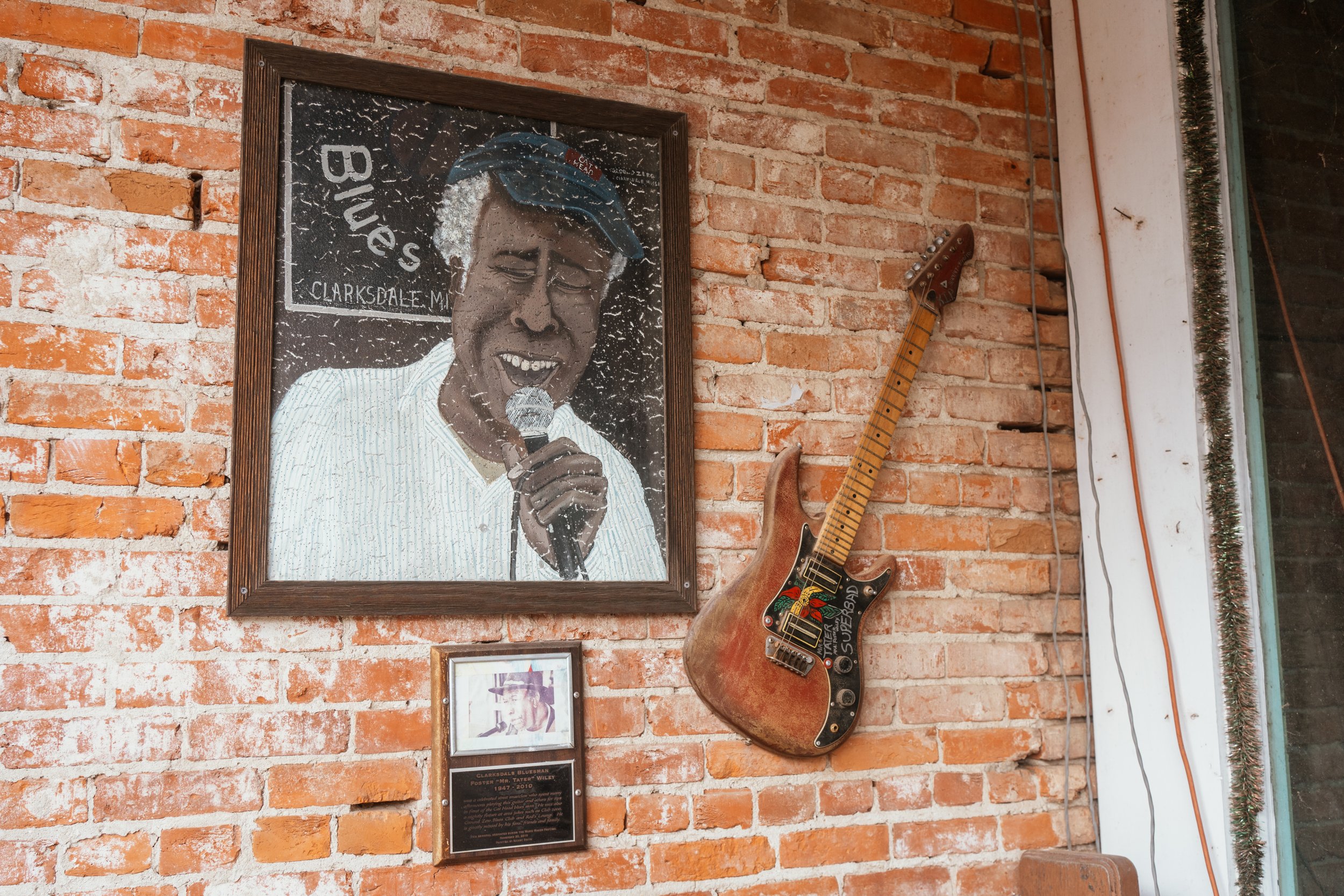
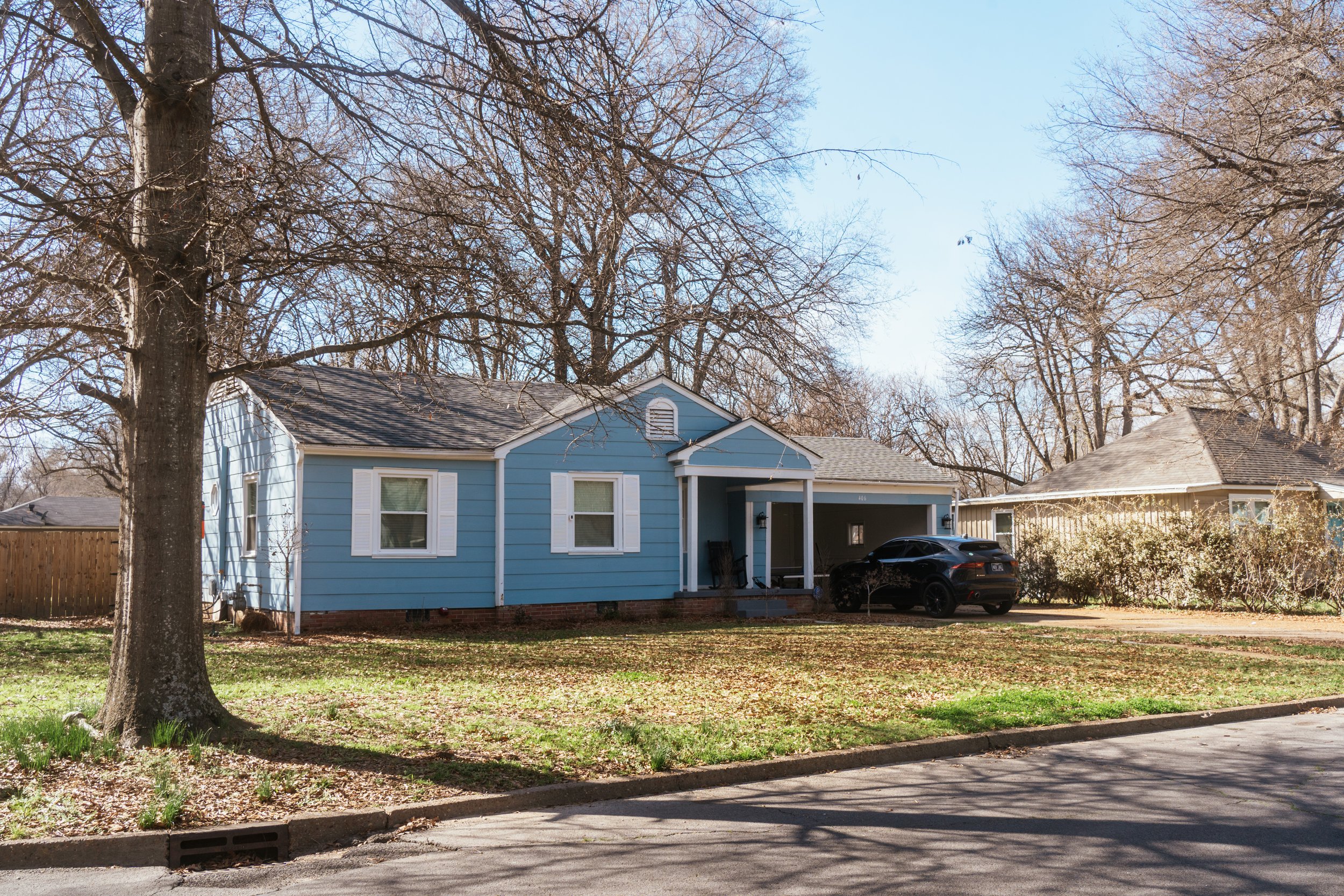
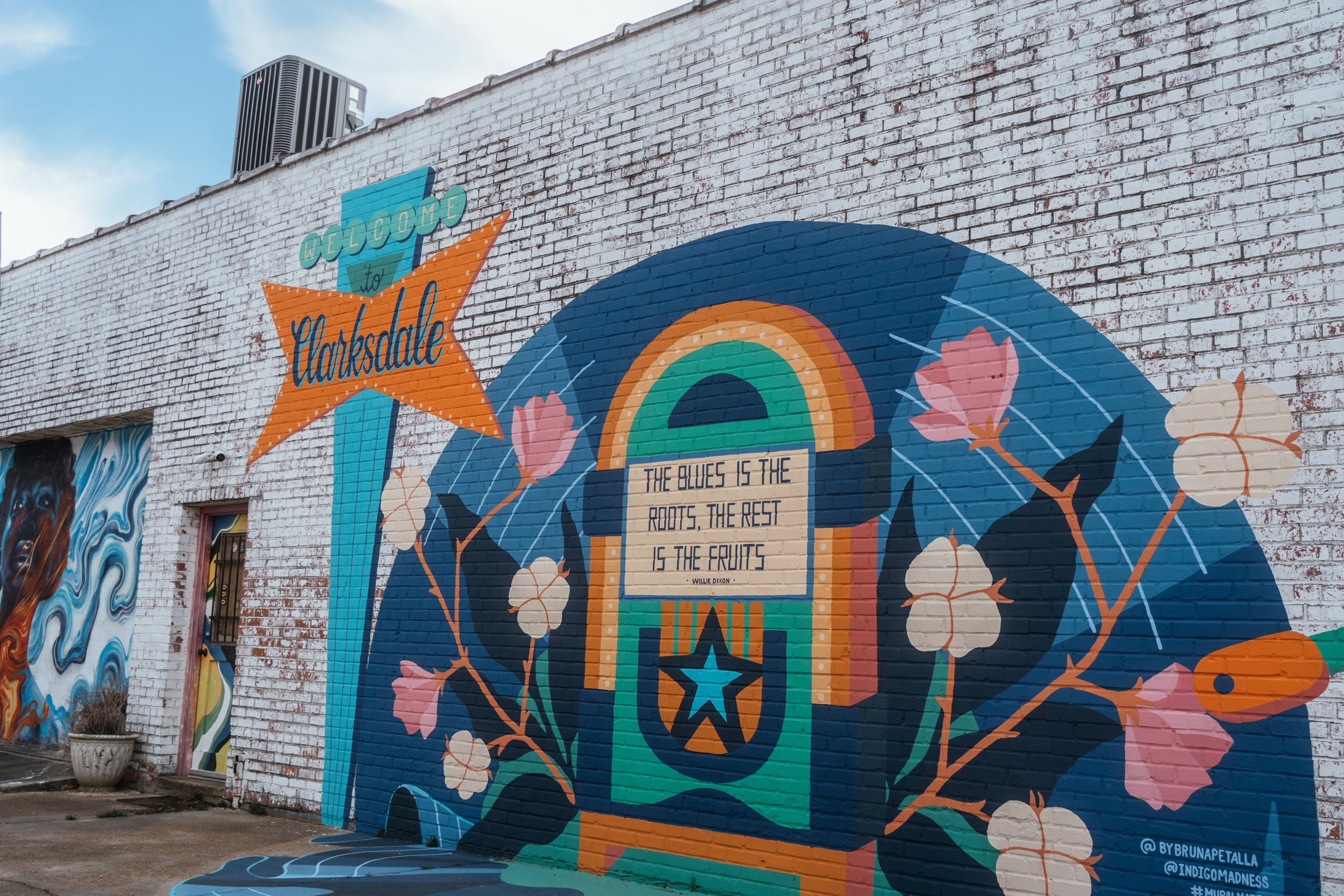
After our brief interaction with my great uncle we continued on our way, leaving Clarksdale behind to drive further south. As the cotton fields and smells of bbq wafted by, I began to reflect on what this place must have meant for my family. I’ve heard countless stories that took place right where we were so decided to FaceTime my mom and show her what things look like now. On that call she let me know that the life she would’ve lived (and the life I would’ve lived) would’ve been very different if Sweet Mama and Sir never left Mississippi. They were a low income family and risked it all for their kids and their grandkids to live better lives.
One of our favorite nature features of the south, the Spanish moss, cascading from a tree on the Mississippi / Louisiana border
Now, despite my deep family connections to this place, I’m here visiting as an outsider on vacation just to see these places and understand where I come from. I’ve explored a fair bit of the U.S. at this point, but mostly national parks and the vast, empty landscapes of the west.
Mallory kept reminding me on this trip that this is how a large part of America lives. She worked in AmeriCorps for two years, a civil service program where young adults volunteer and serve communities all over the country (think Peace Corps but within the U.S.). During this time she was based in Vicksburg, Mississippi and got to integrate in the communities within these lower income neighborhoods. Although I’ve seen glimpses of it in other areas through traveling stateside, I haven’t seen it like this.
There’s no business or home that seems except from economic hardship - which tends to result in a beautiful vine-like undergrowth reaching up and swallowing buildings whole. A hauntingly beautiful message that what comes from the earth, returns to the earth eventually.
Throughout our road trip, we passed dozens of buildings just like this old gas station. Overgrown and returning to the earth
As we traveled deeper and deeper into the south we didn’t only see poverty and hardship but the joy and kindness that first comes to mind for me when I think of my southern family members. I met a guy in Memphis who had dinner with our film crew because he was friends with the bike shop owner and, at the end of this dinner, he gave me his phone number and told me that if our van breaks down or something happens to us to call him for help. He and his dad will drive all the way to New Orleans (a 12hr round trip drive) if need be to come rescue us and bring us back to Memphis. Every person treated us like we’ve known them forever and couldn’t wait to show their kindness and compassion to strangers.
Once we got to New Orleans we were a bit overwhelmed by the size of the city. Mallory and I prefer to spend our free time in nature so giant skyscrapers also felt foreign to us. We walked Bourbon street which felt foreign in a myriad of ways. First off, the French Quarter of New Orleans felt like an Americanized version of Saint Louis, Senegal (and small towns in France I guess, but honestly mostly Saint Louis)!
Strolling through the French quarter together felt more similar to our romantic getaway to Paris then our van trip through Louisiana. Beyond the architecture, I felt out of place as one of the only non-drinkers on Bourbon Street at 11pm. Sloshing drunk people and bachelorette parties dancing off-rhythm to cover bands seemed to fade away to local jazz musicians and New Orleans residents listening to the high quality music on Frenchman street. The bouncer at our favorite jazz bar was a 70yr old black woman who definitely was not somebody to mess around with and her presence kept the crowds the most well-behaved I’ve ever seen.
Photos from Waveland, Mississippi
Once we left New Orleans behind, we craved a bit of our normal vacation style, spending time in beautiful outdoor spaces. So, we headed to the Southern coast, driving past giant houses on stilts that are used as a precaution to a seemingly ever-present flood warning and tropical storms. We arrived in Waveland, Mississippi, where a vast, empty white sand beach laid before us. We arrived just after sunset and spend the whole next day reading, laughing and enjoying the coastline breeze. It’s here that I wrote most of this article, in the back of our van one block away from the Waveland Lighthouse.
Photos from the bayou, outside New Orleans
This trip wasn’t about taking photos or diving deep into my family’s history or learning more about the blues of the South - even though that’s what it became. This trip was about learning and experiencing new things, so close to home. I feel like I have so much to left to explore in this country that I’ve resided in for so much of my life. Maybe that means more van trips or intentional projects to continue to uncover what my mom’s childhood must’ve been like, beyond the stories of playing in the fields underneath the crop dusting airplanes (apparently their chemicals were a nice reprieve from the hot summer sun).
All I know is that, regardless of why I took this trip, I’m glad I did… and I hope to take more like it again soon.
Our final stop, the De Soto National Forest, delivered a beautiful thunderstorm where we read, reflected and (once the thunderstorm cleared) hiked for hours and hours.
Let’s Connect
Roo is a commercial/documentary filmmaker and photographer based in Boulder, Colorado but travels all around the world for his filmmaking career. He has directed documentaries for Patagonia in California, produced films for Outside Magazine throughout Europe and Africa, camera operated for Netflix in the Rocky Mountain West, photographed among indigenous communities in South America, and has received notable recognition in his hometown of Orcas Island in Washington State for his work telling uplifting stories in the outdoor space.




